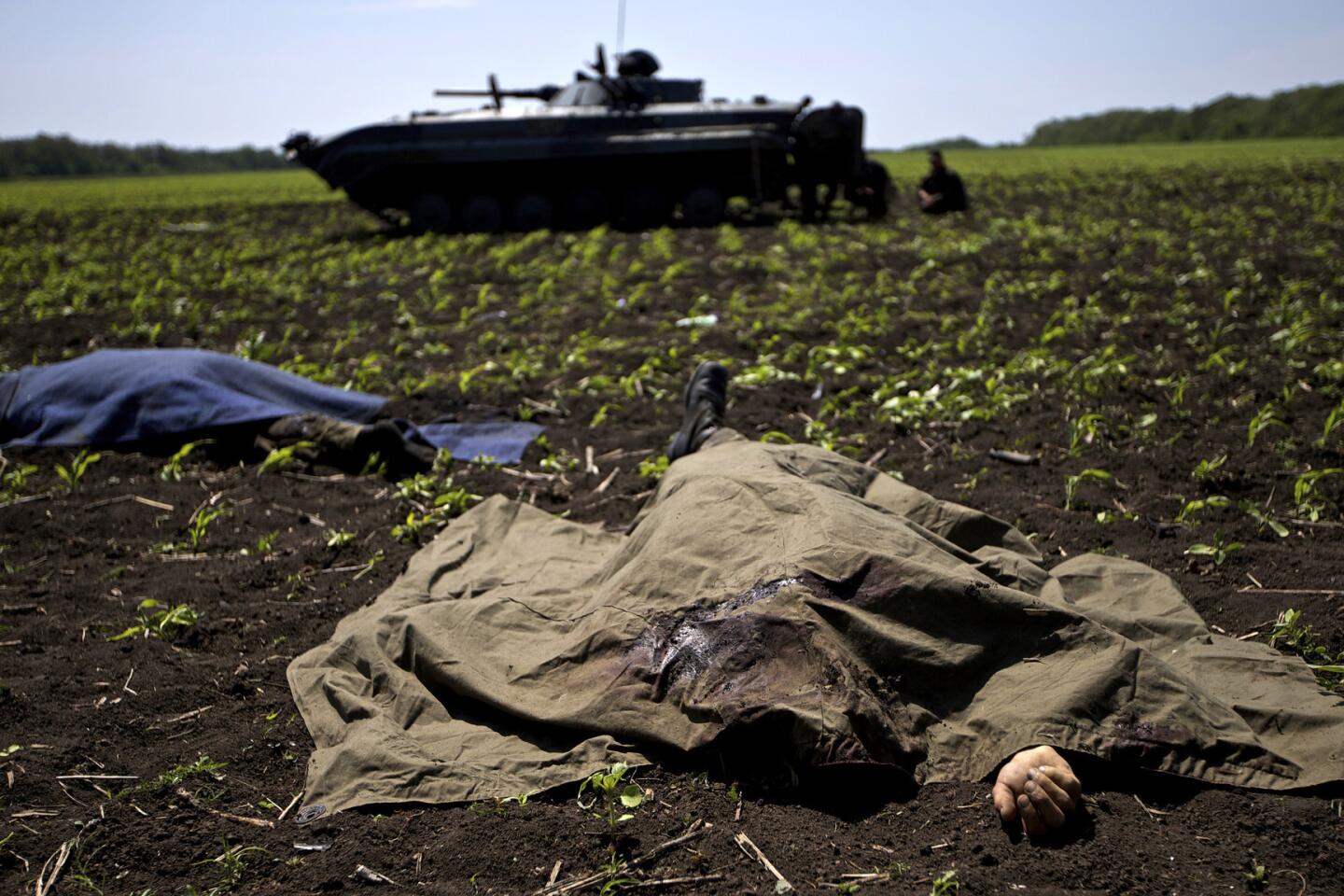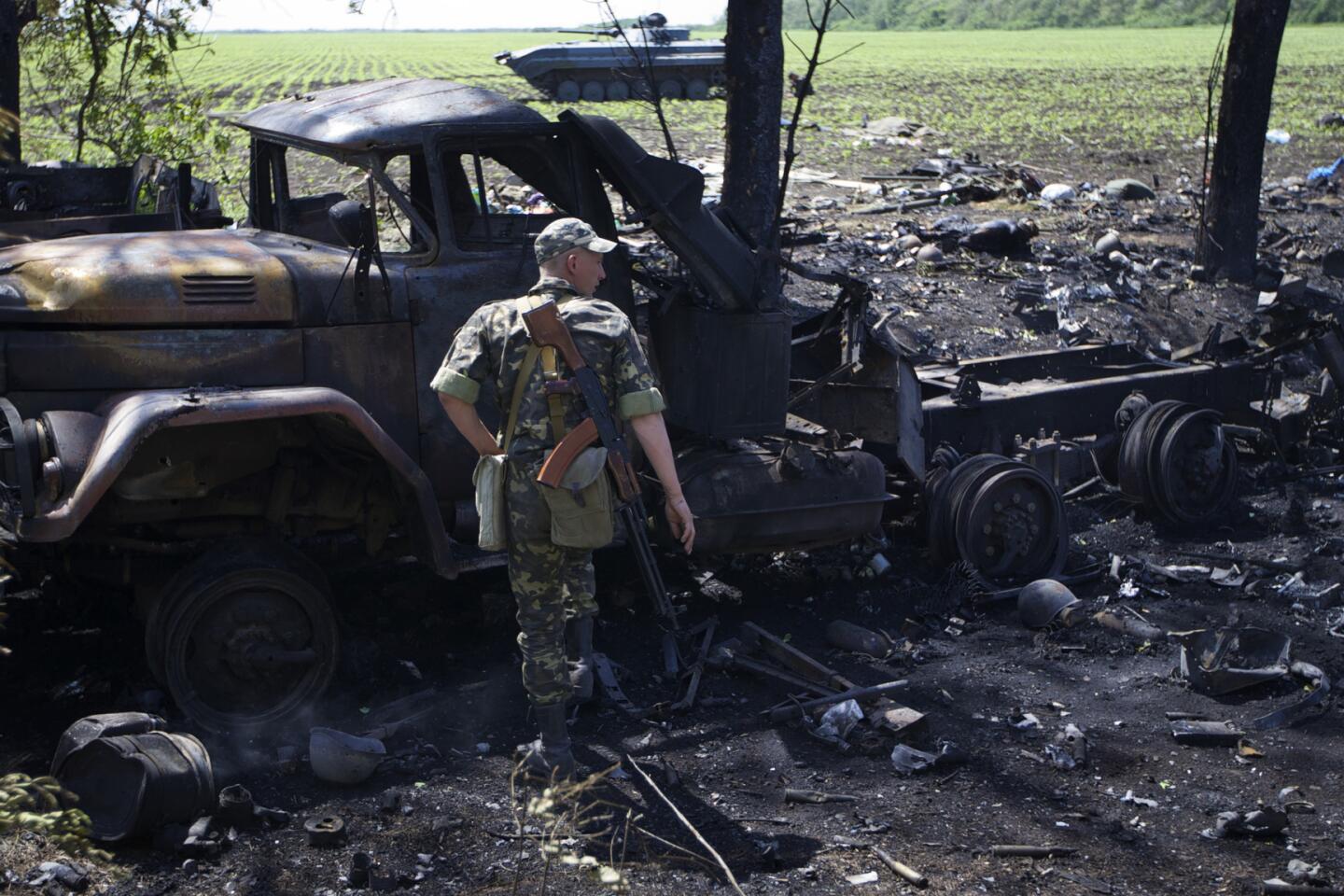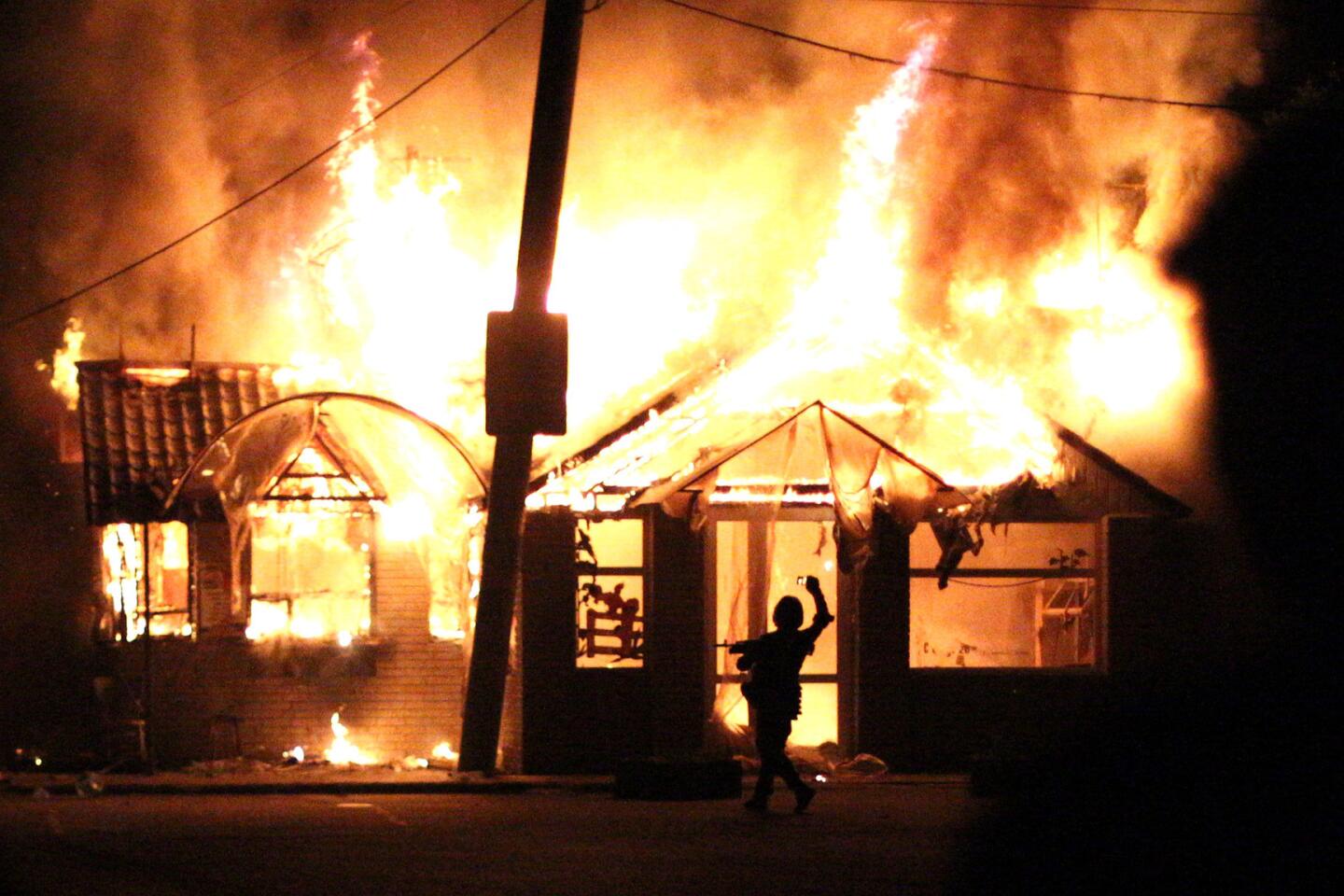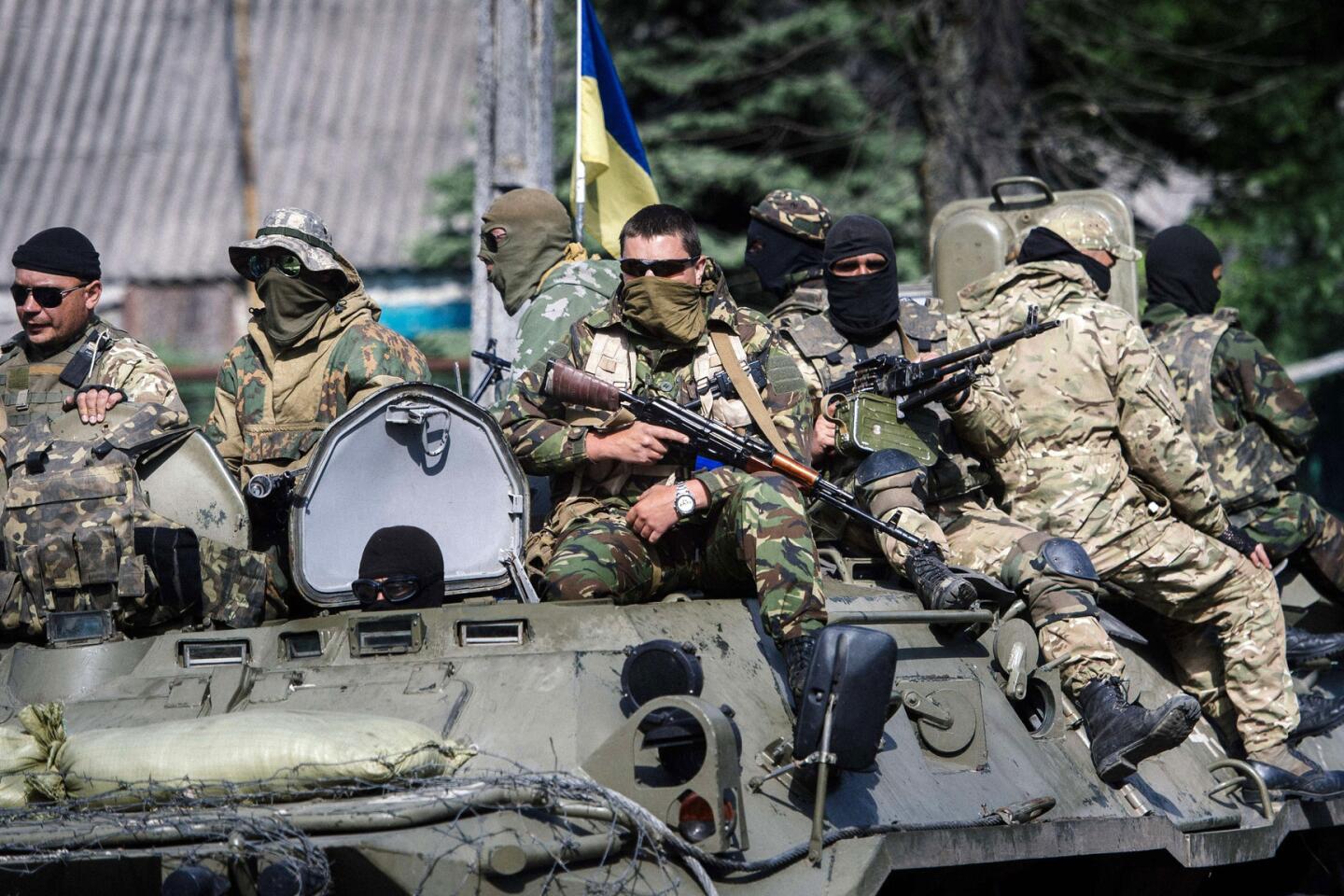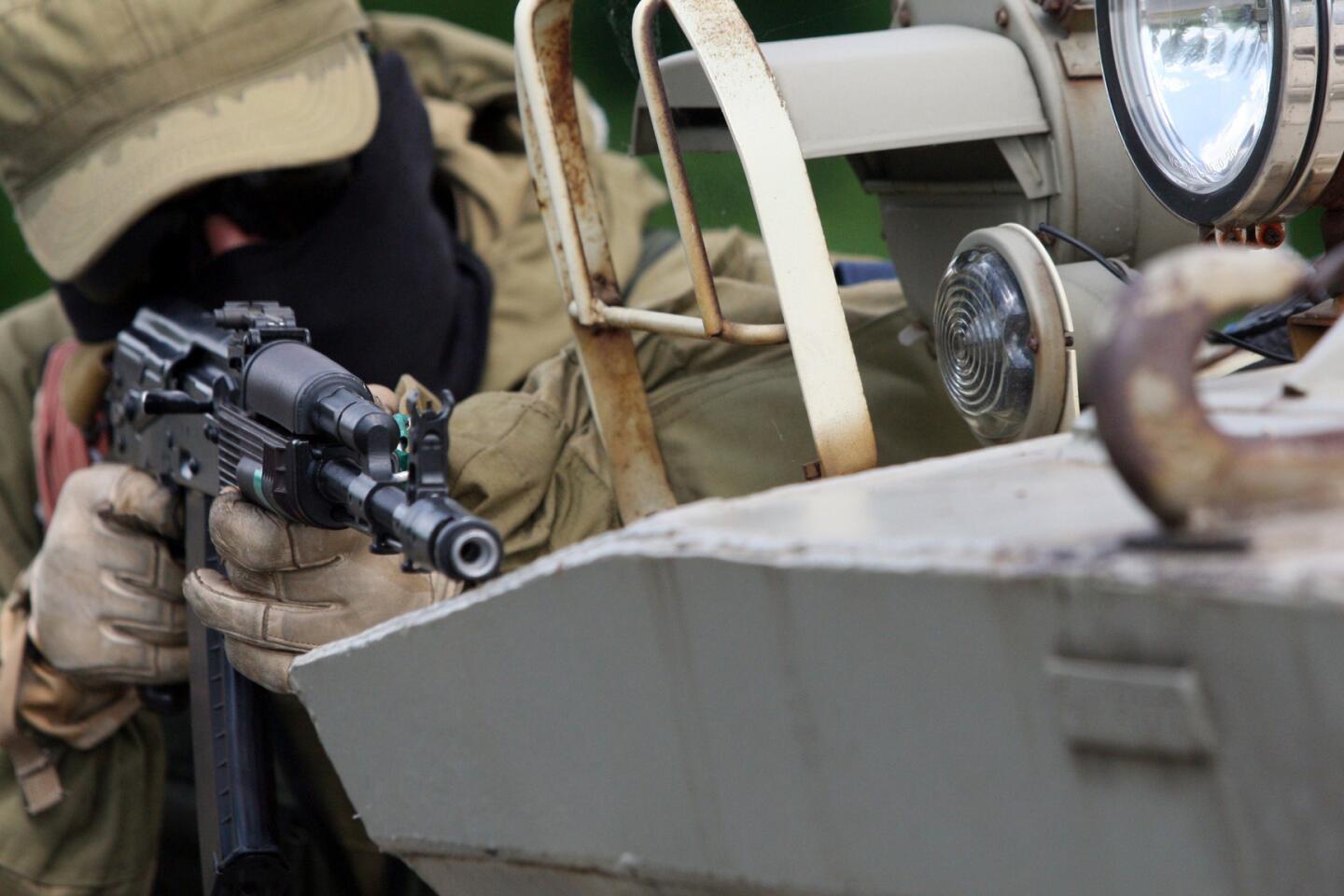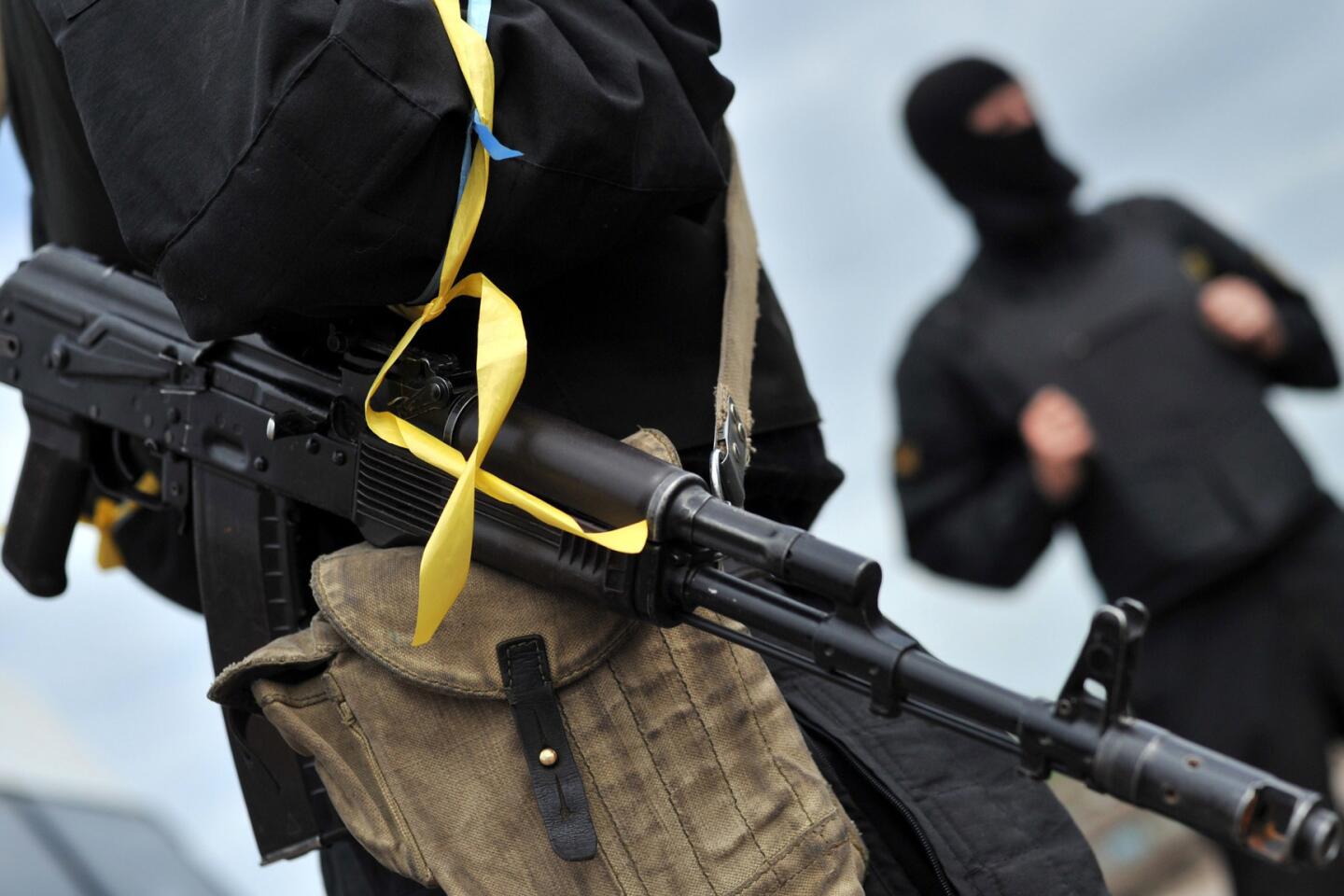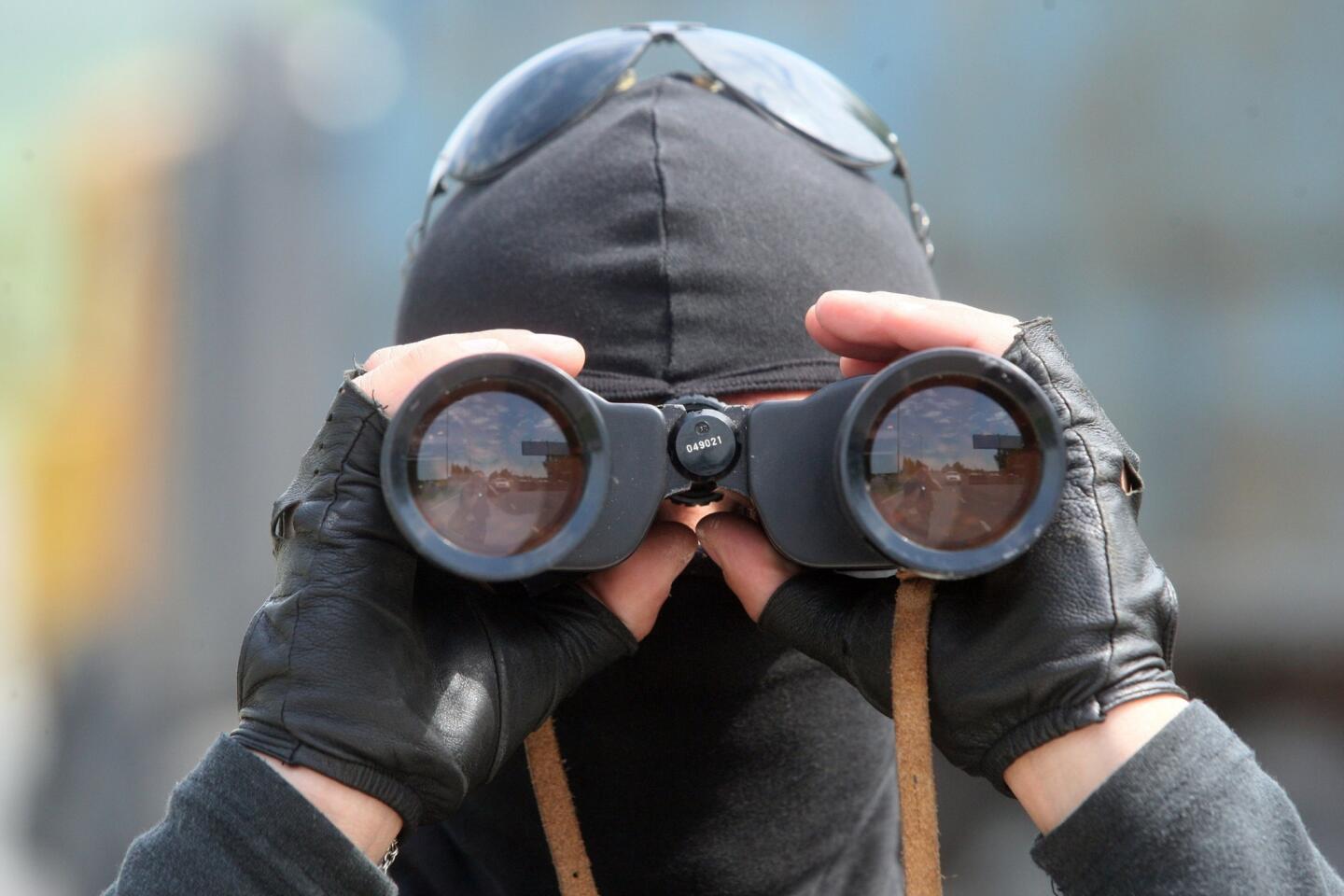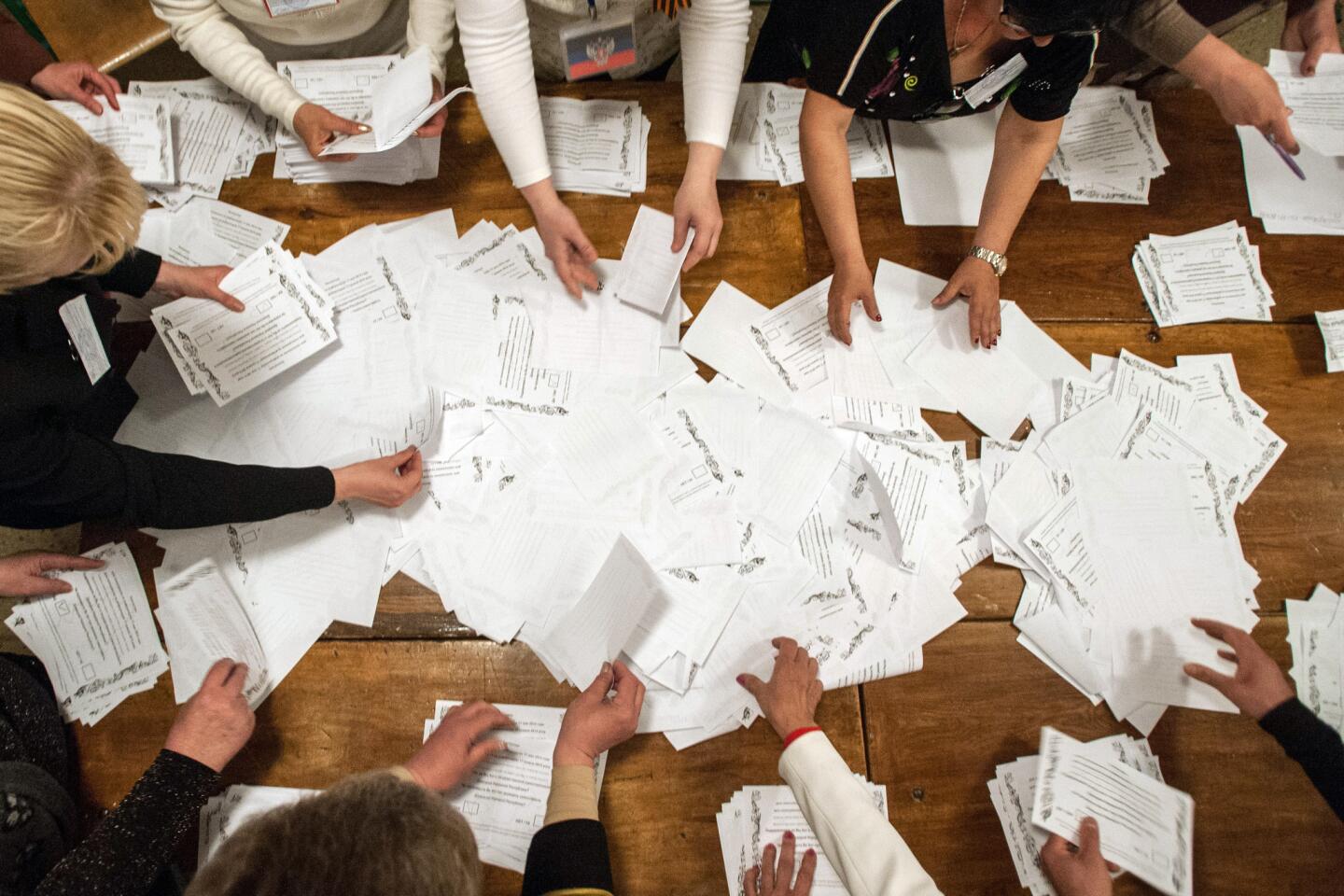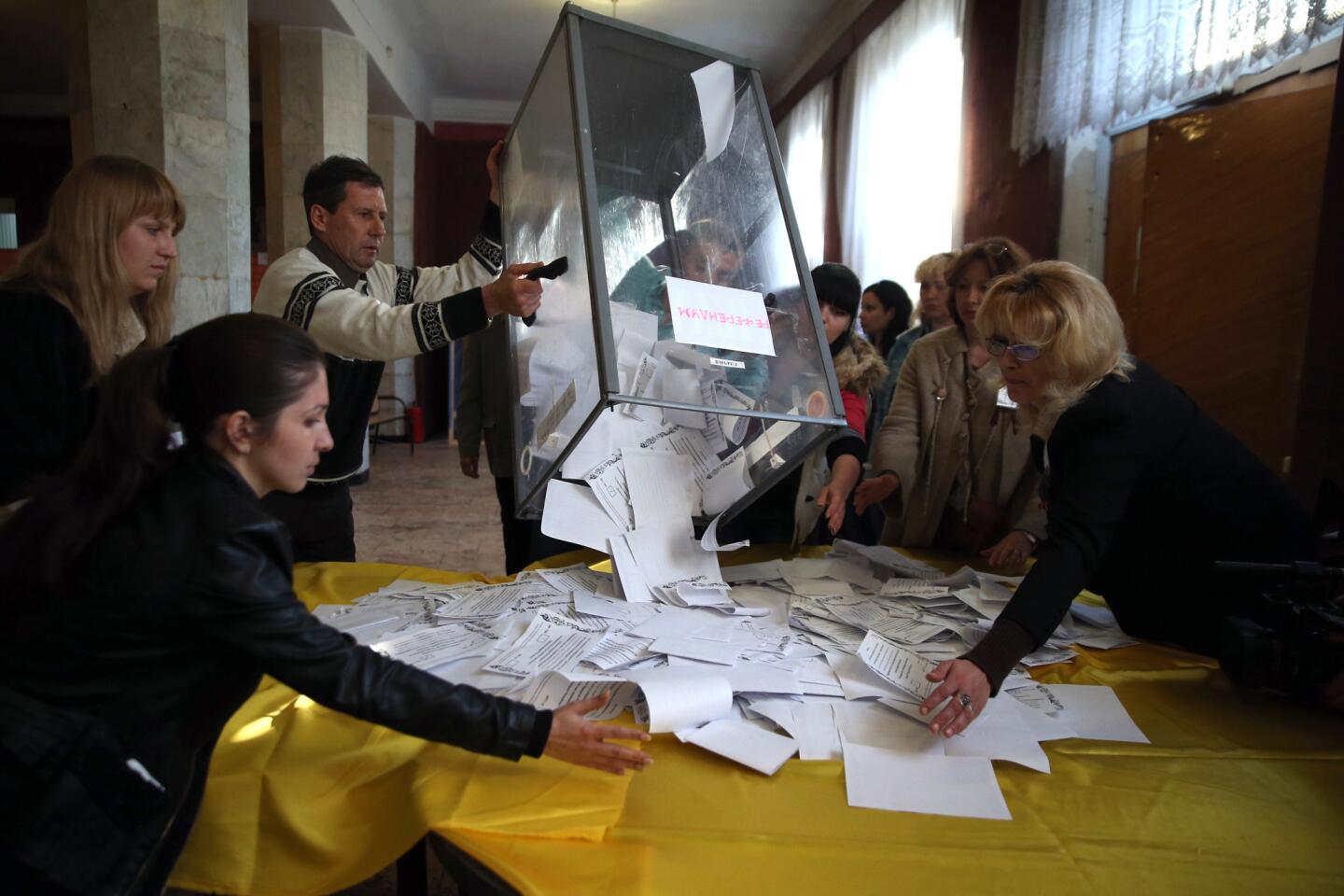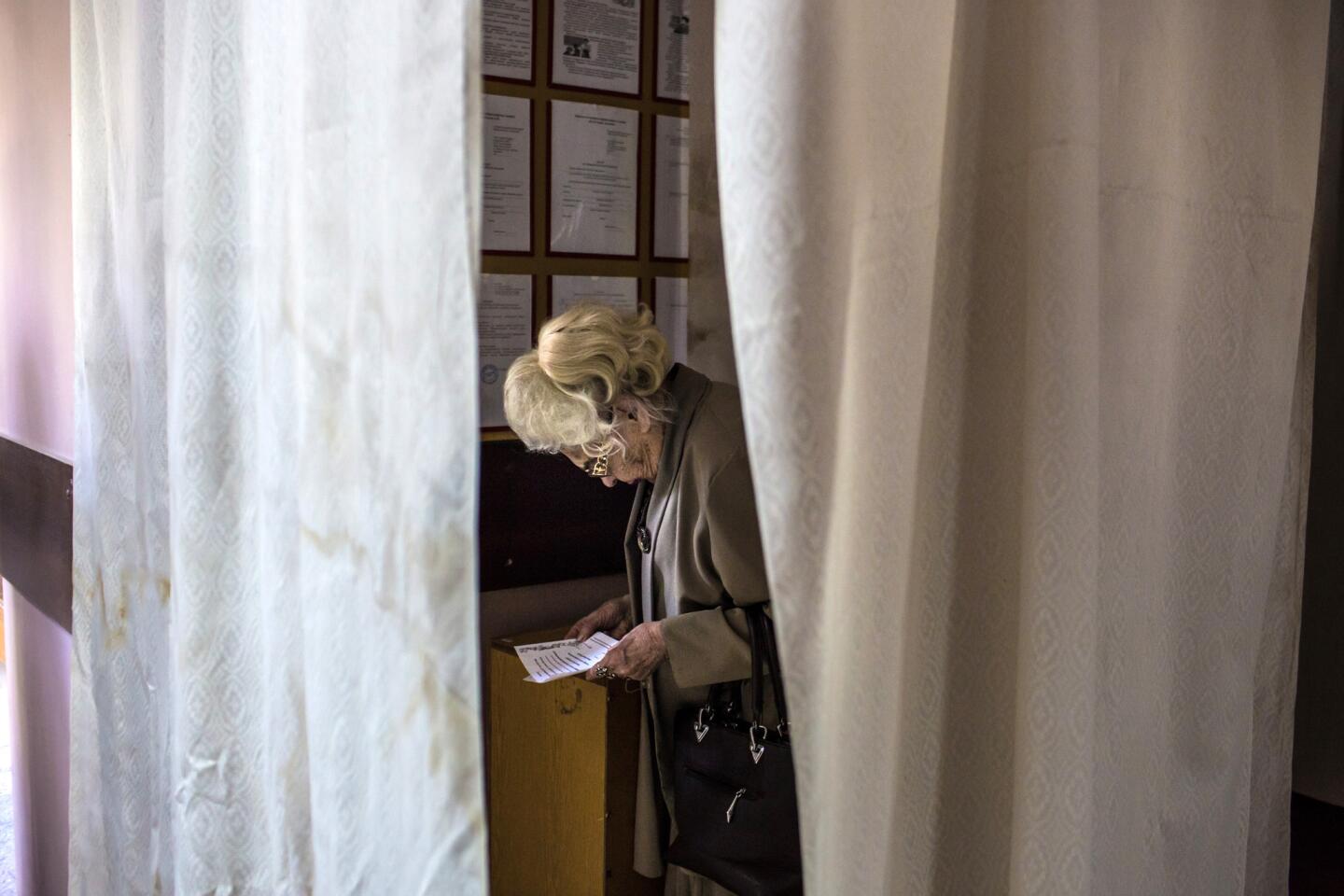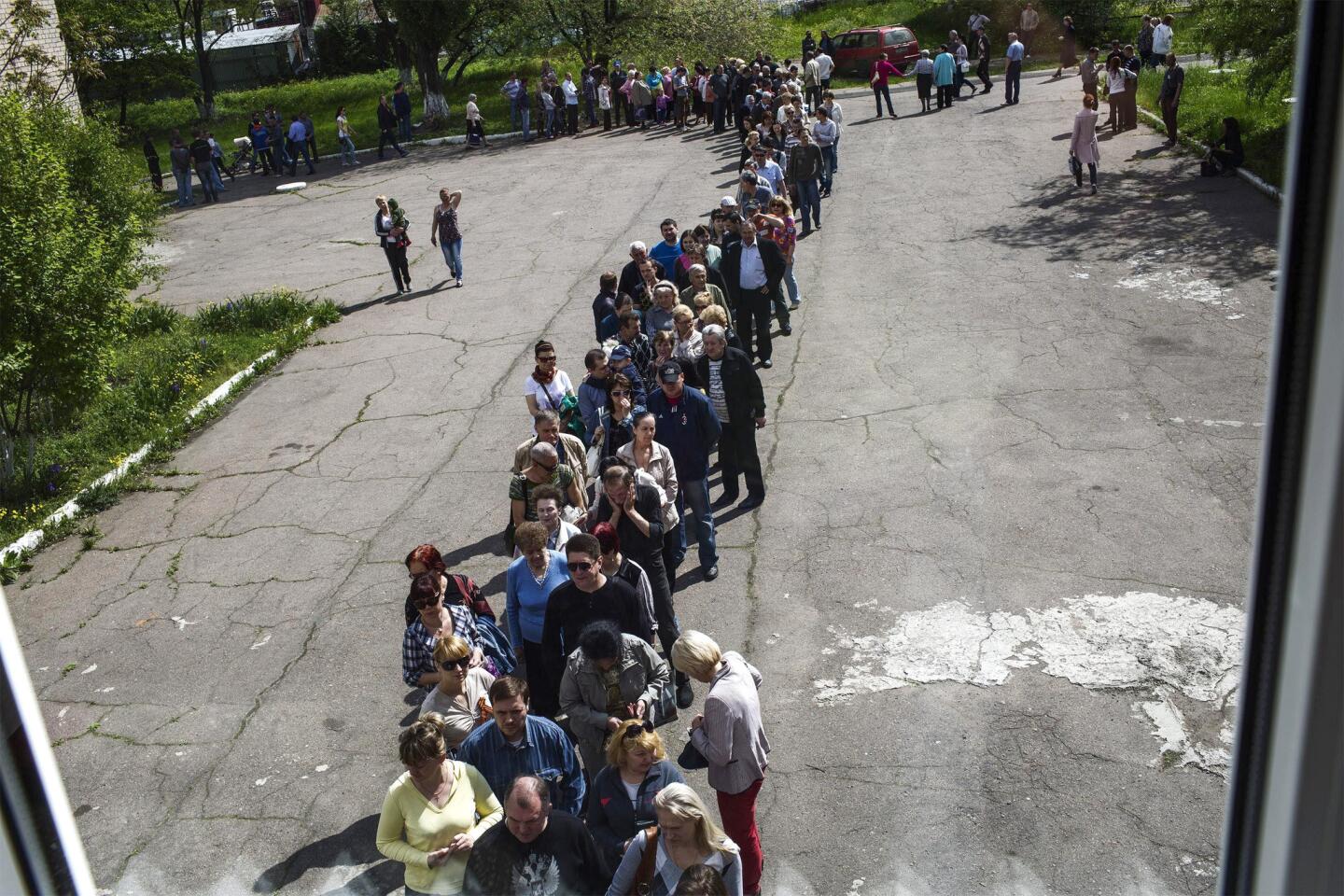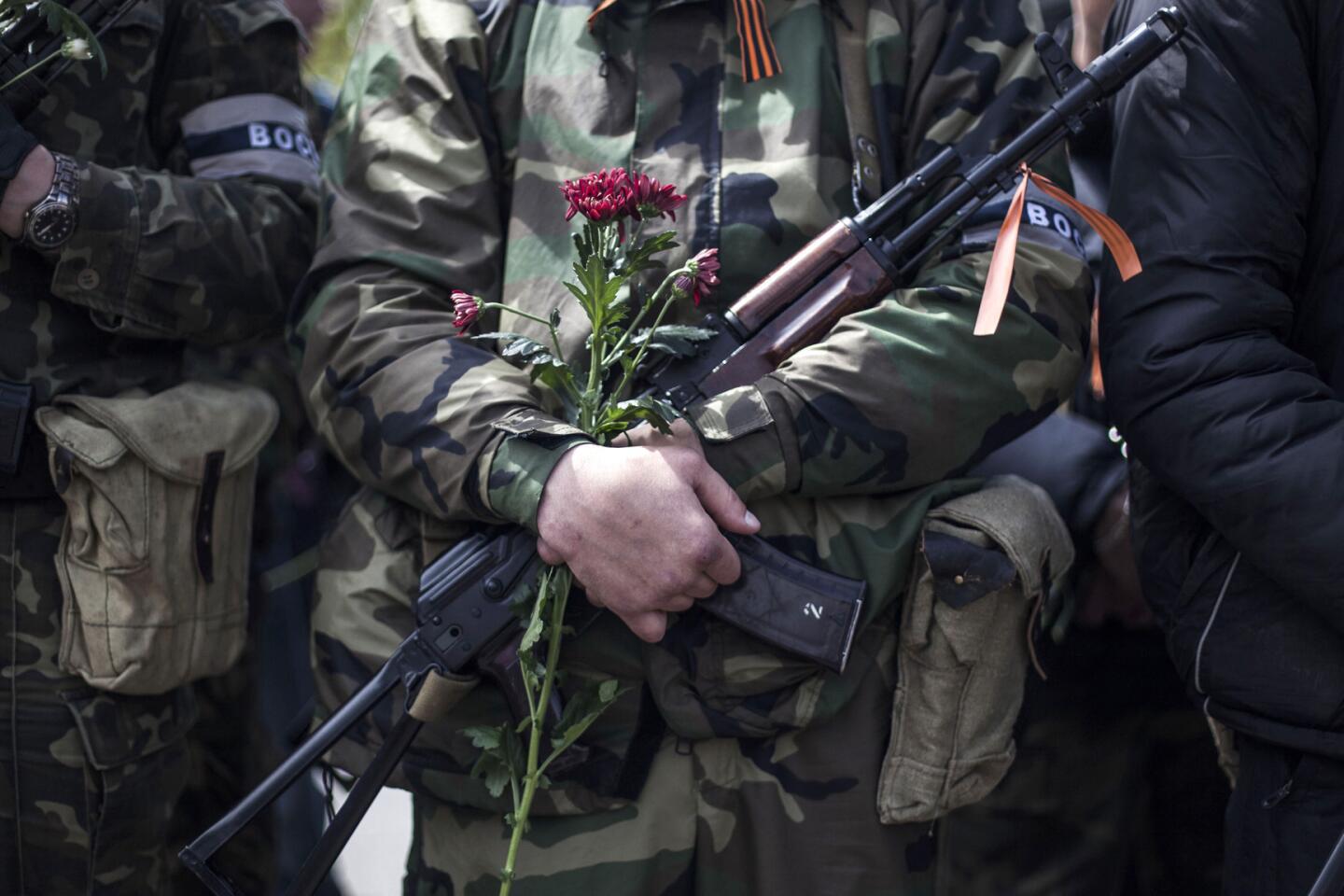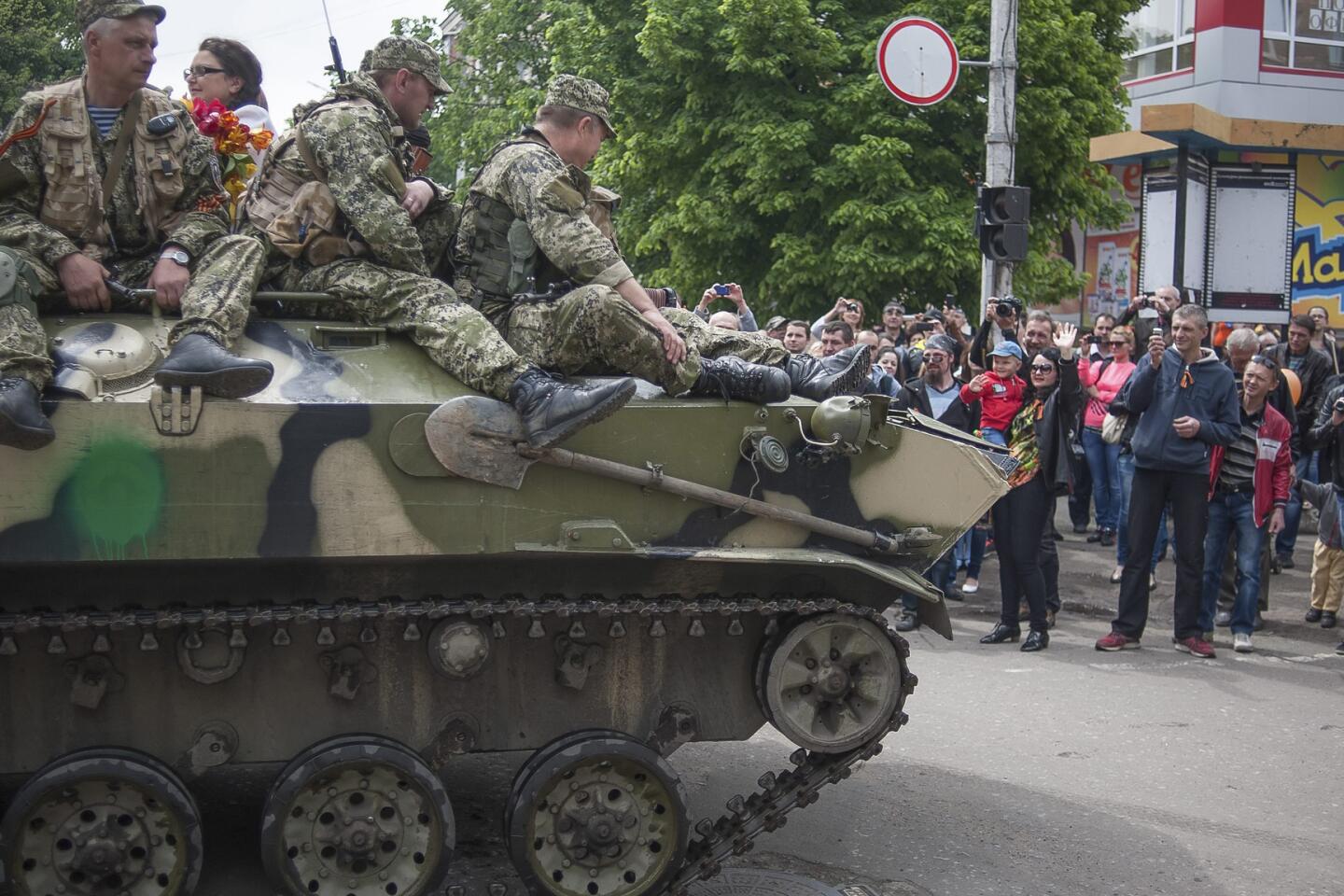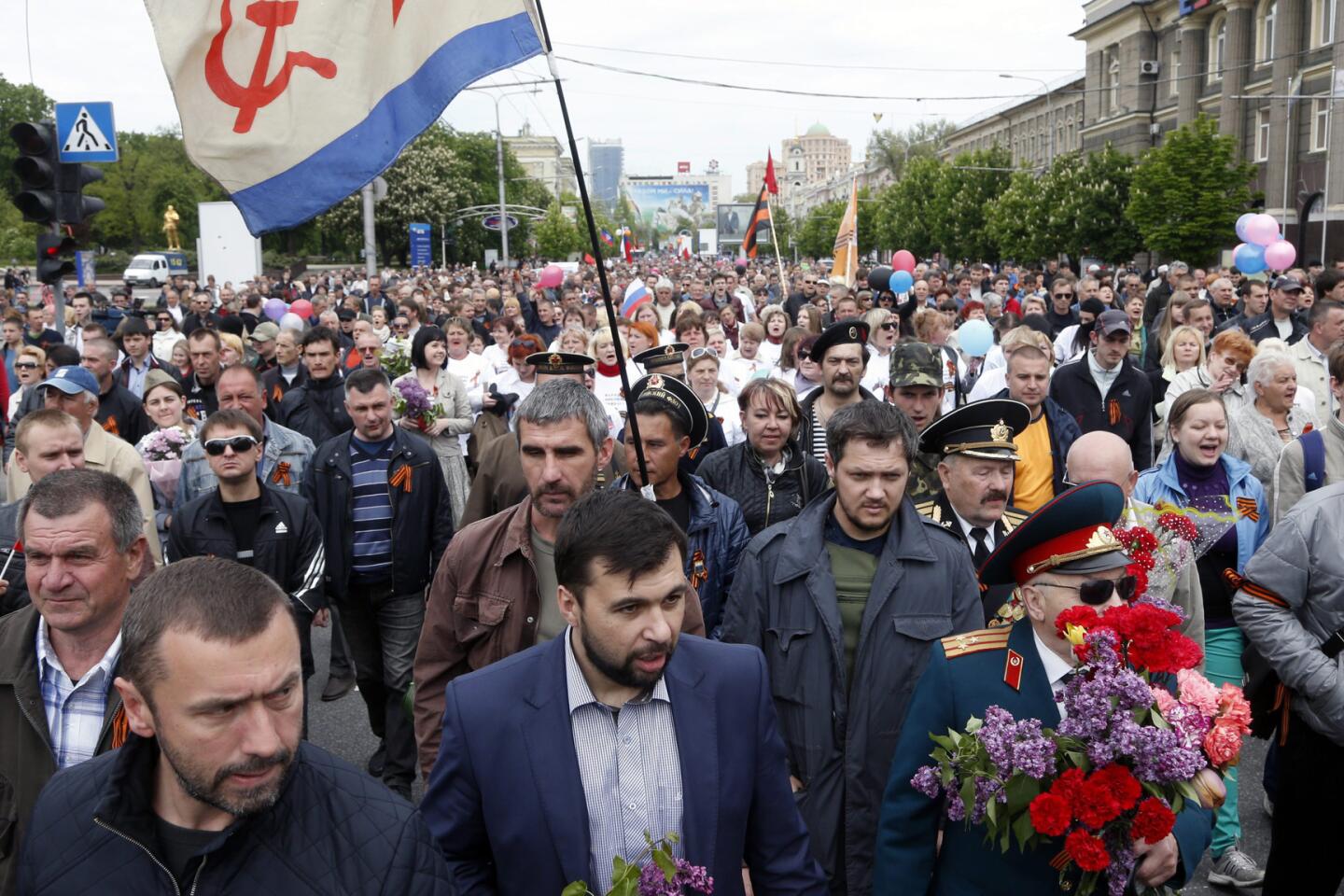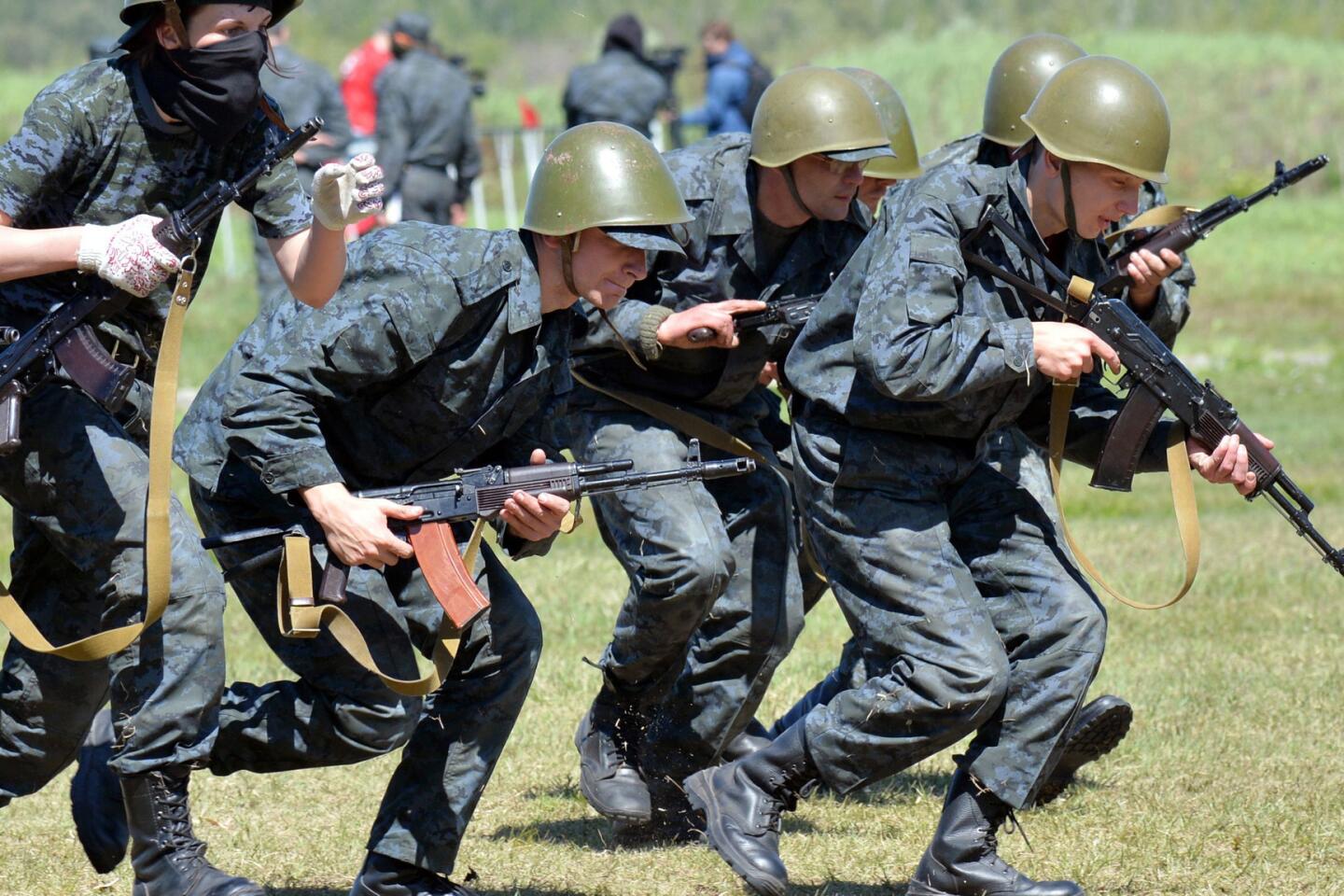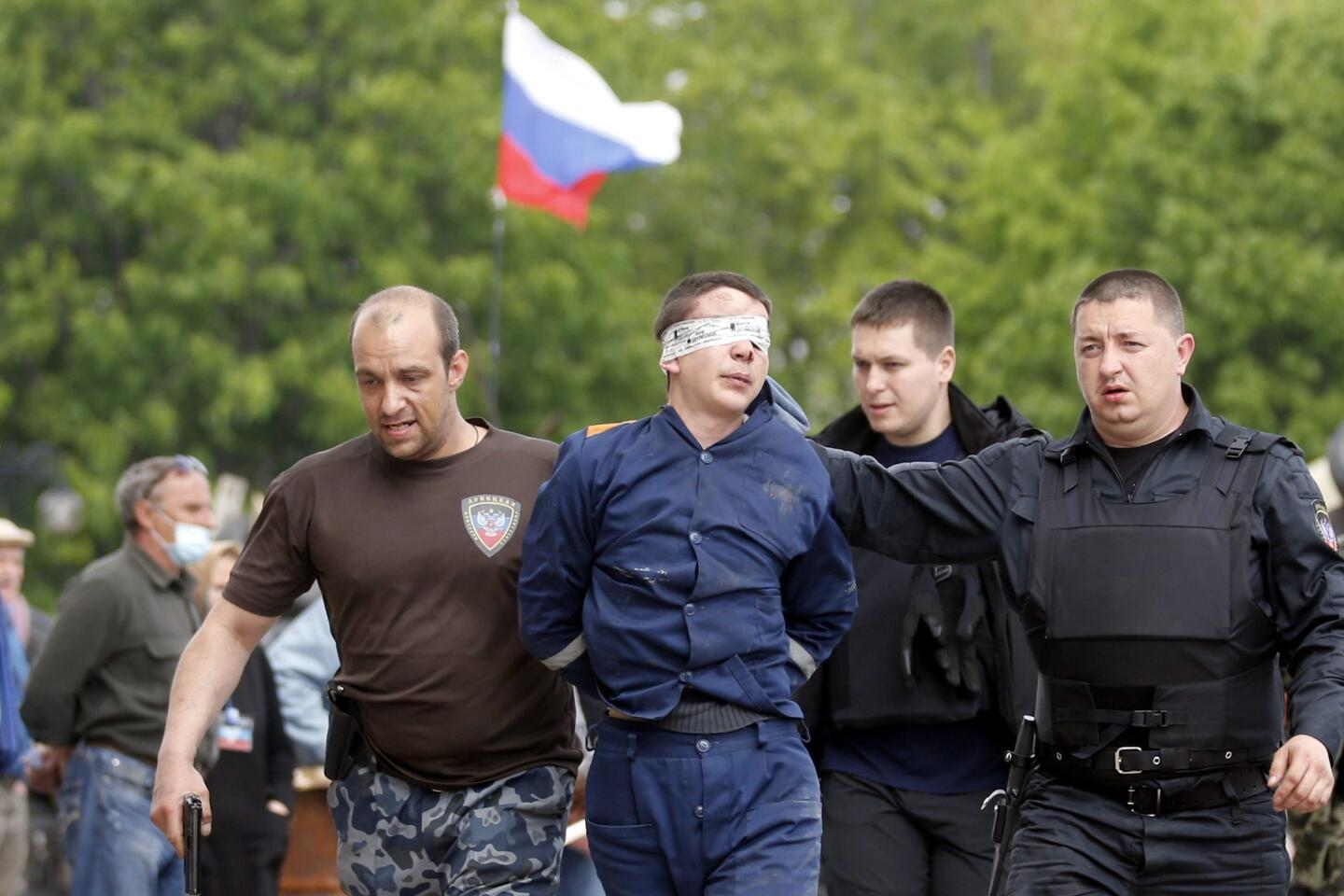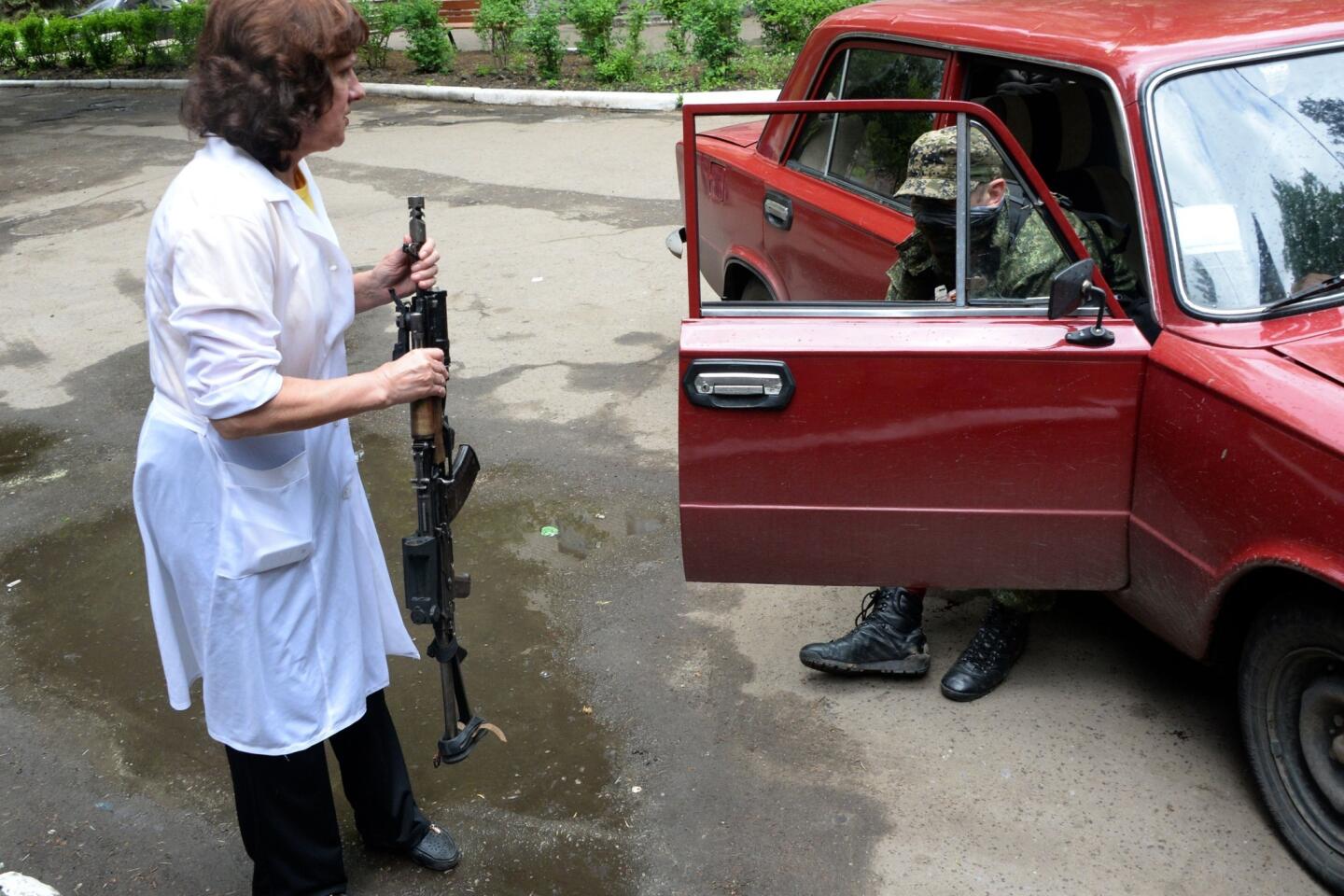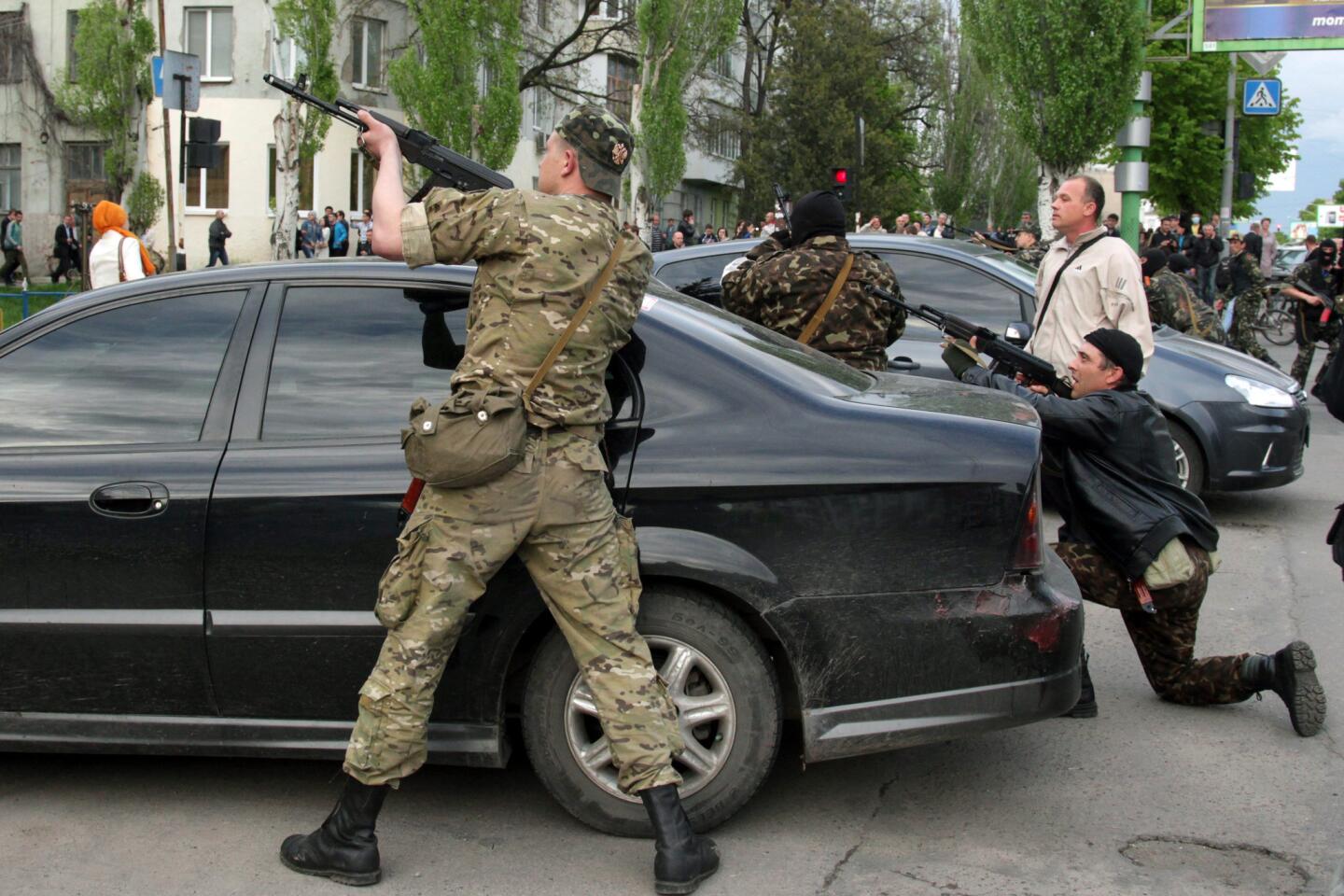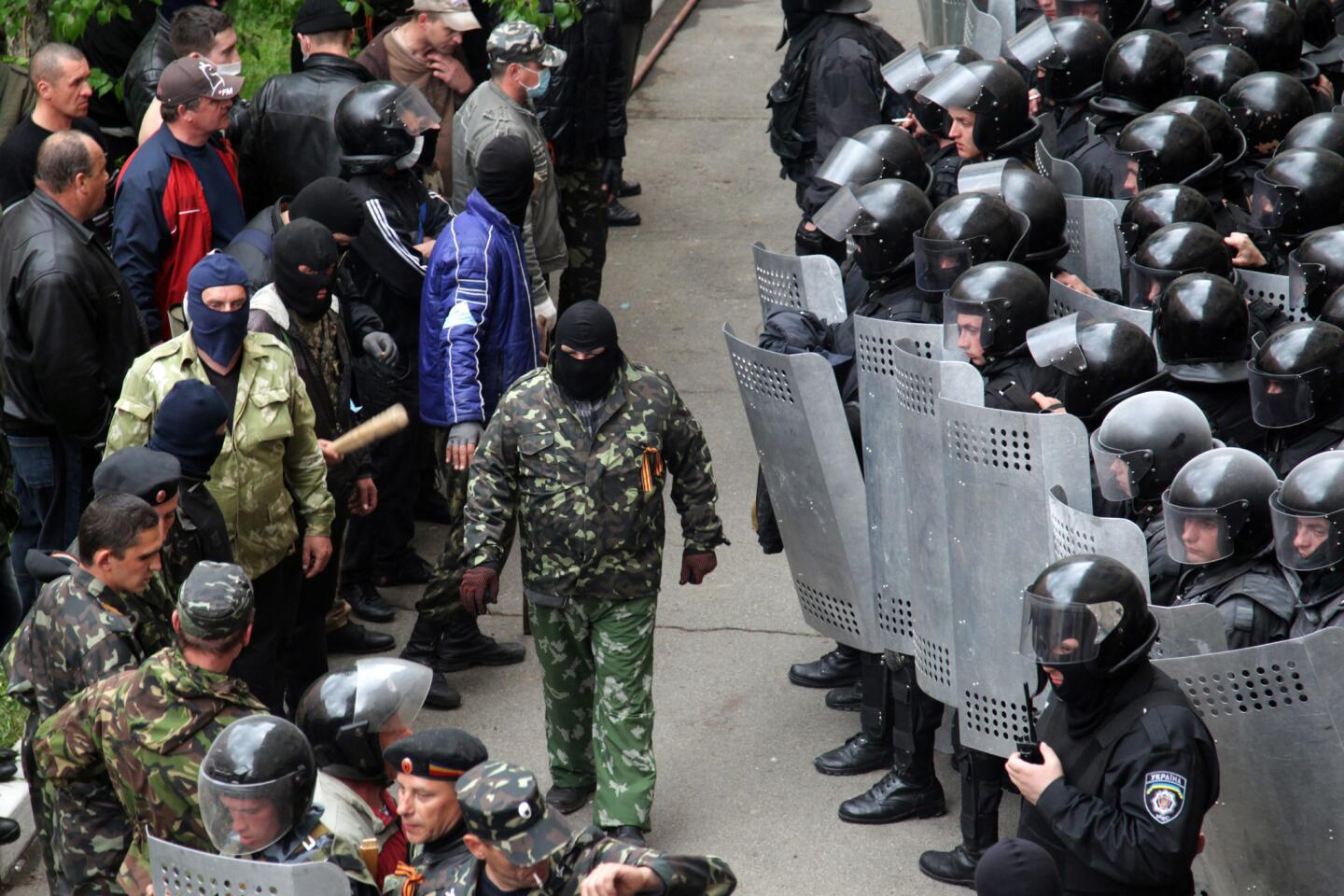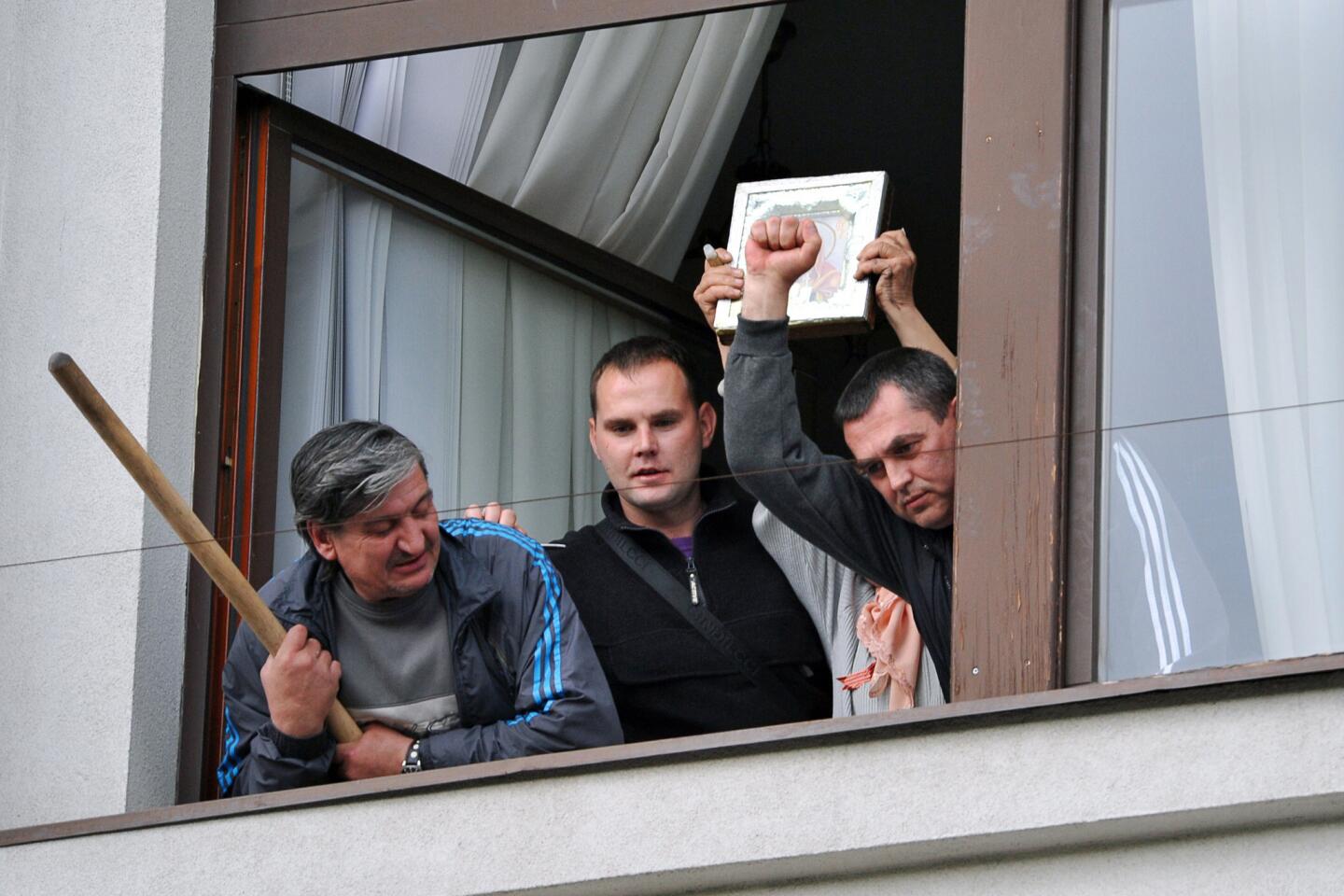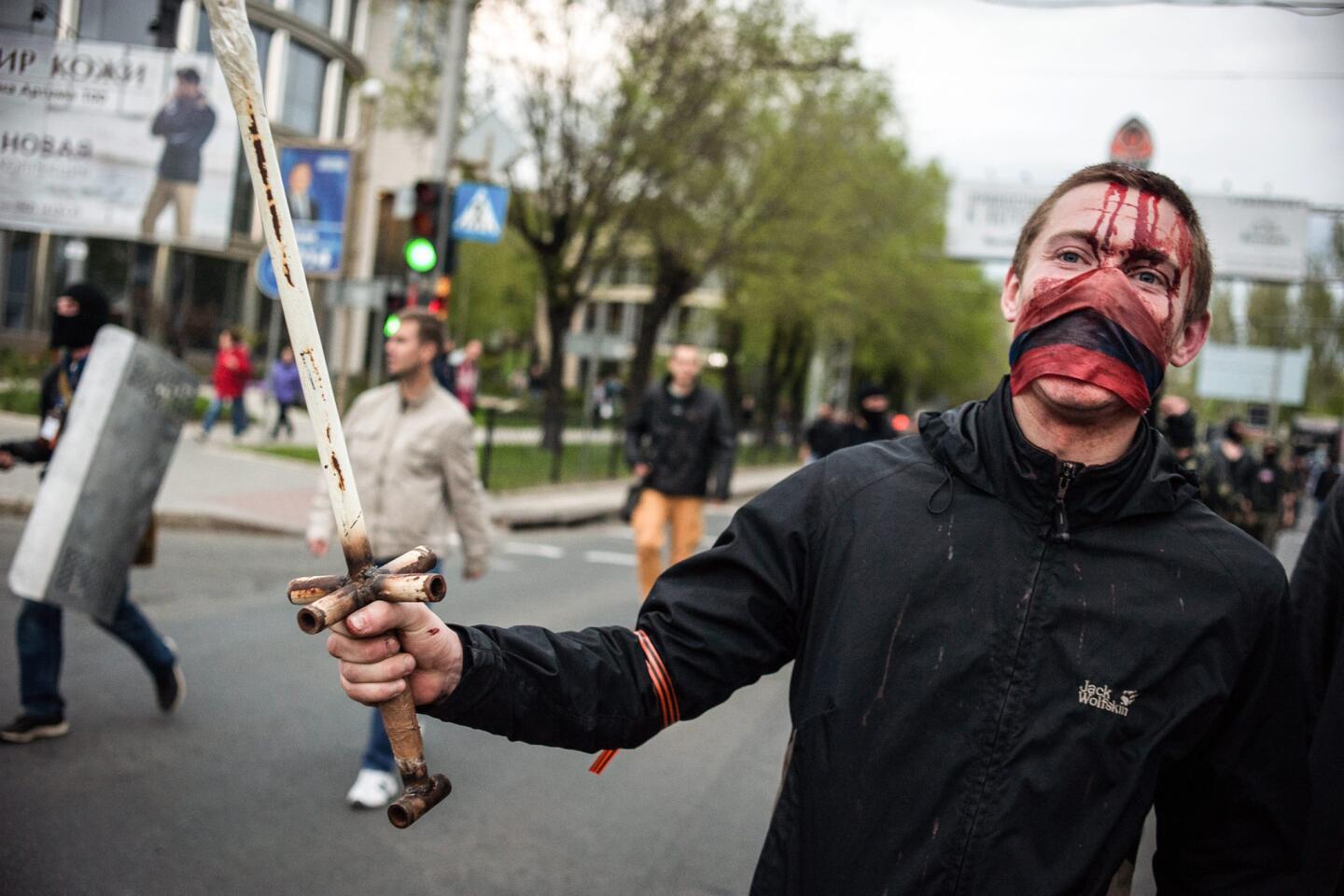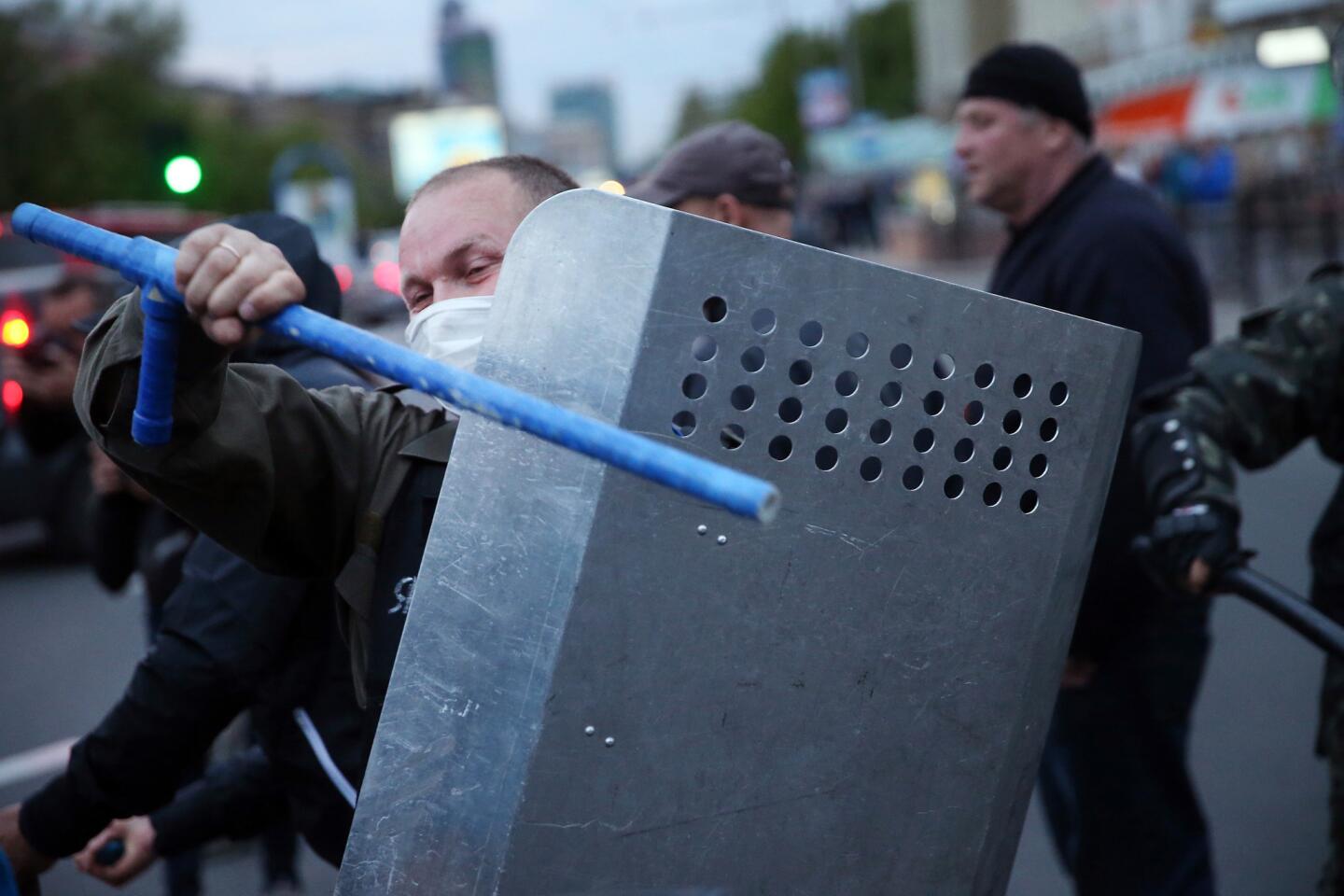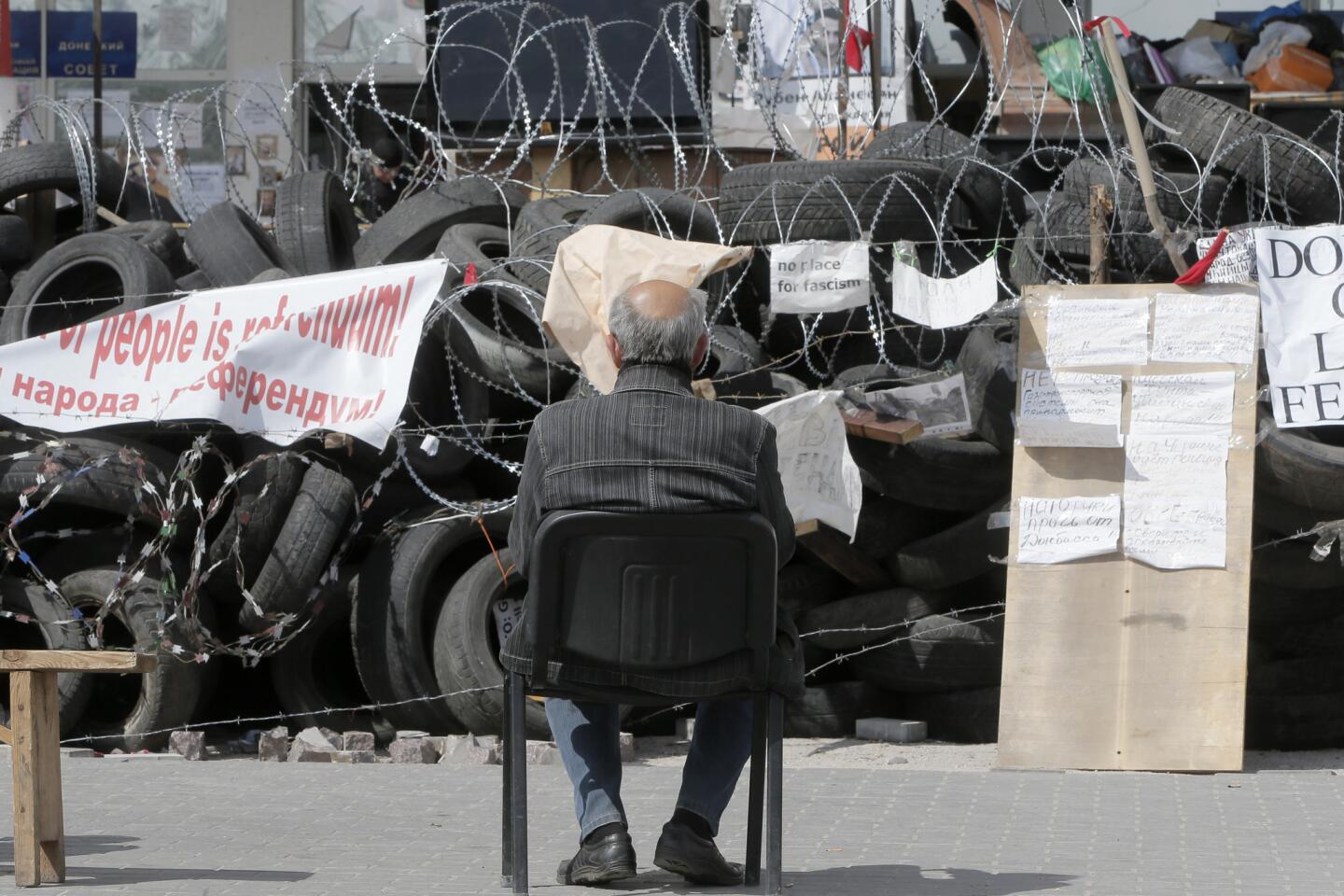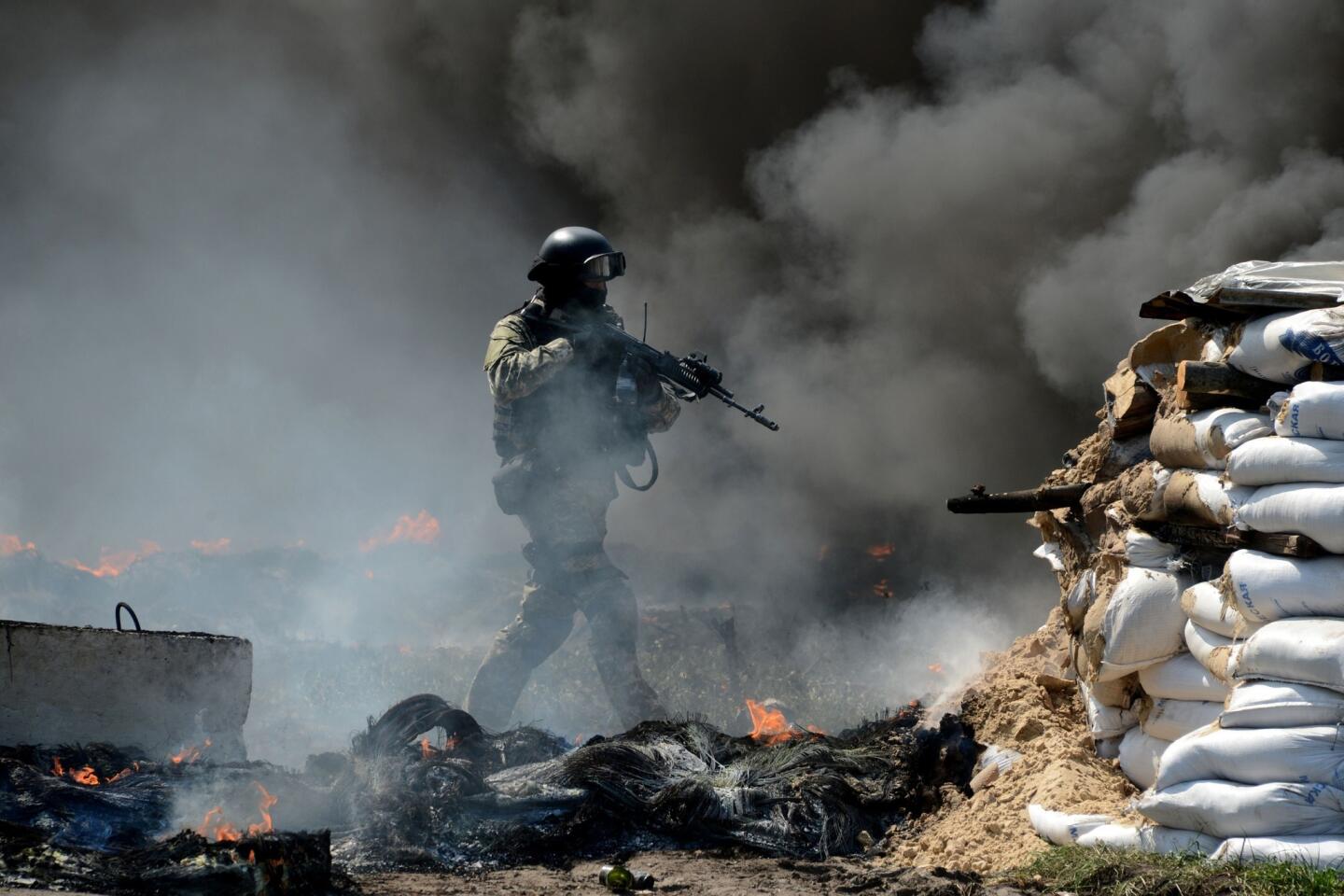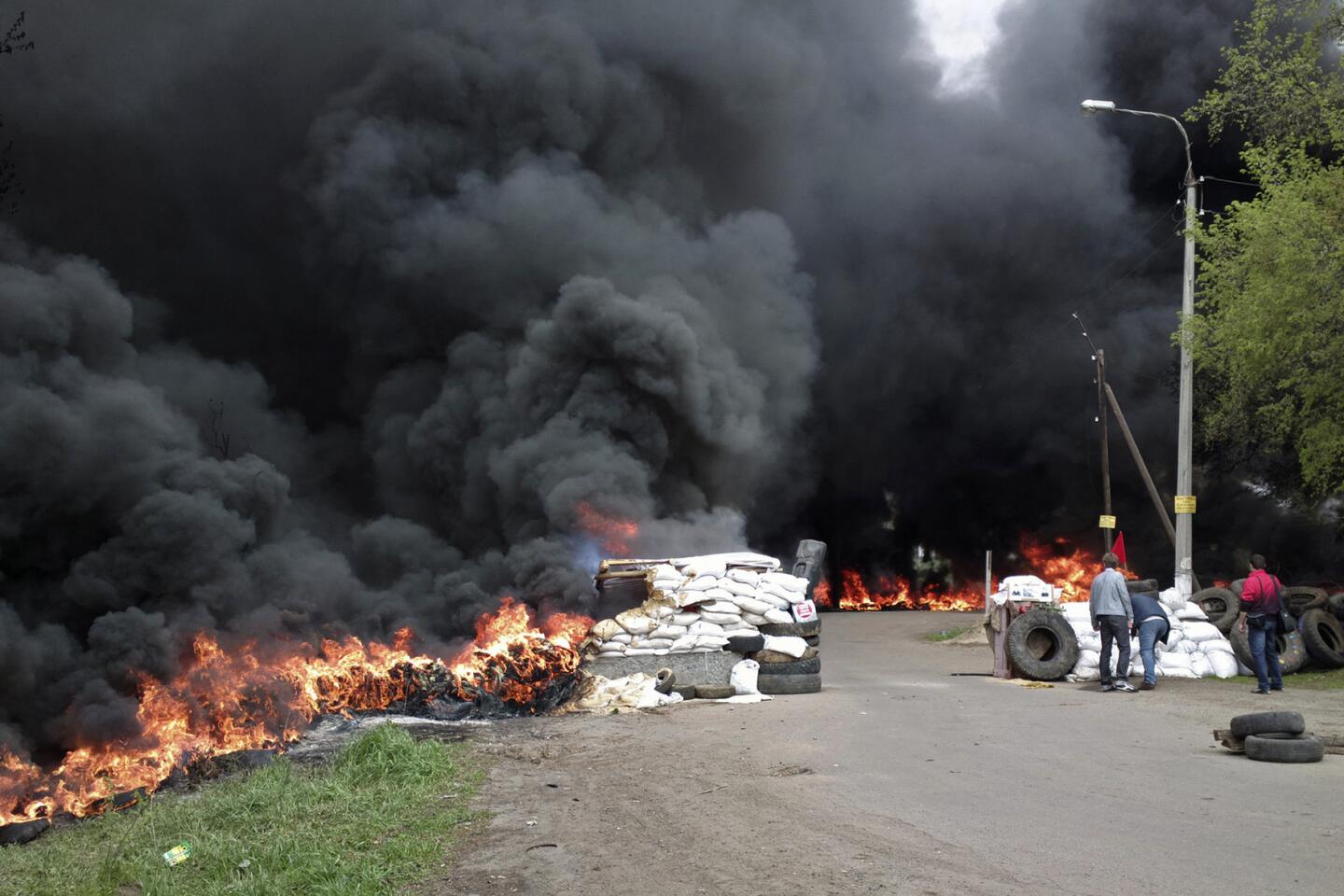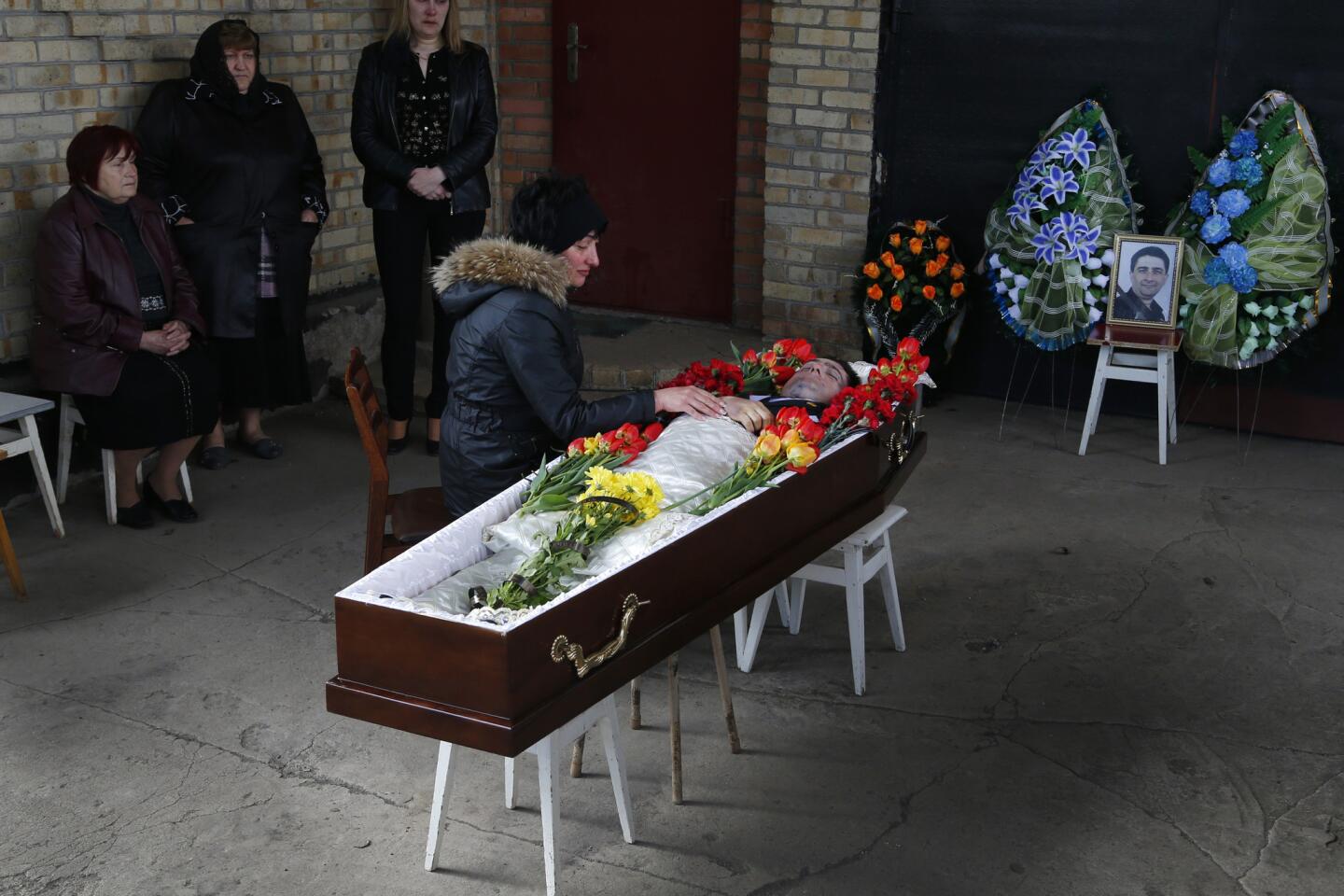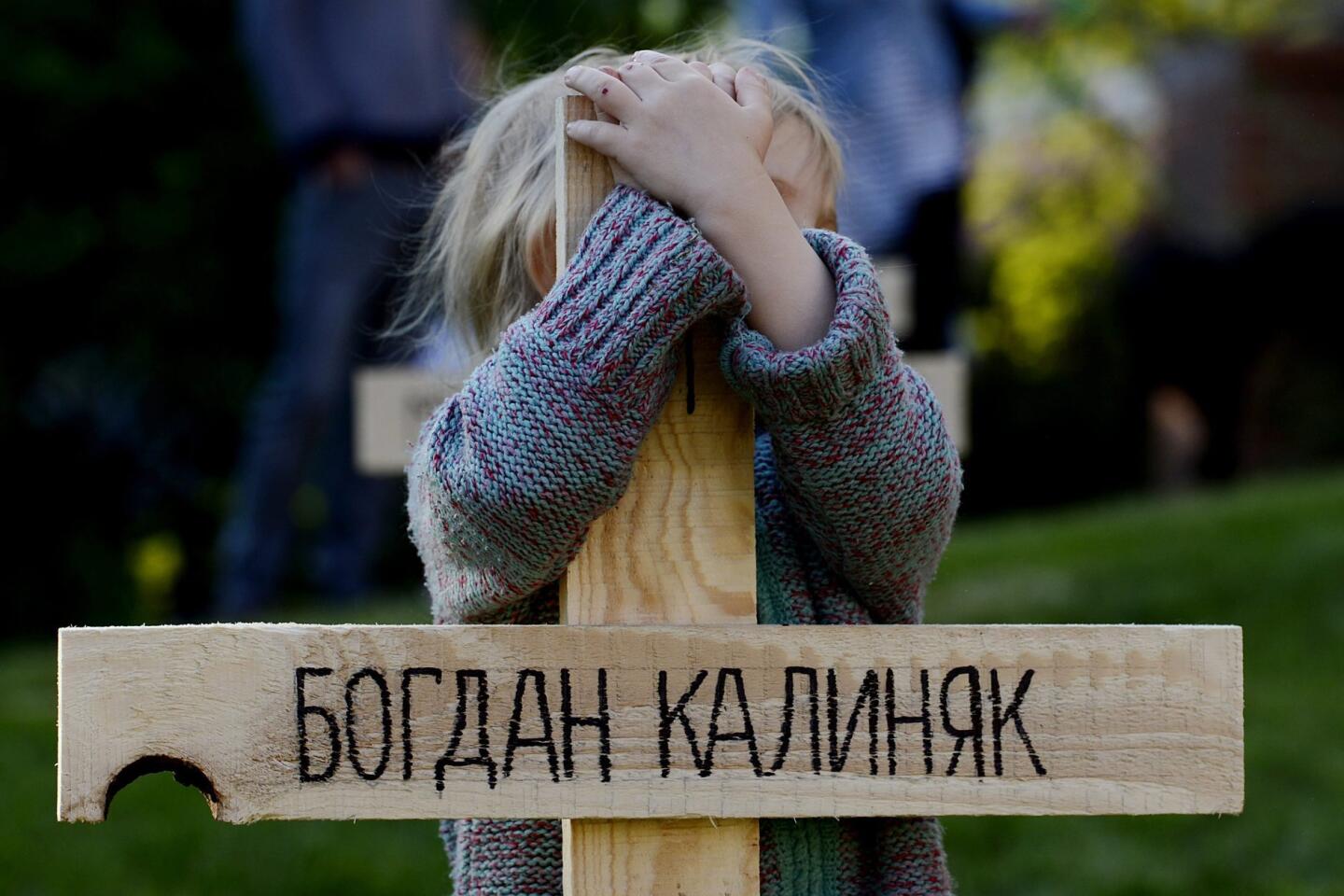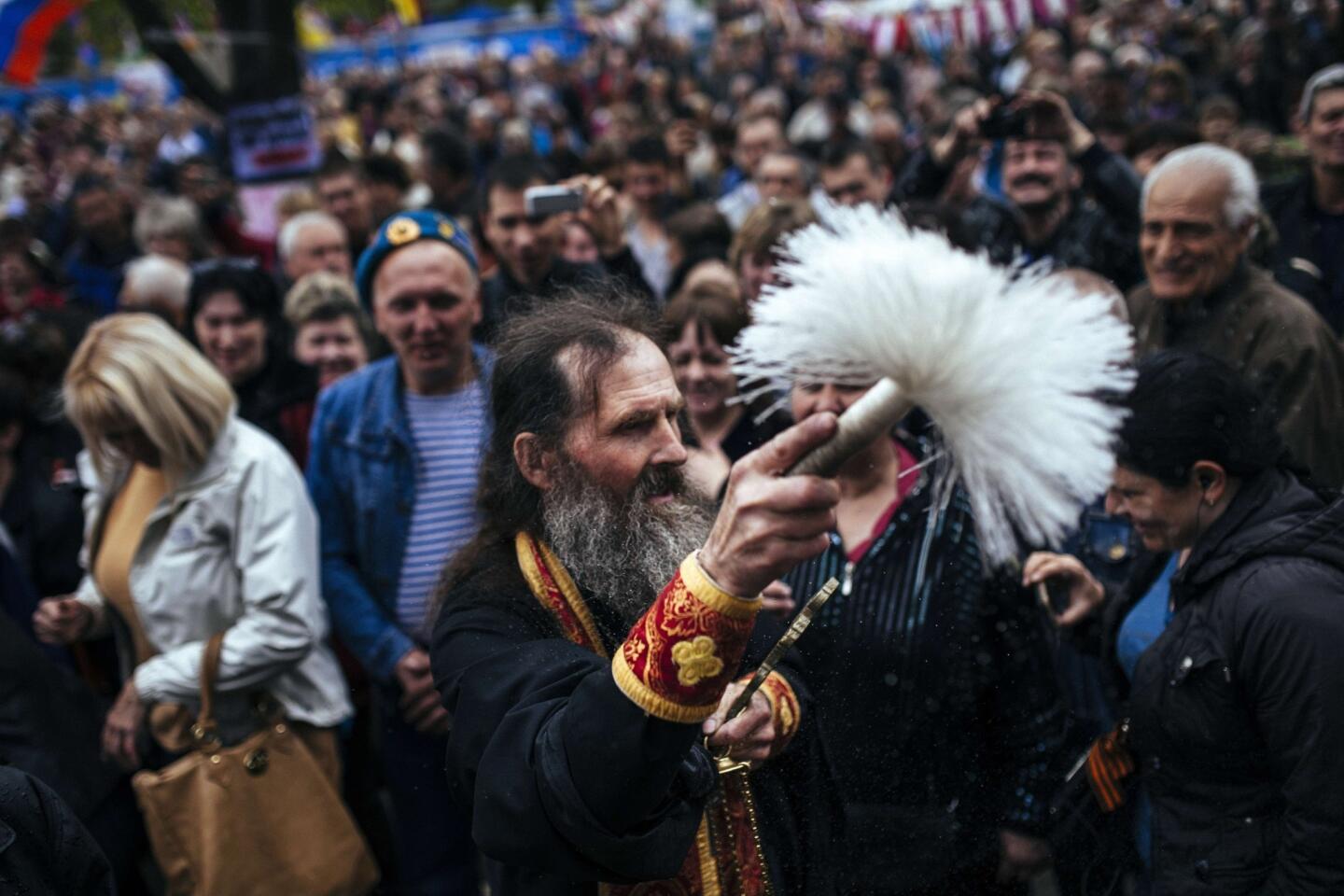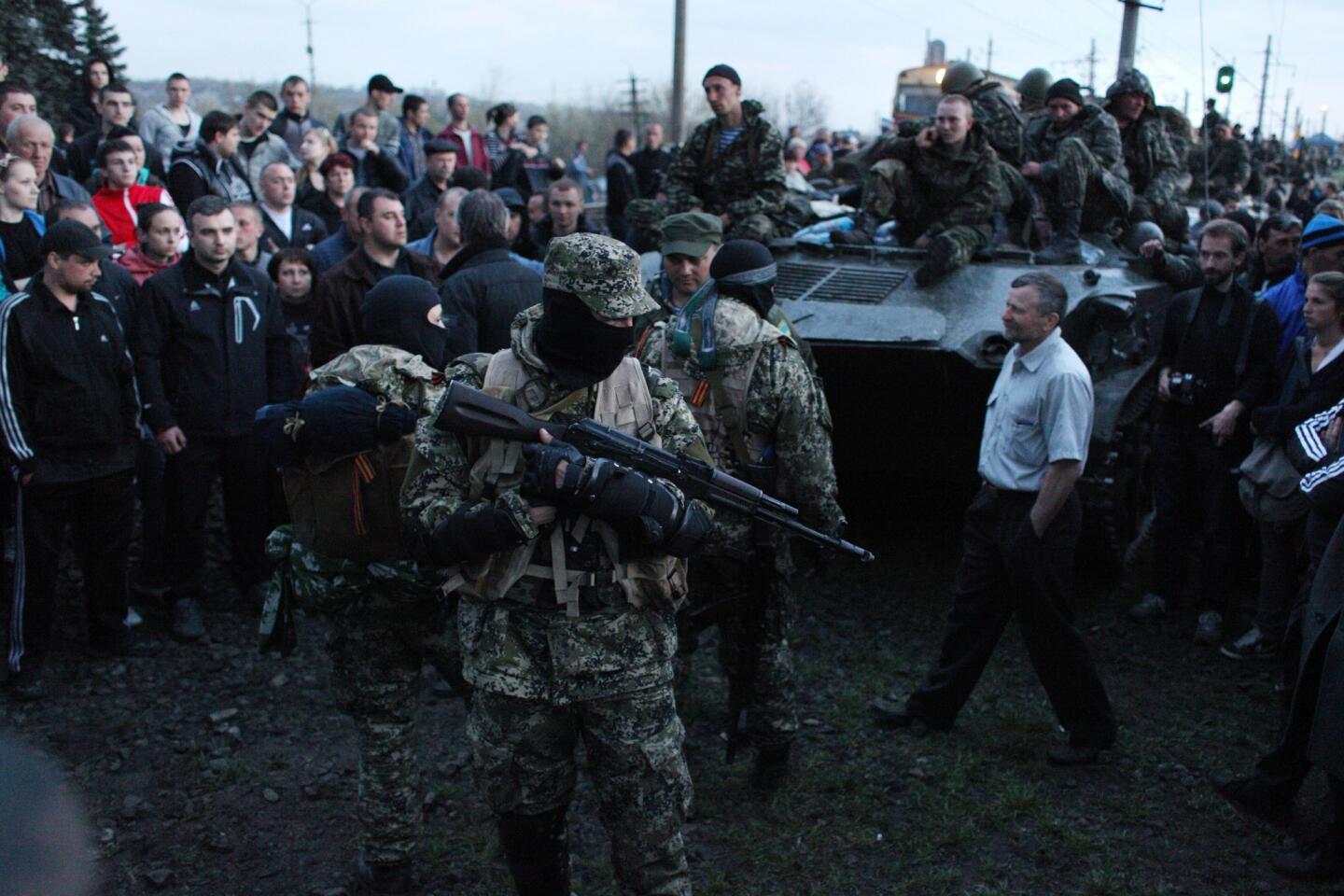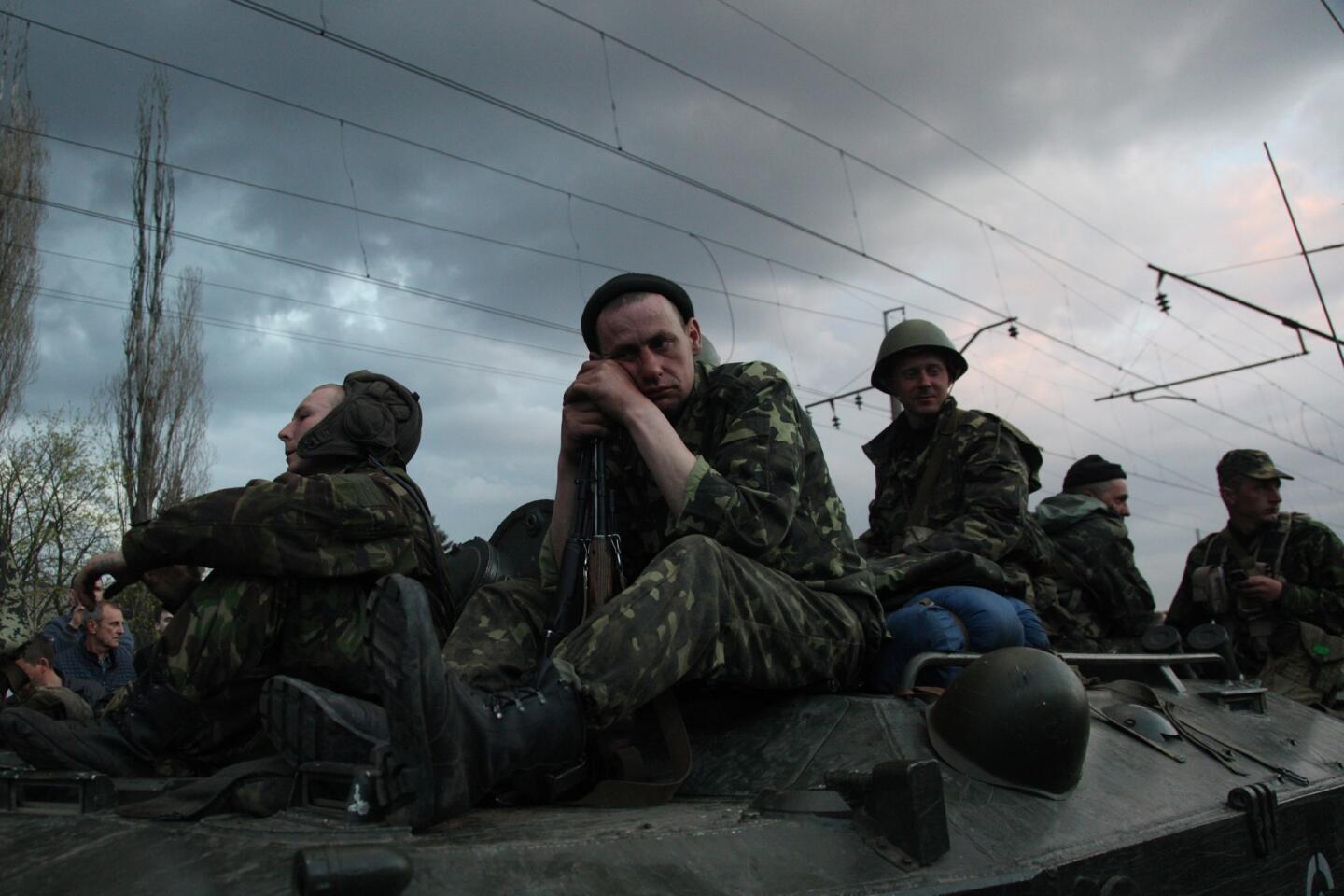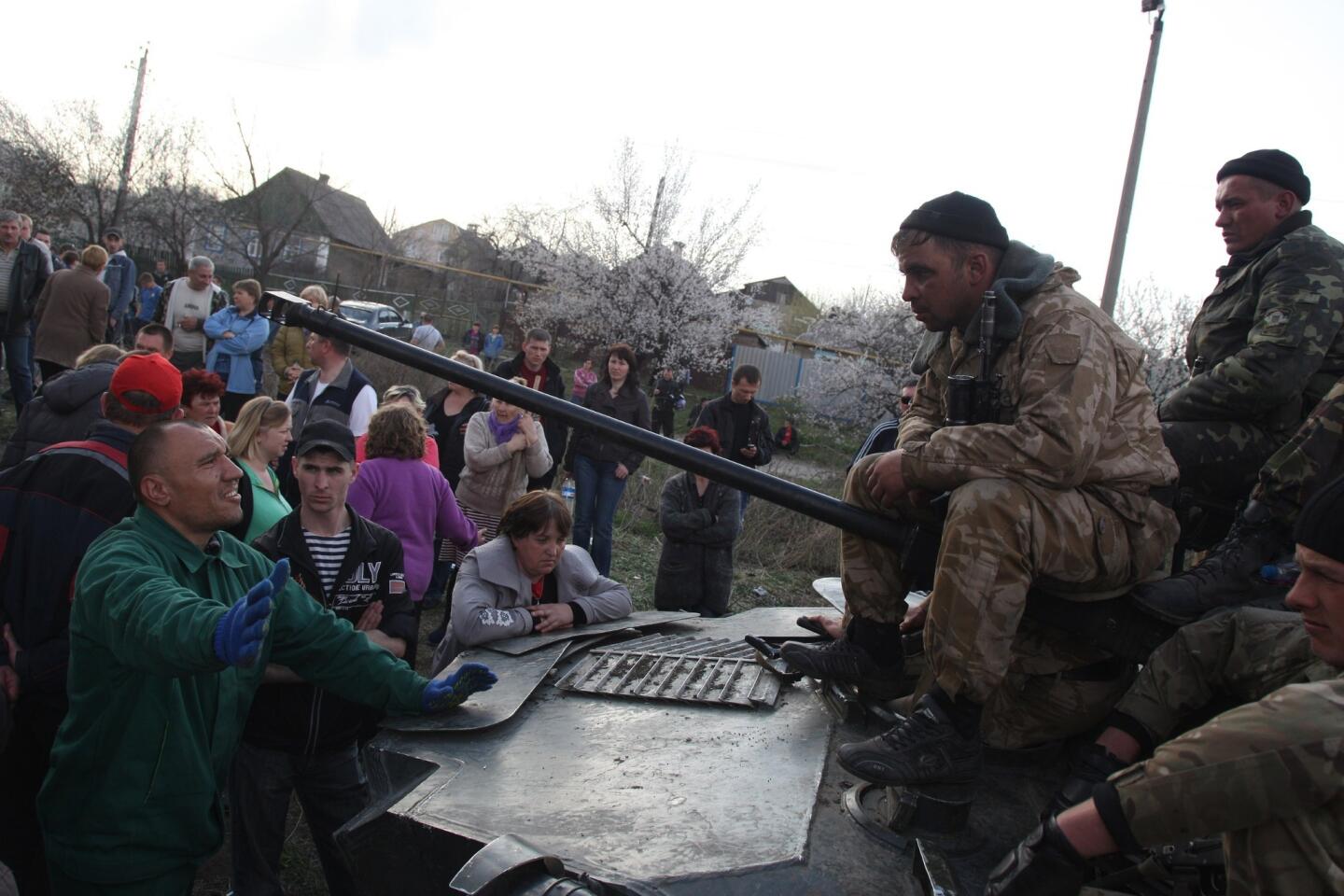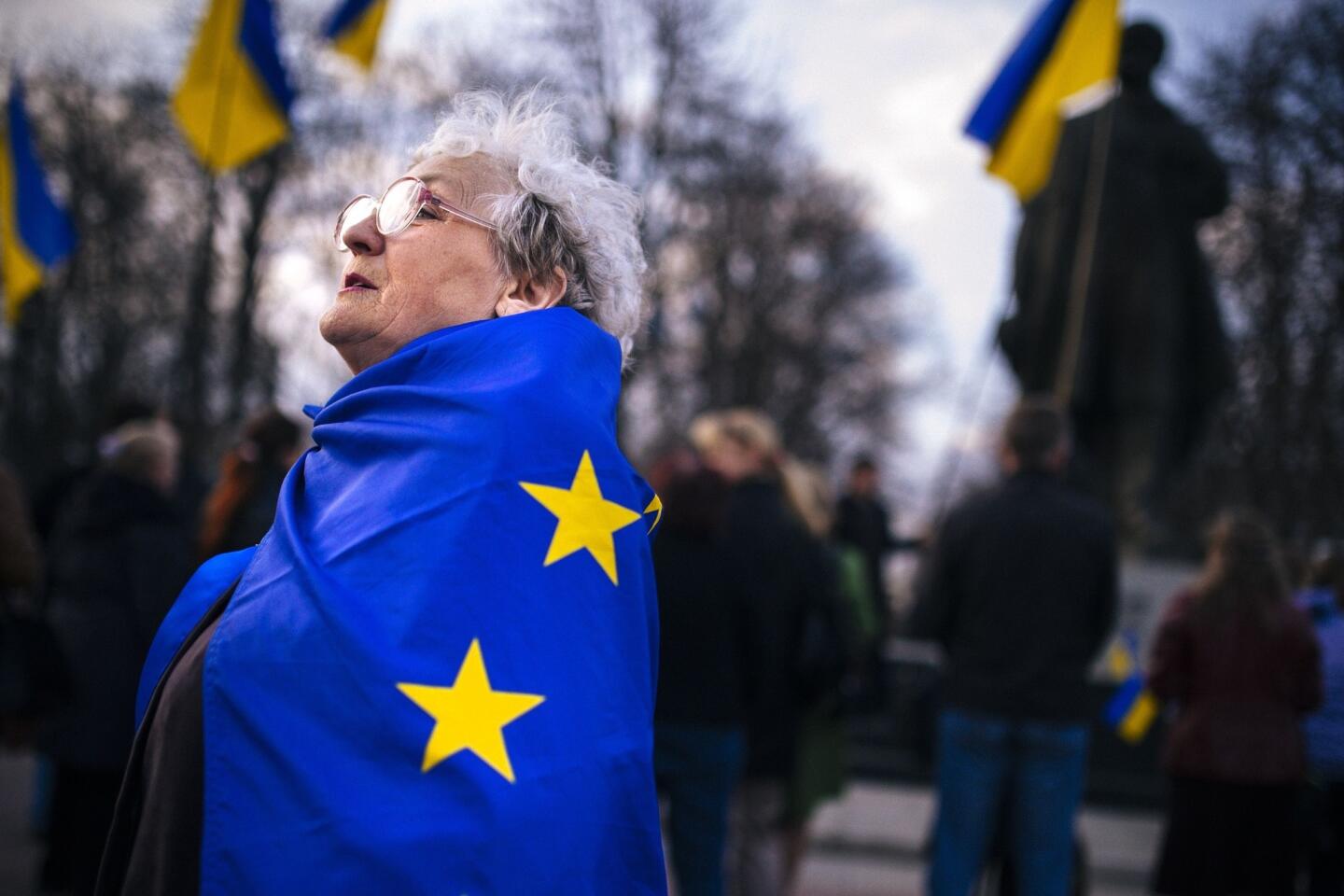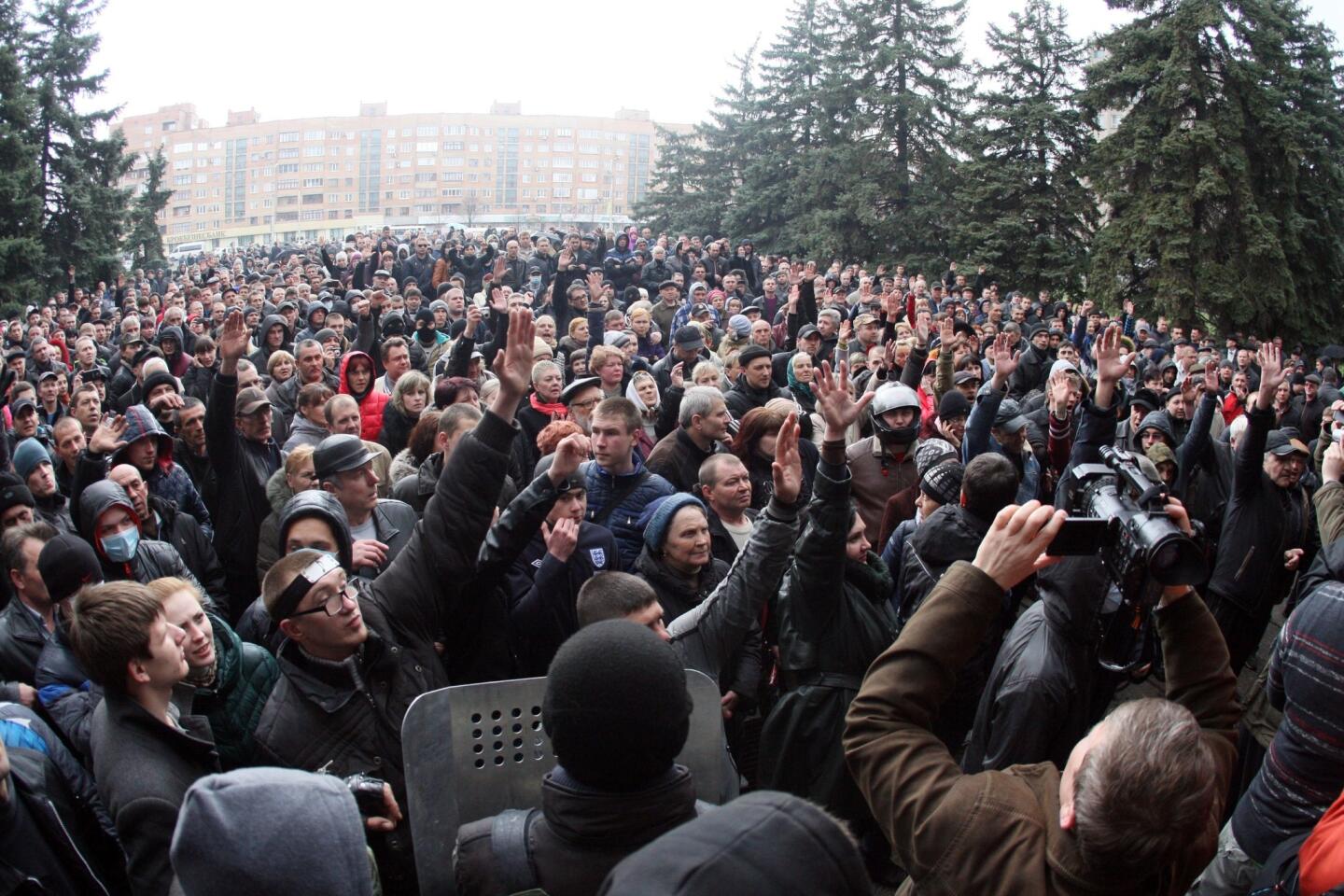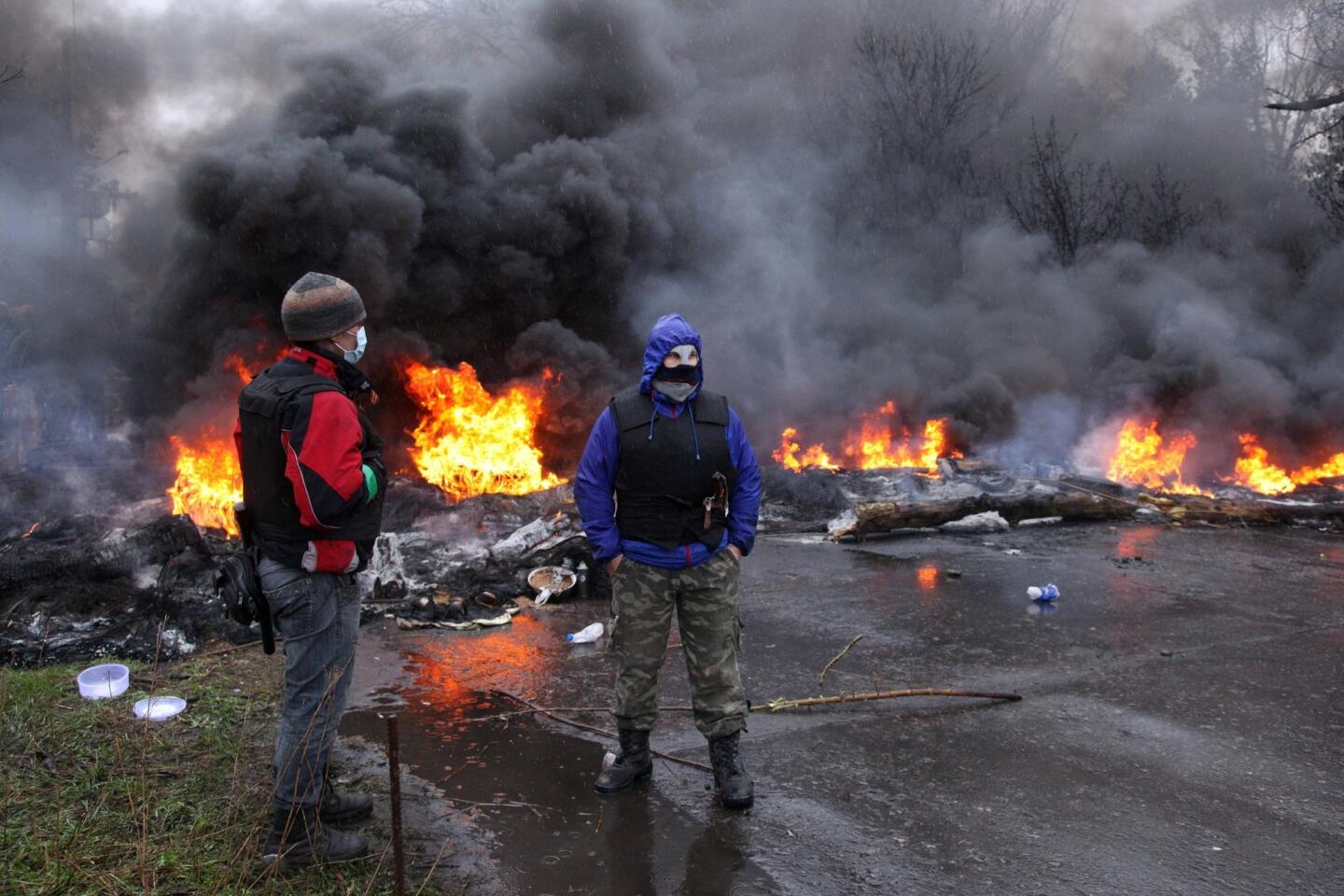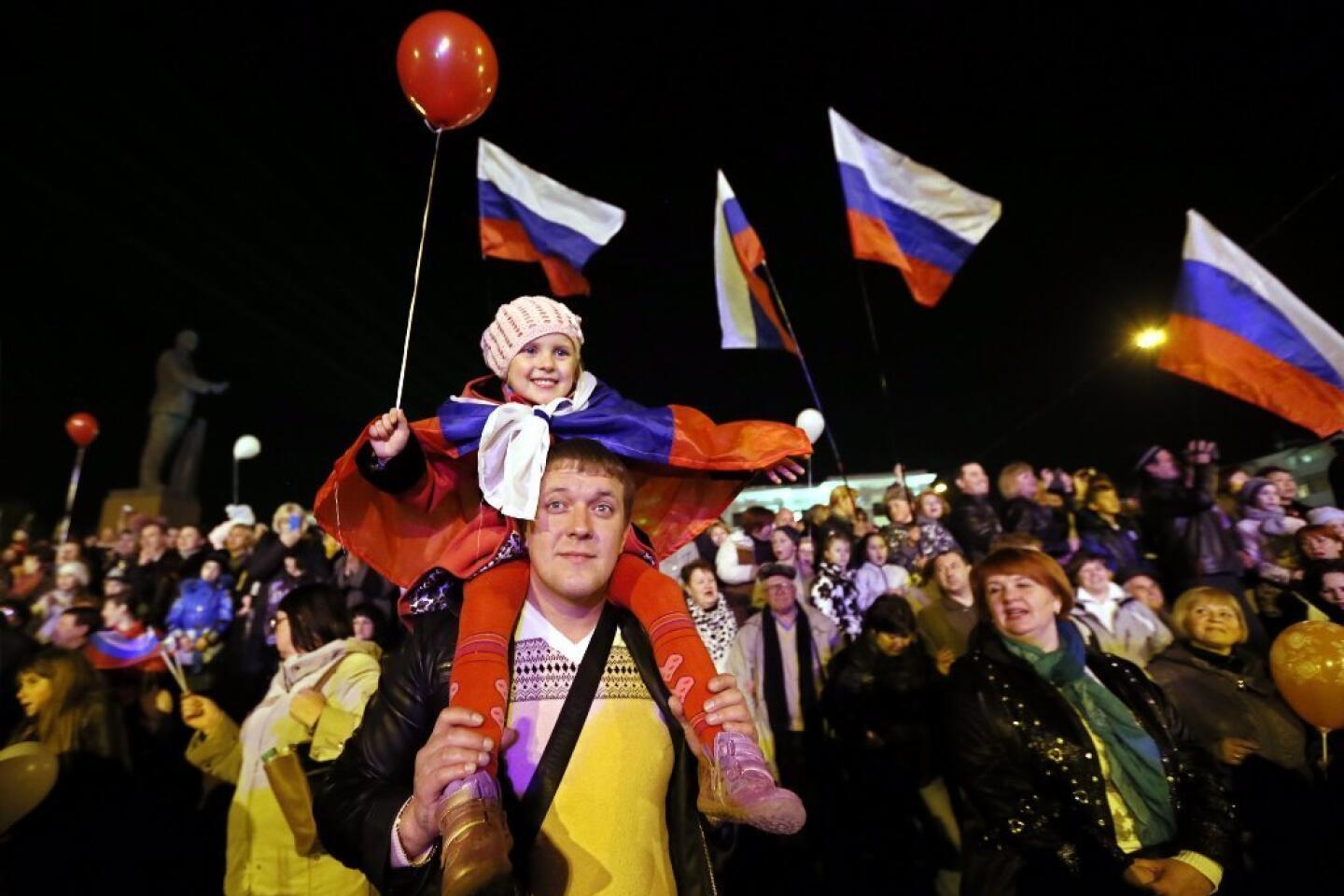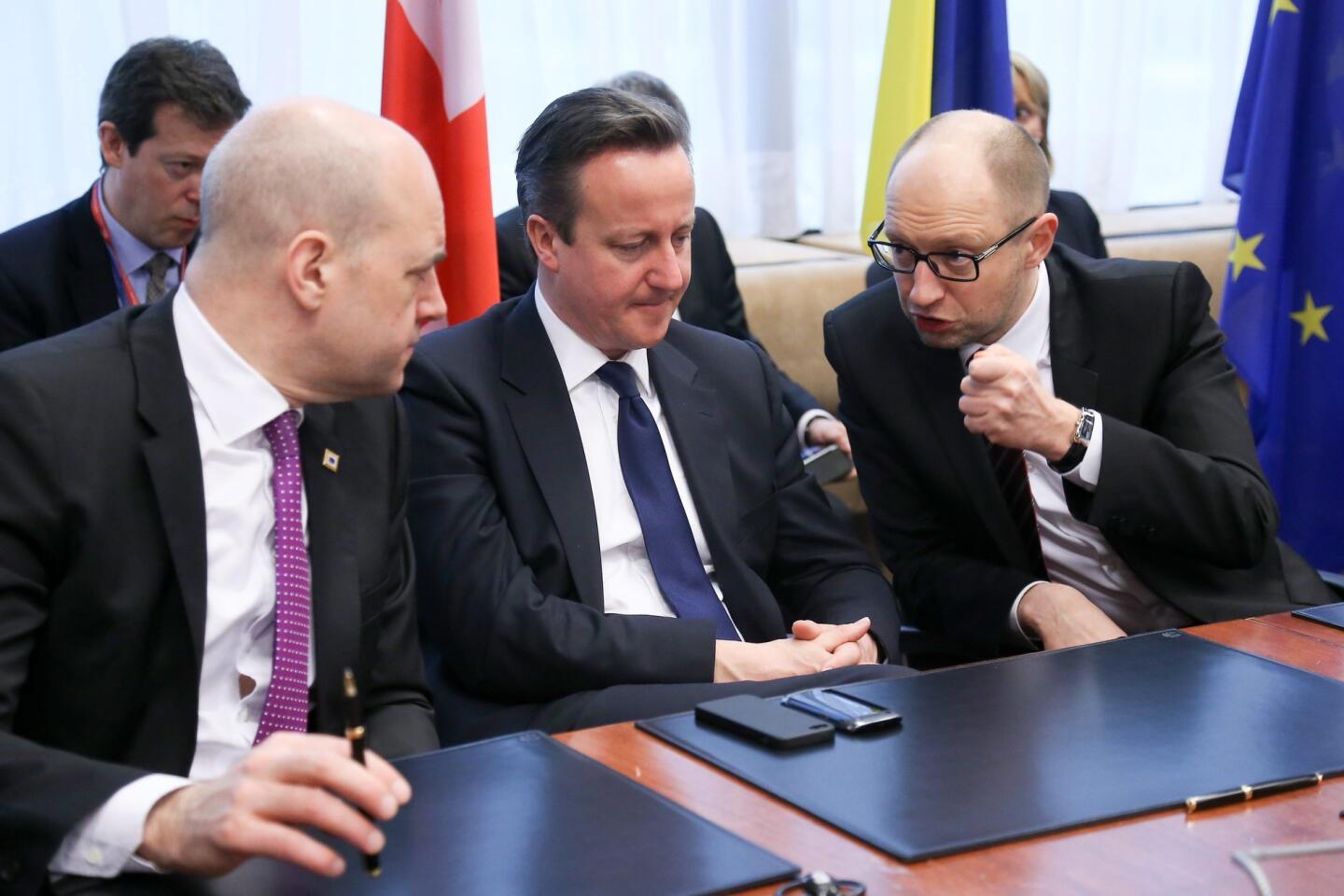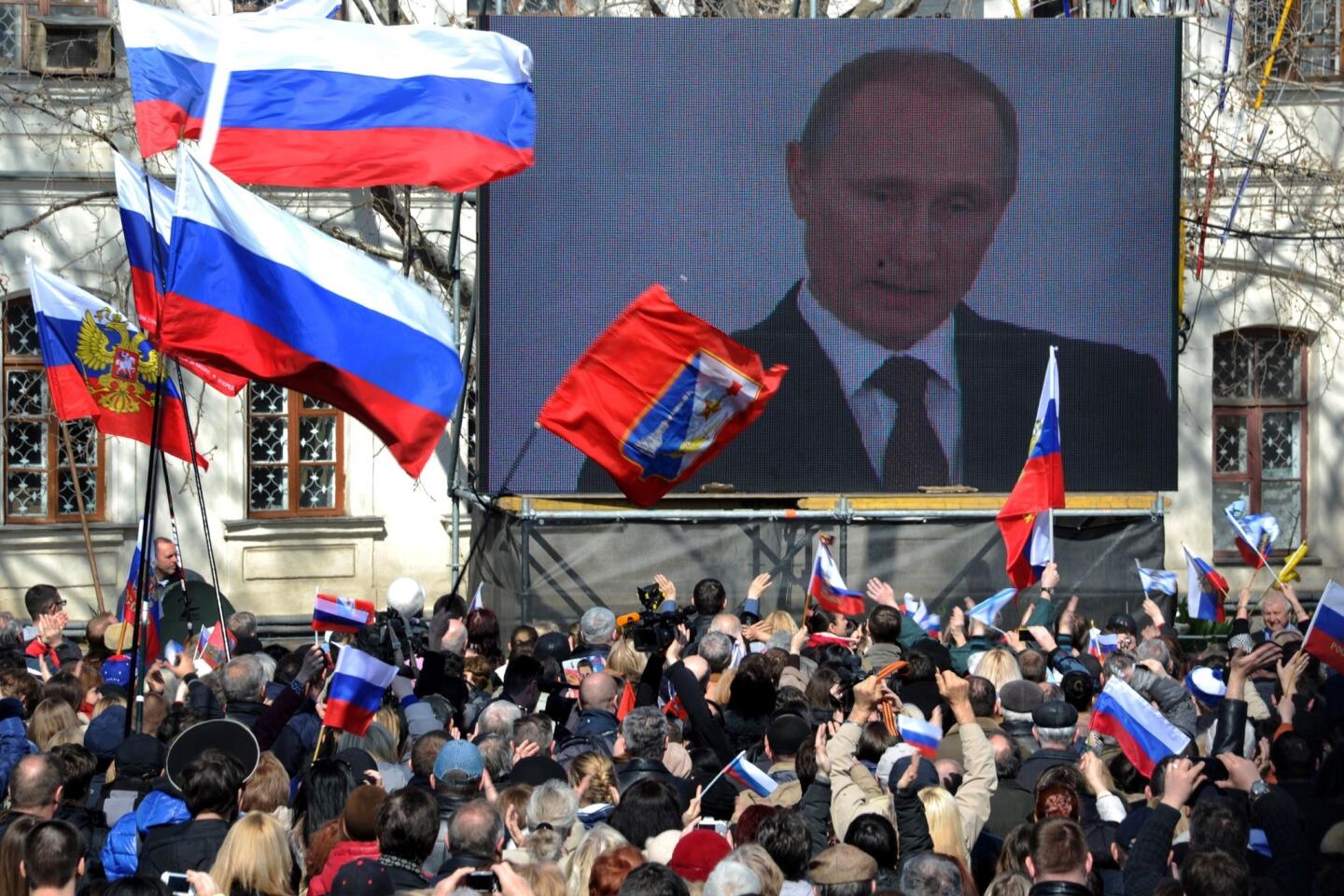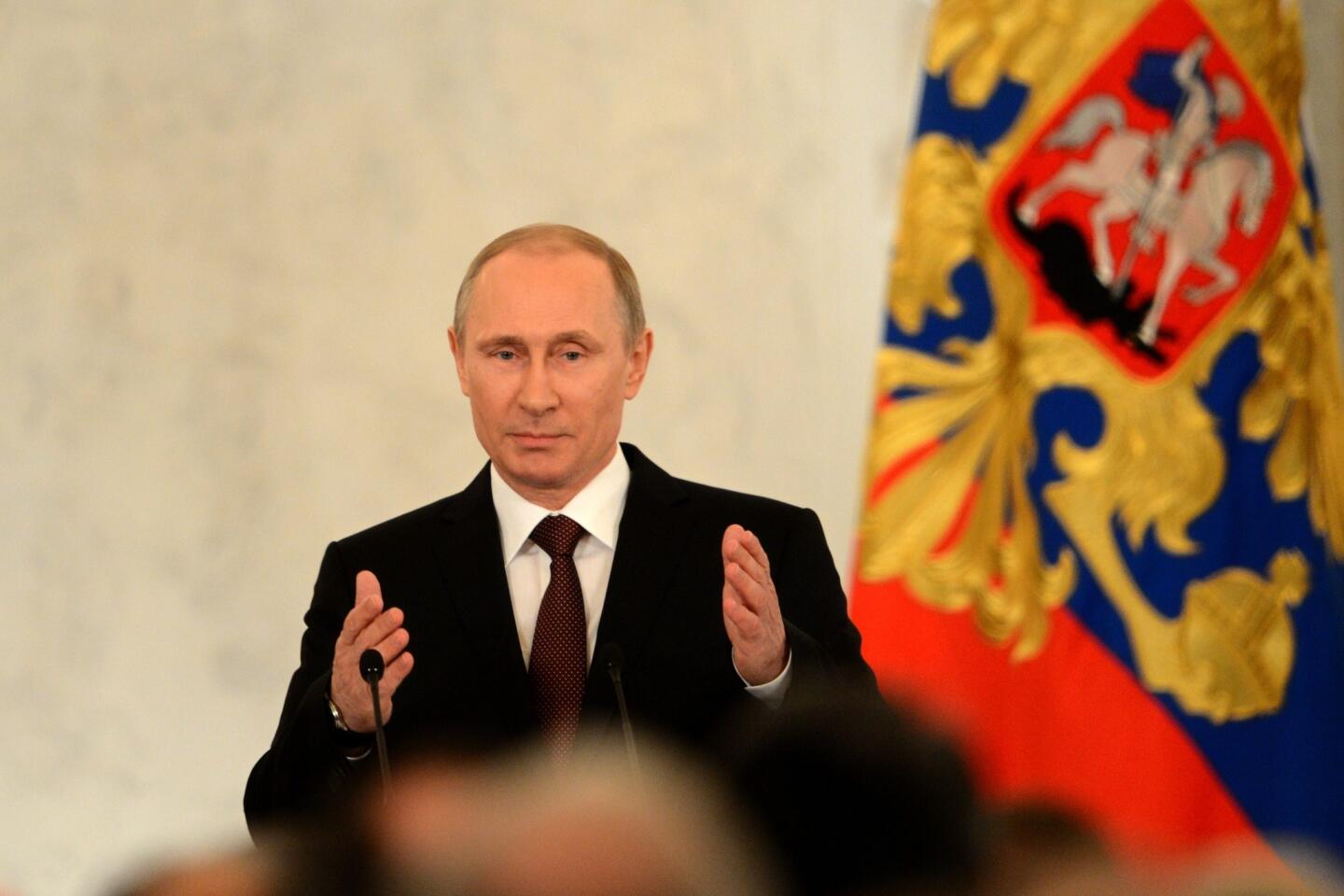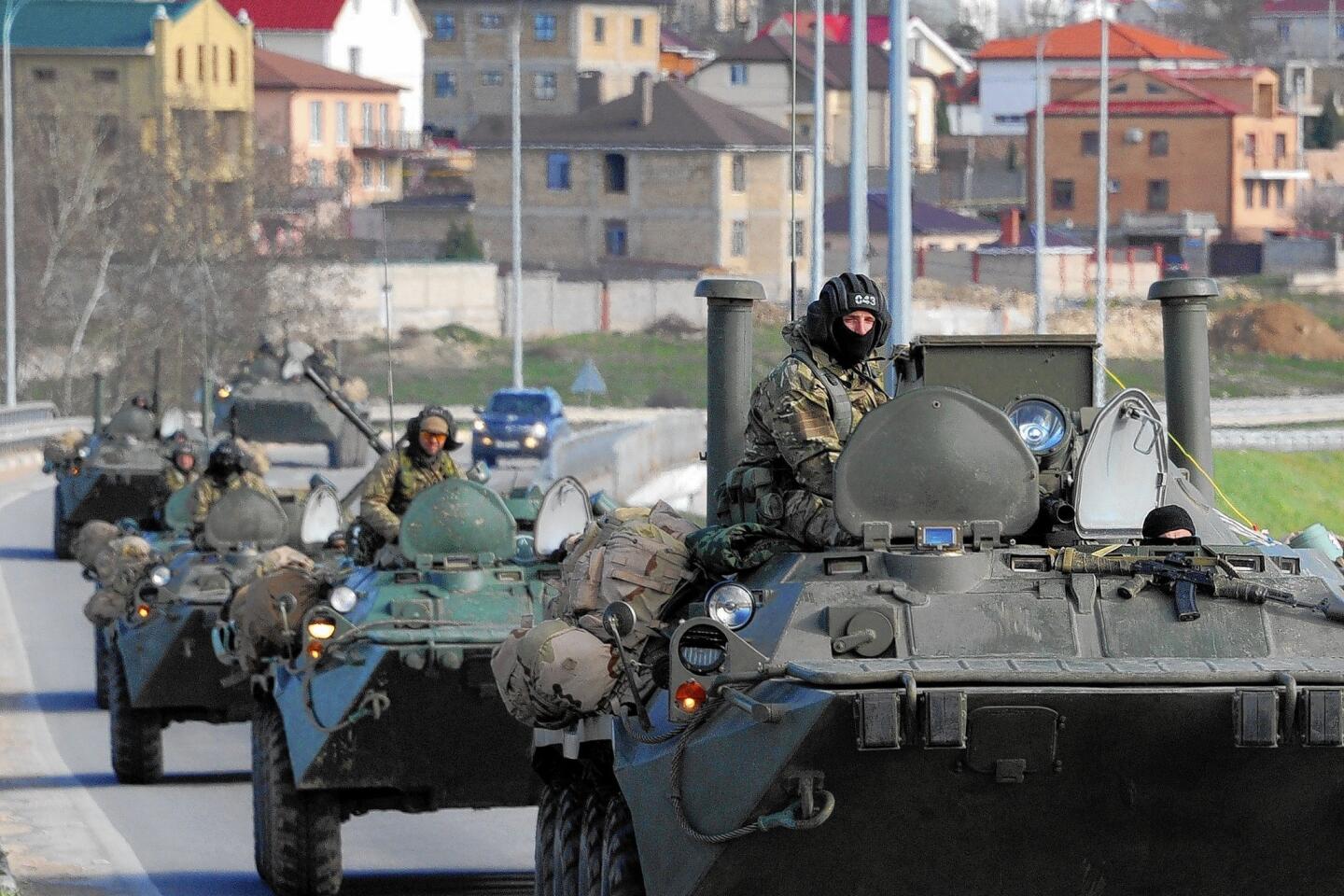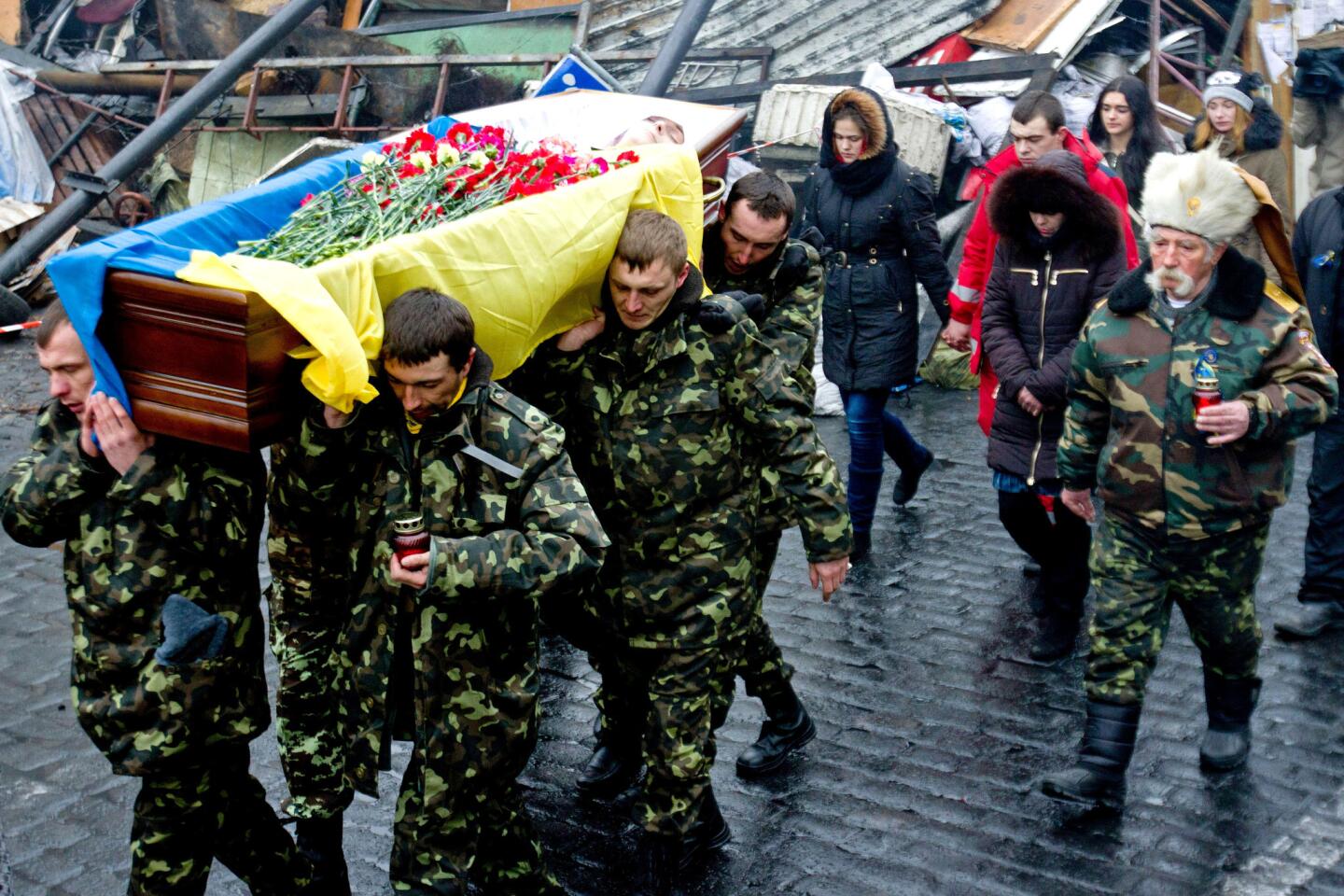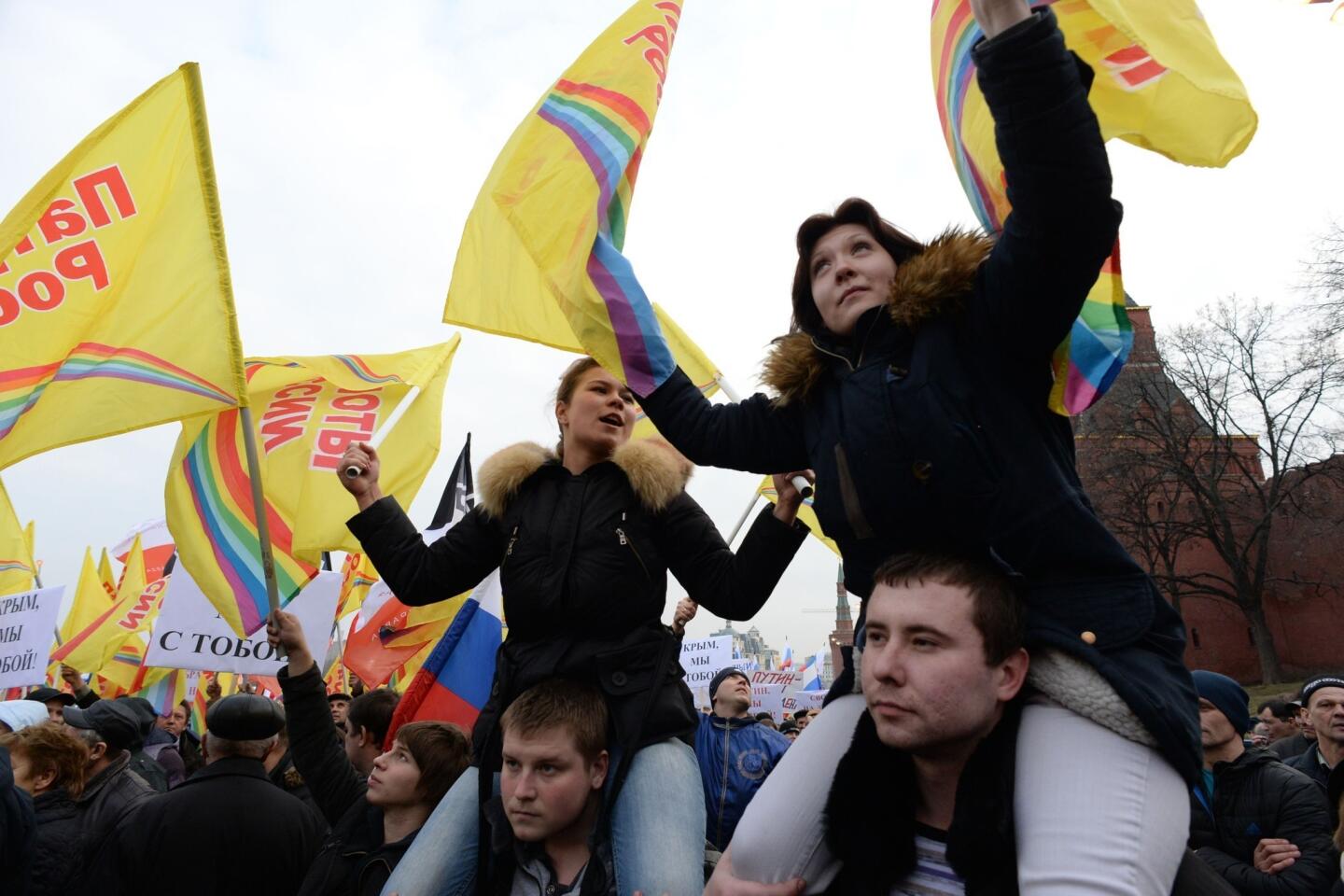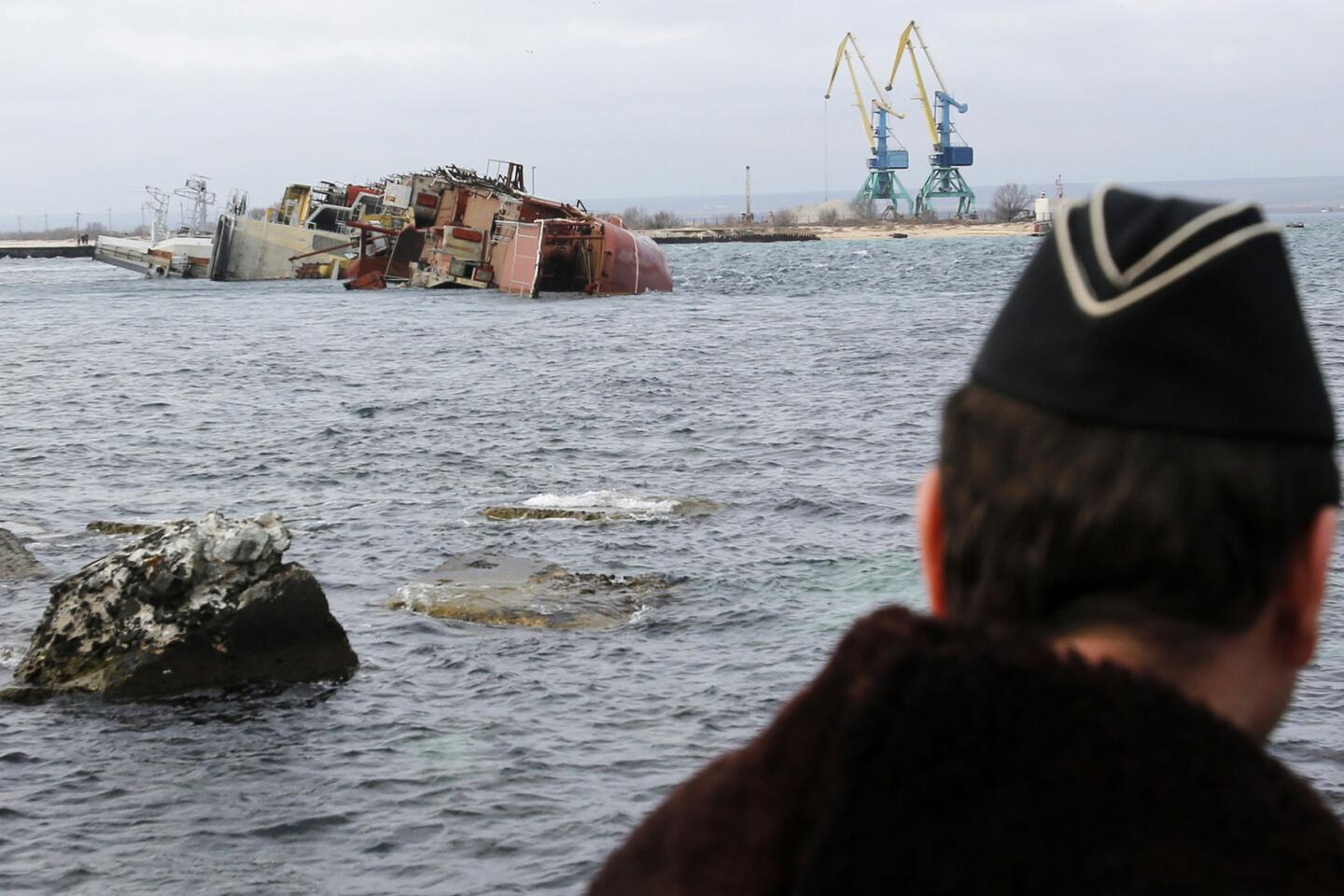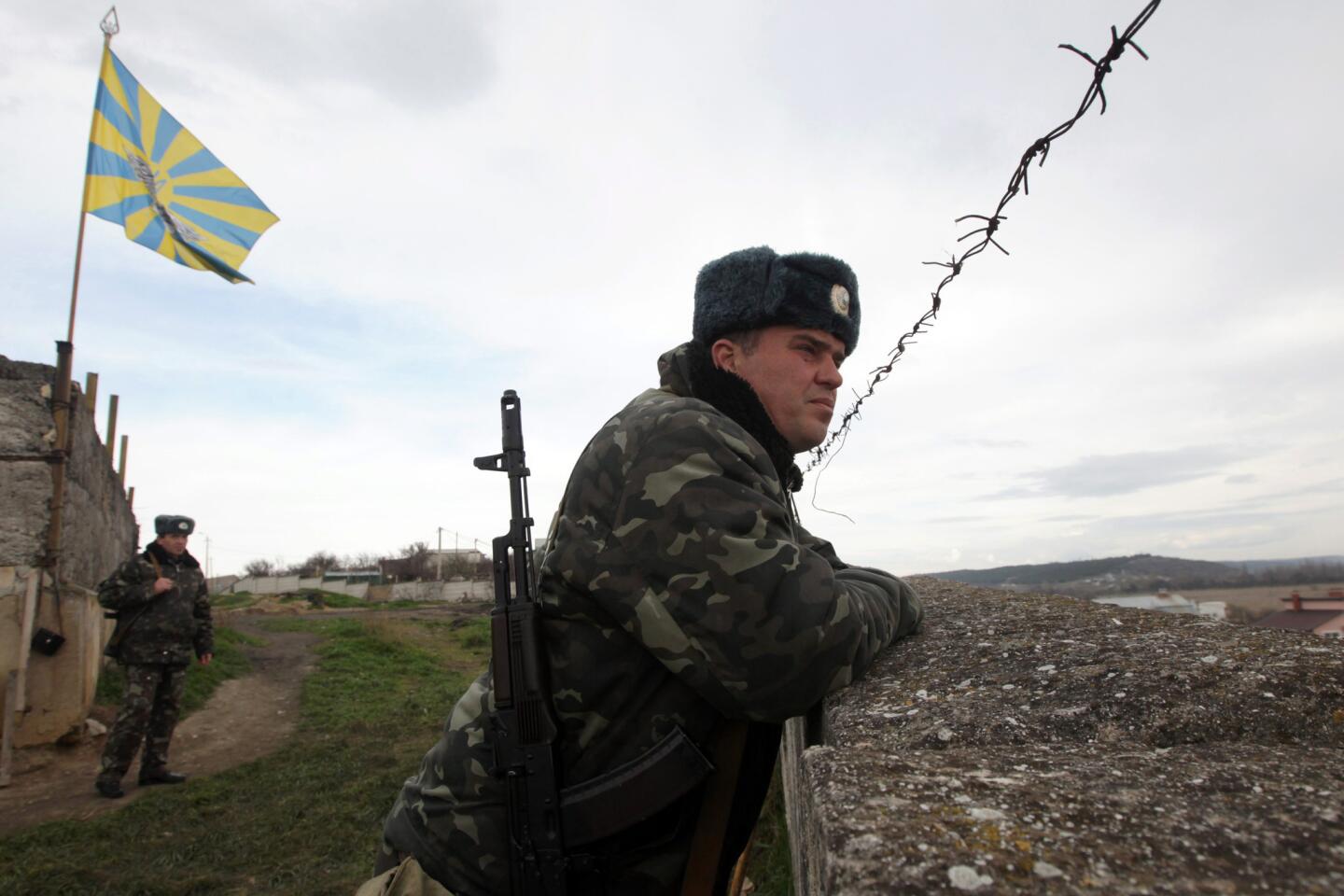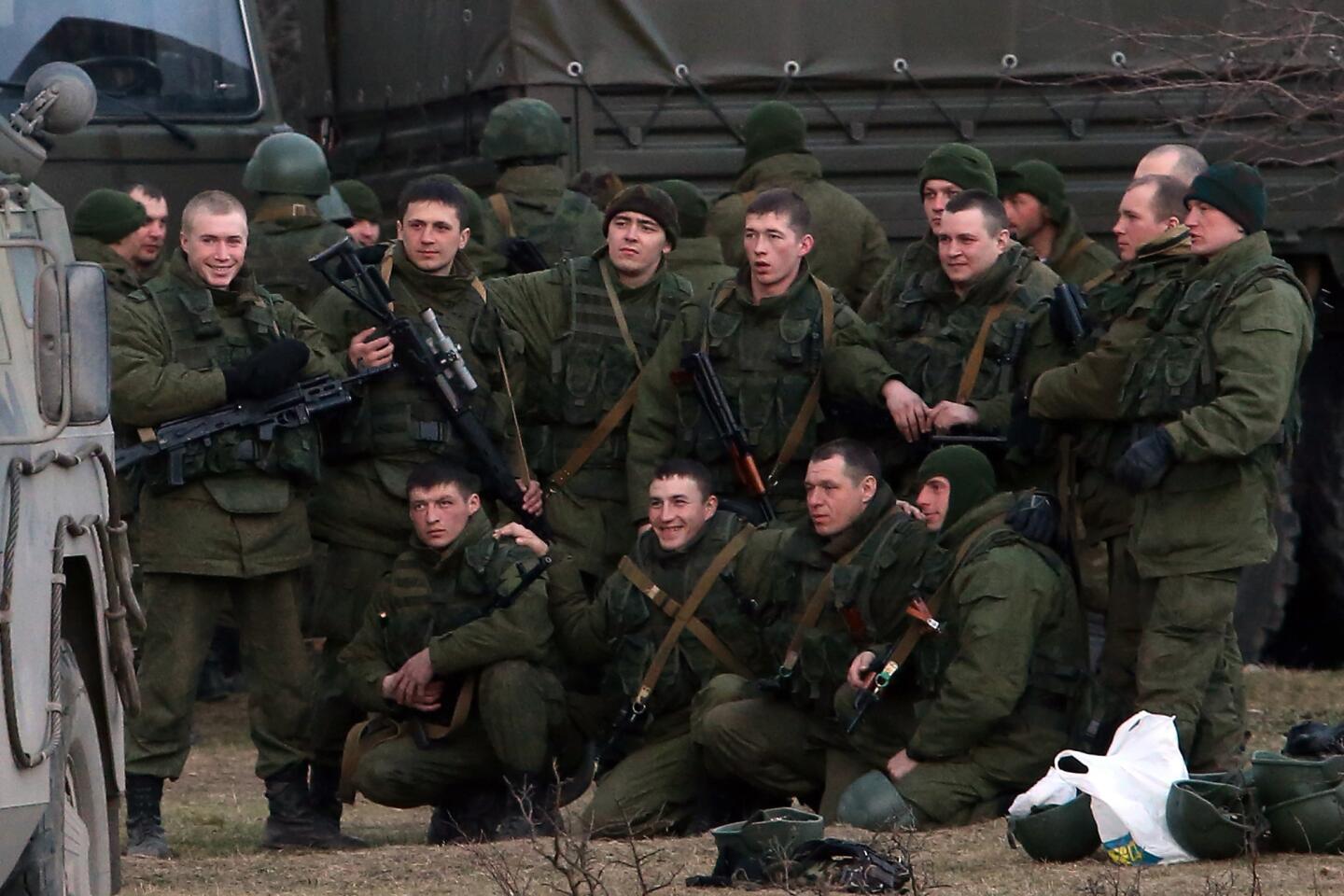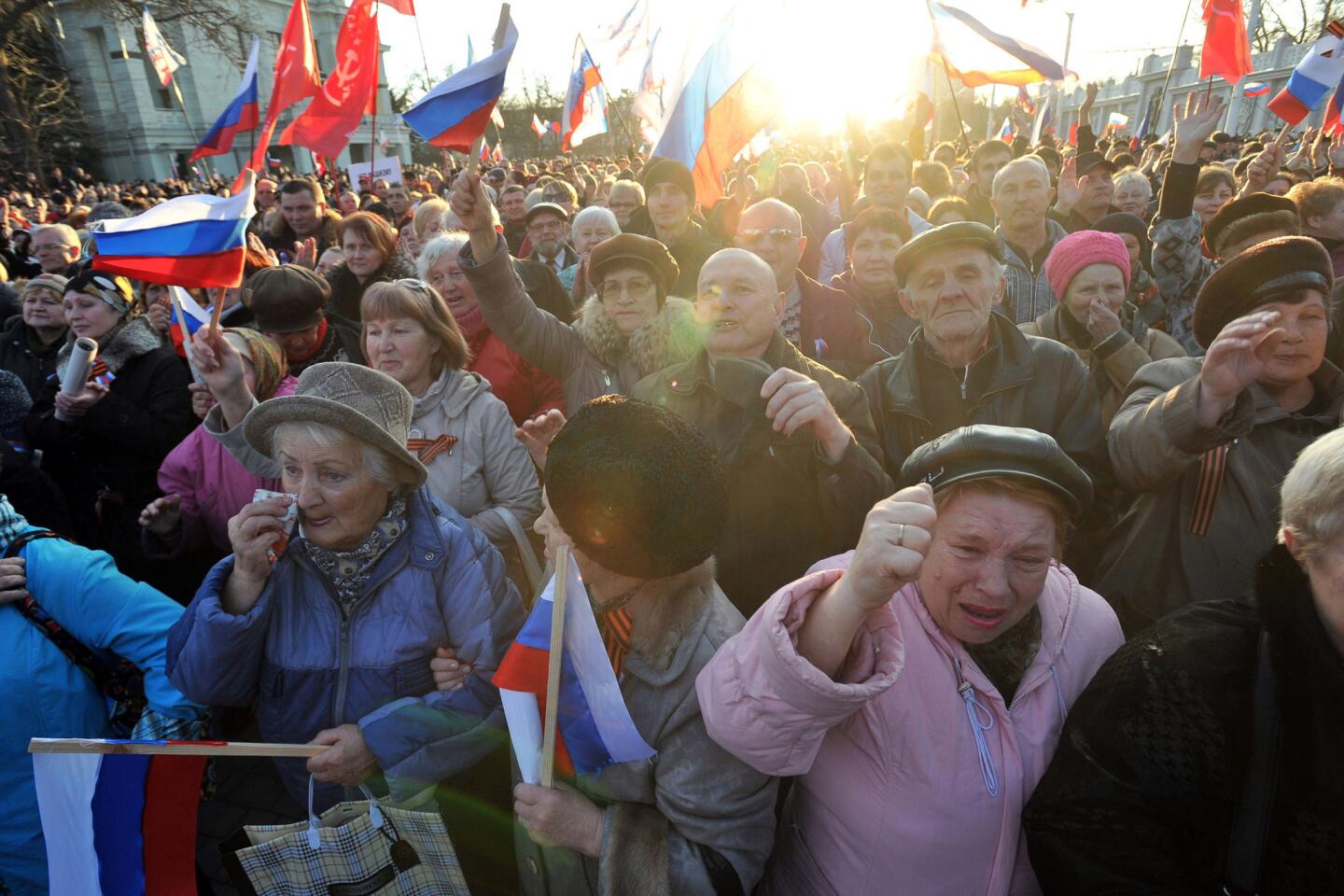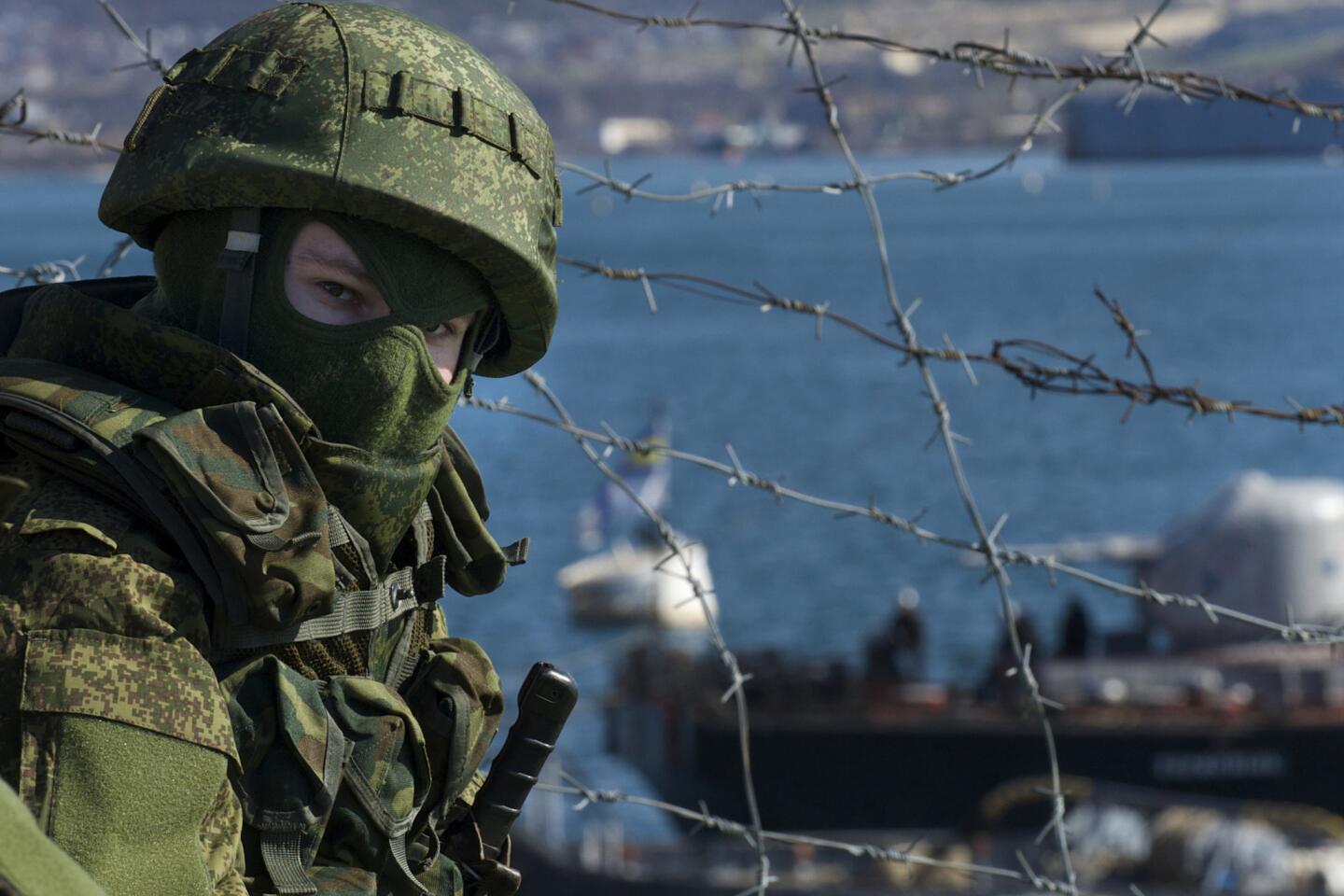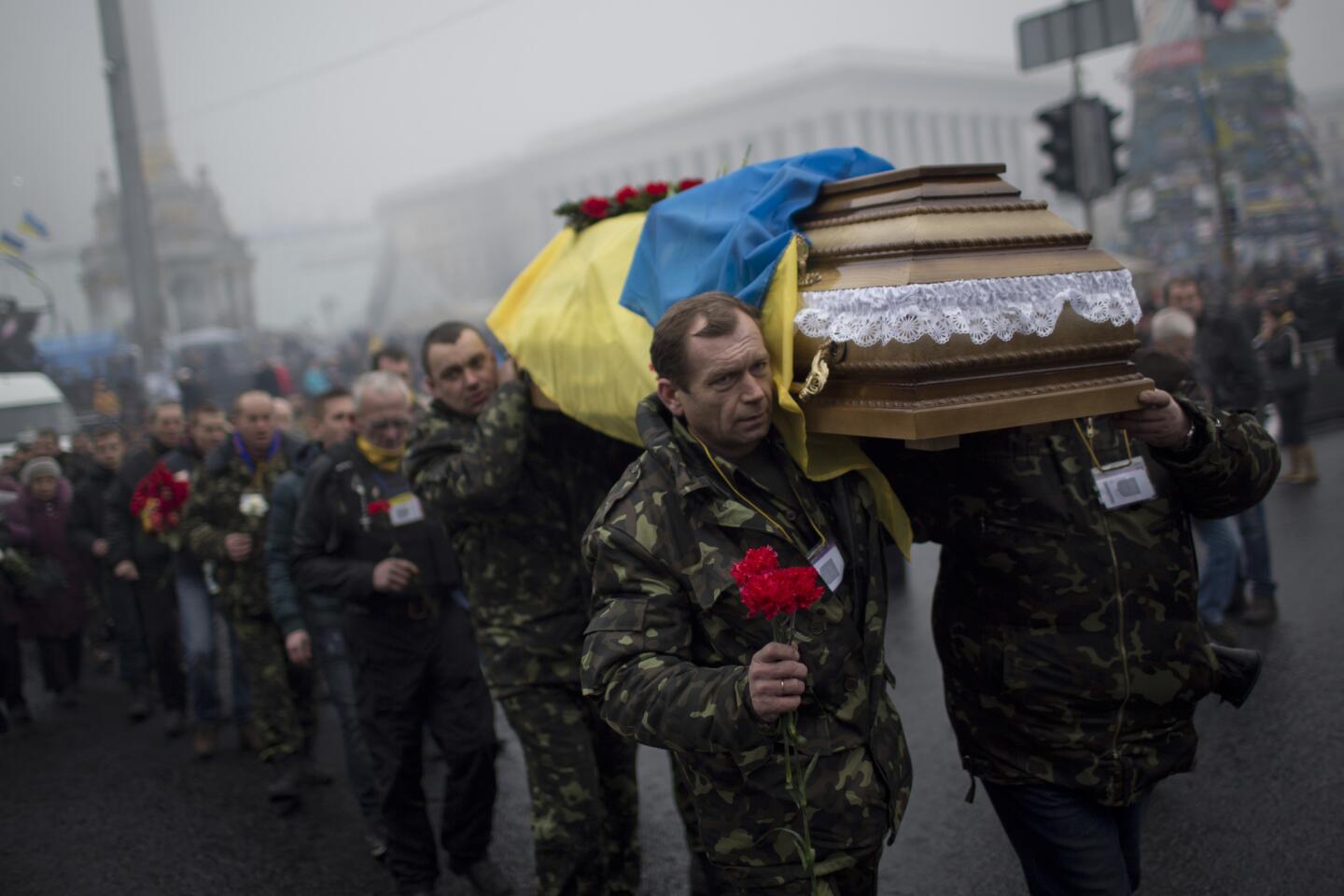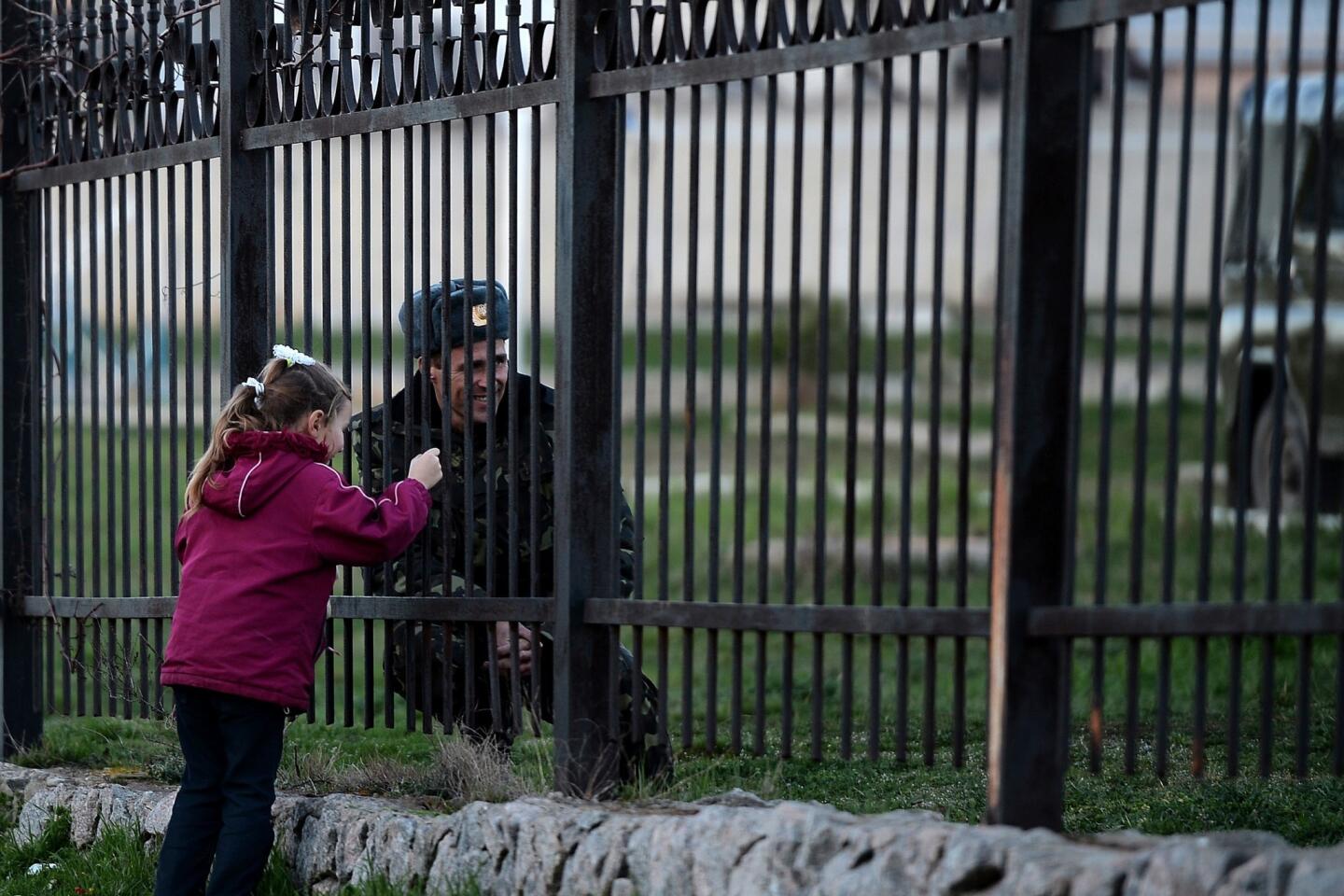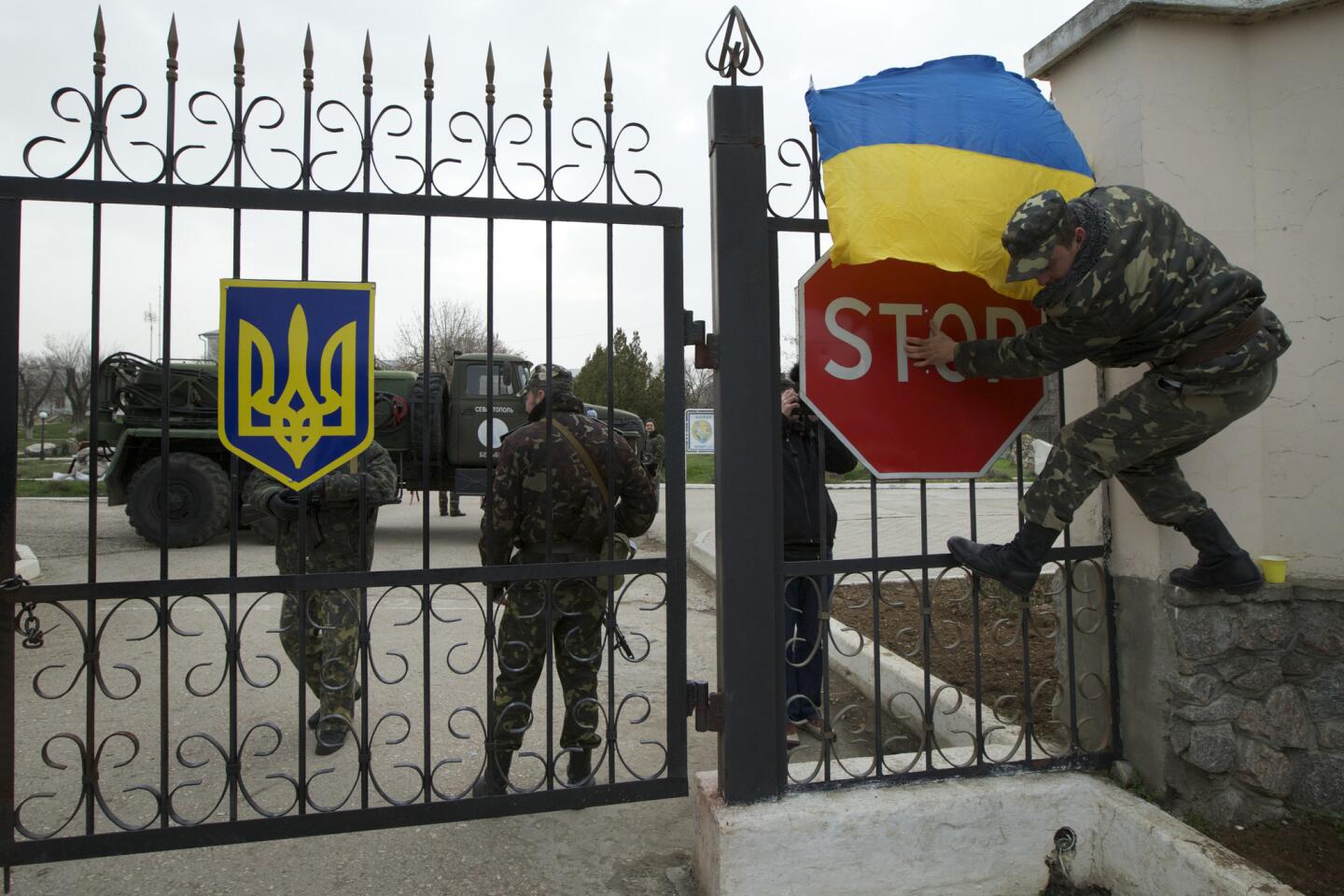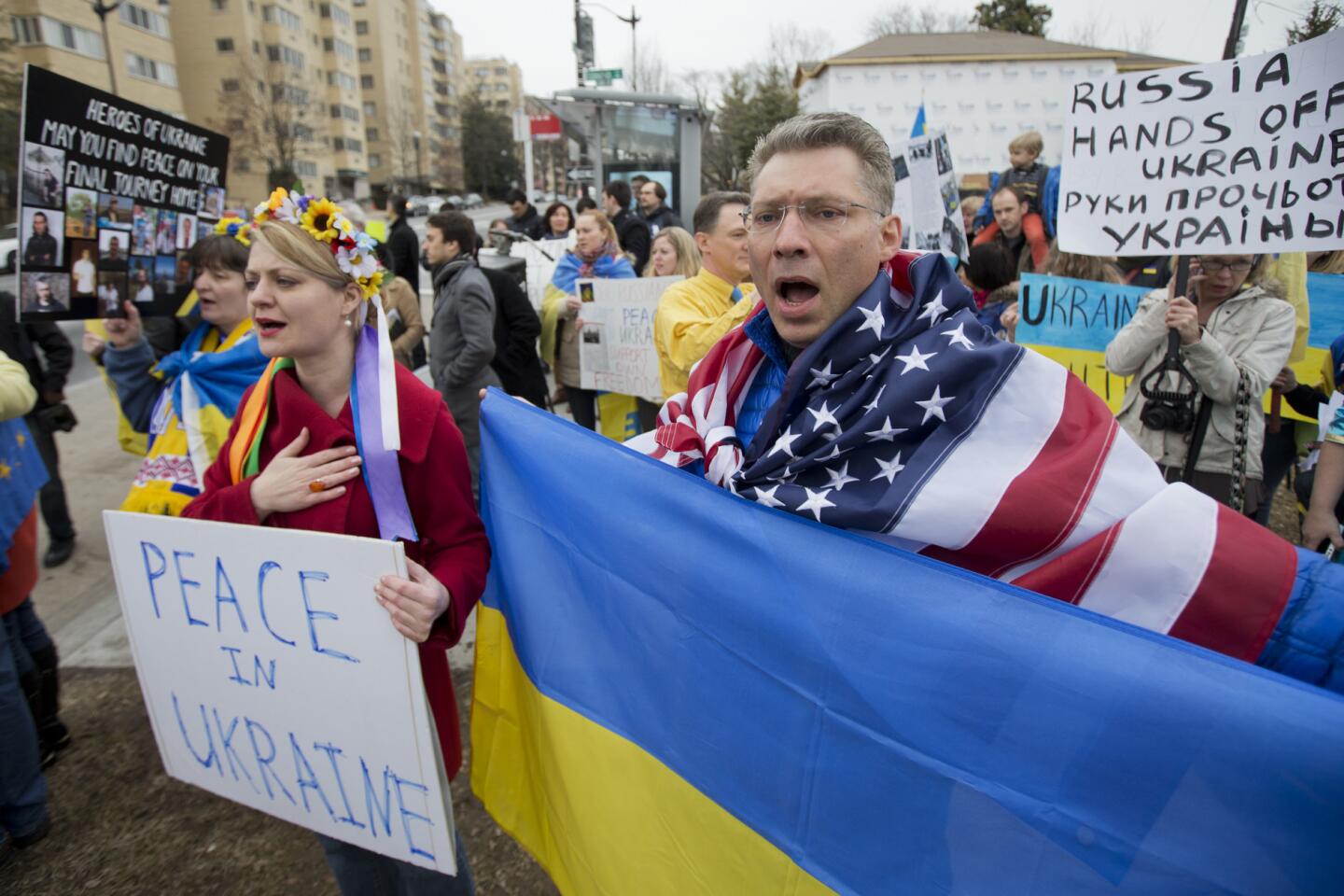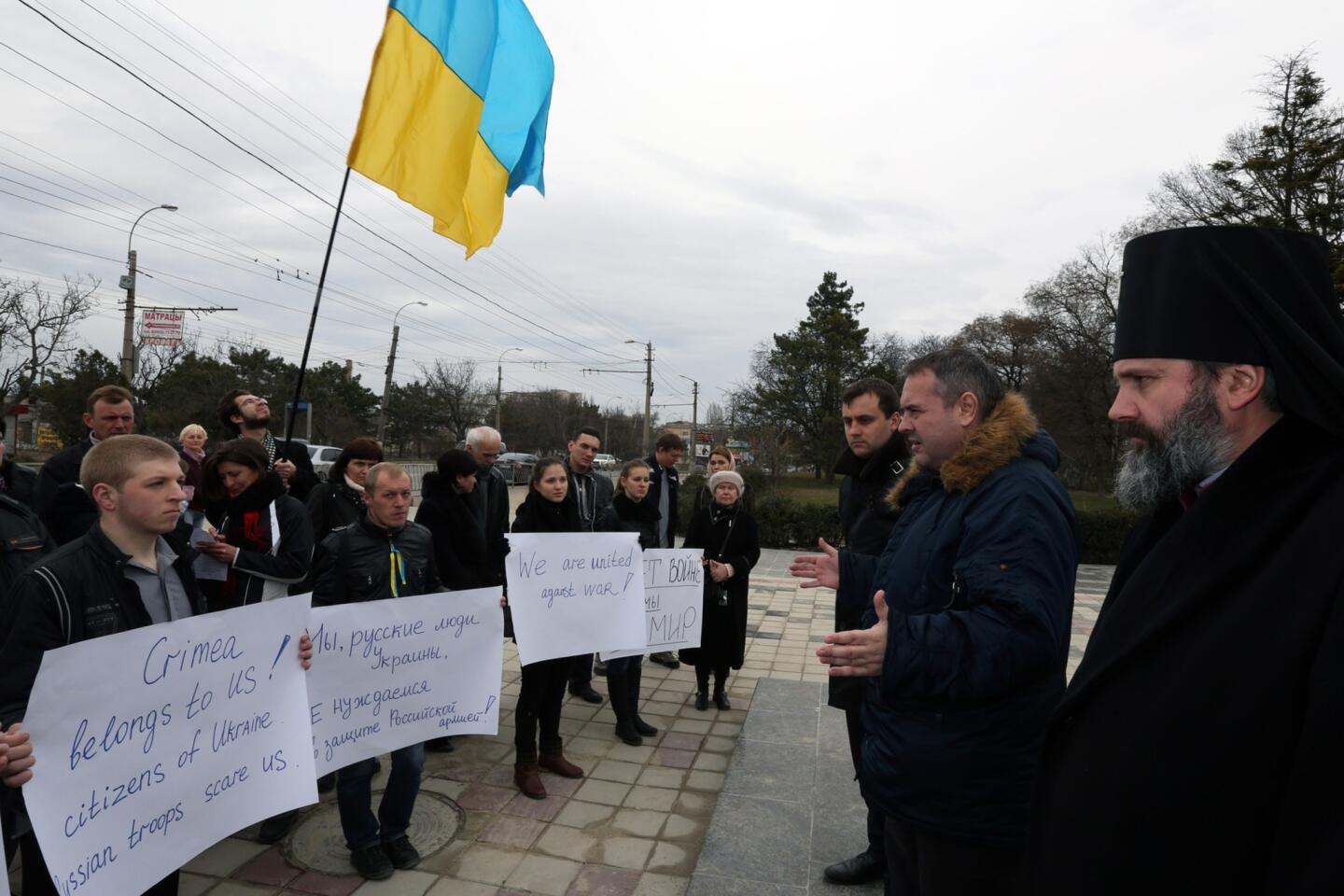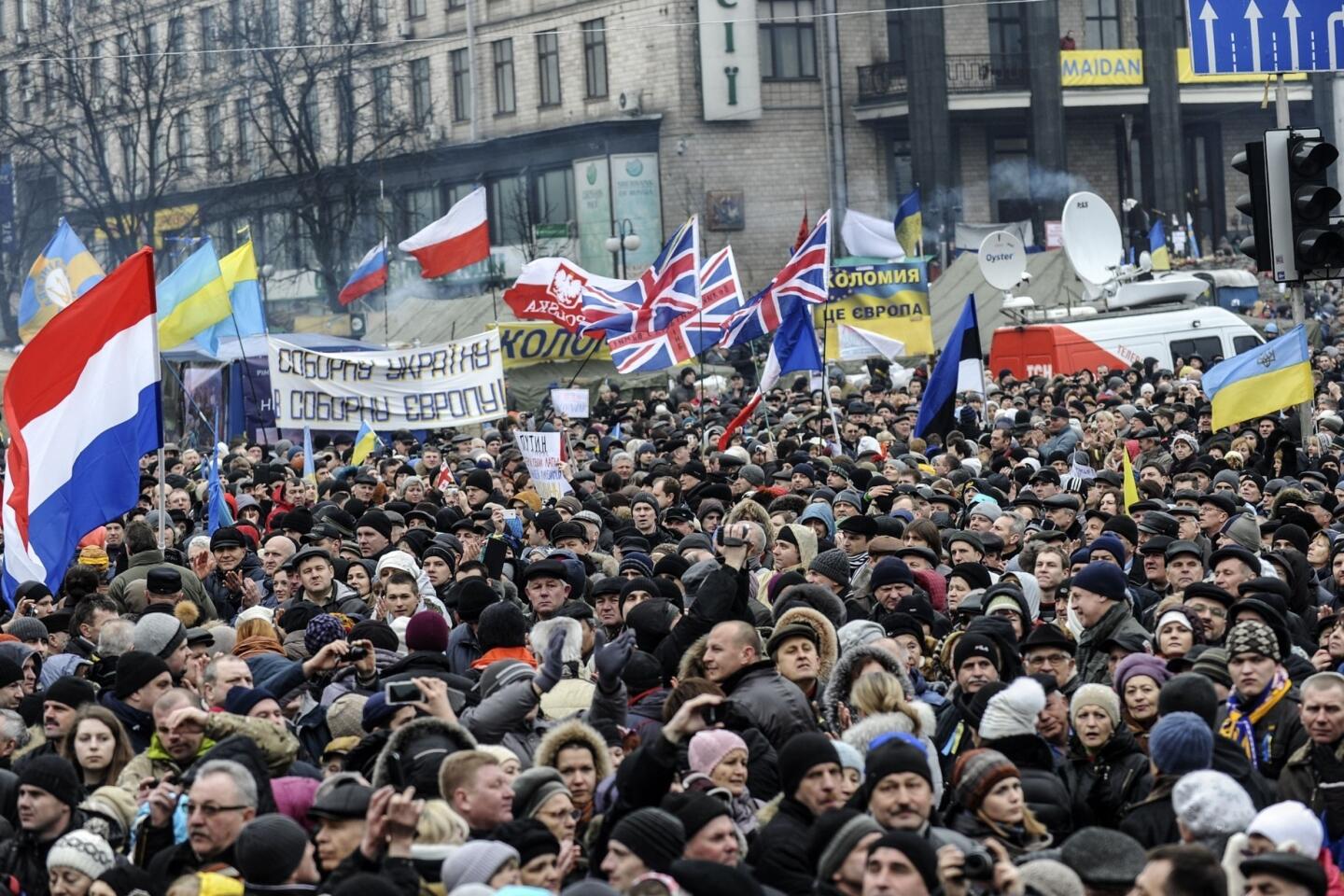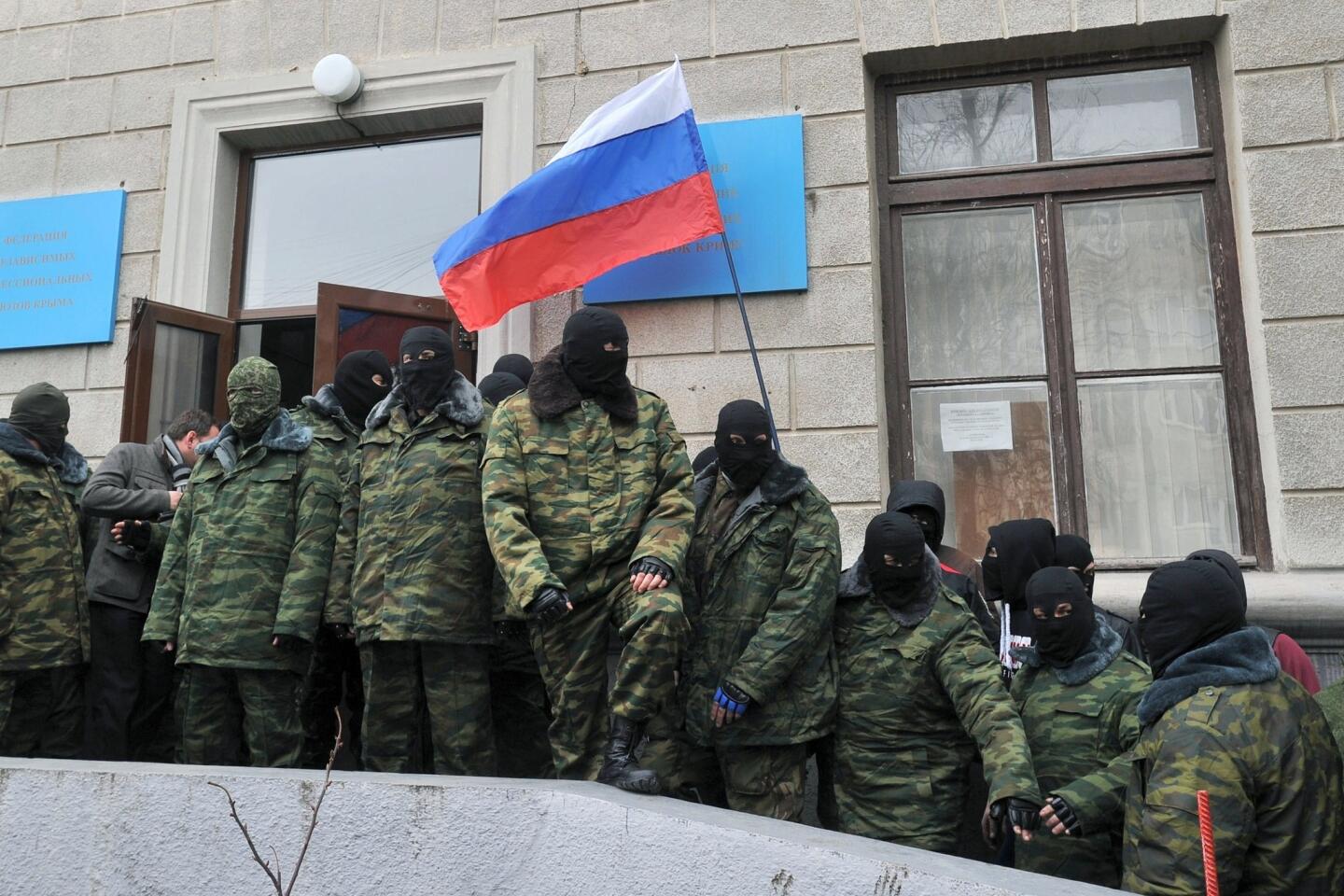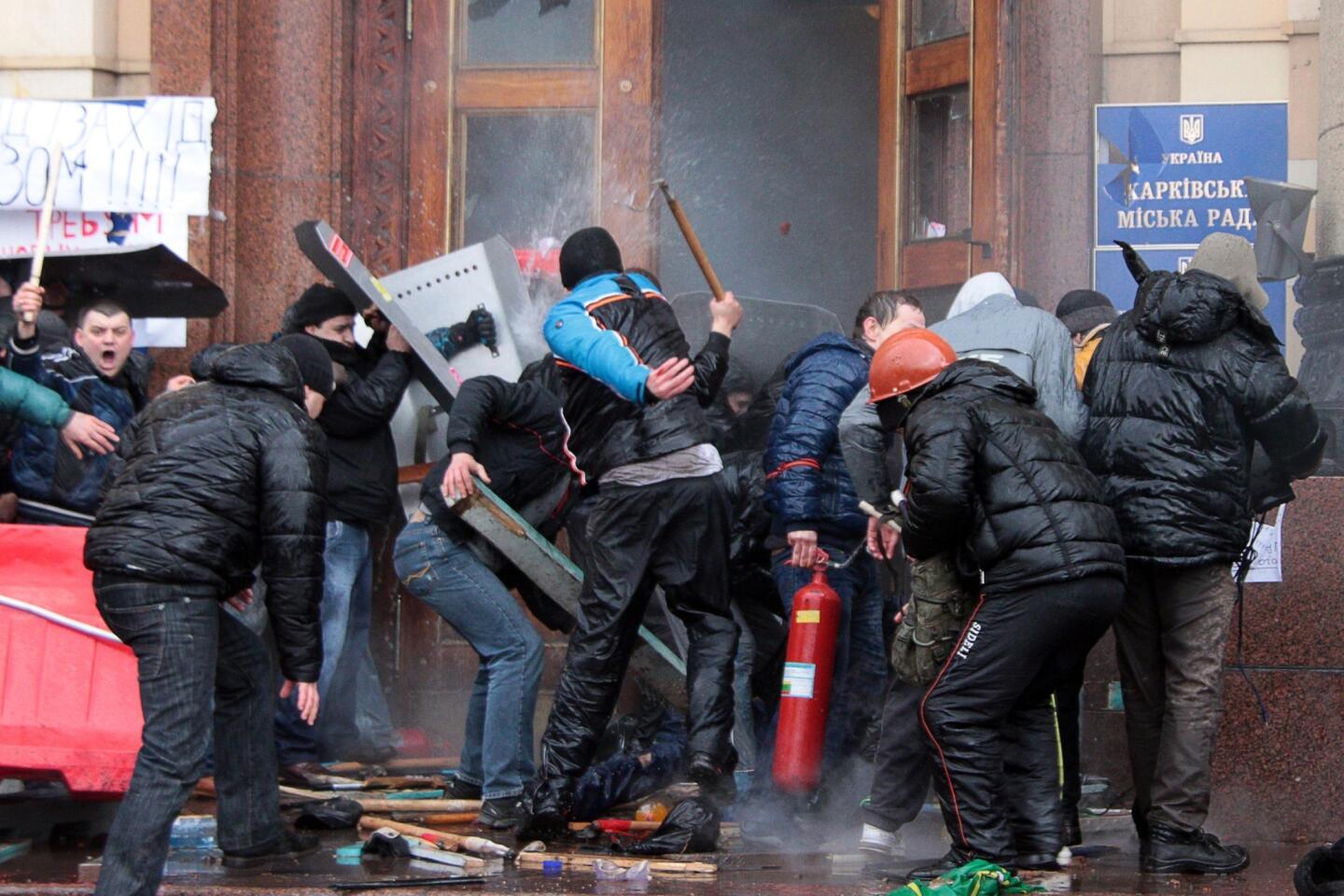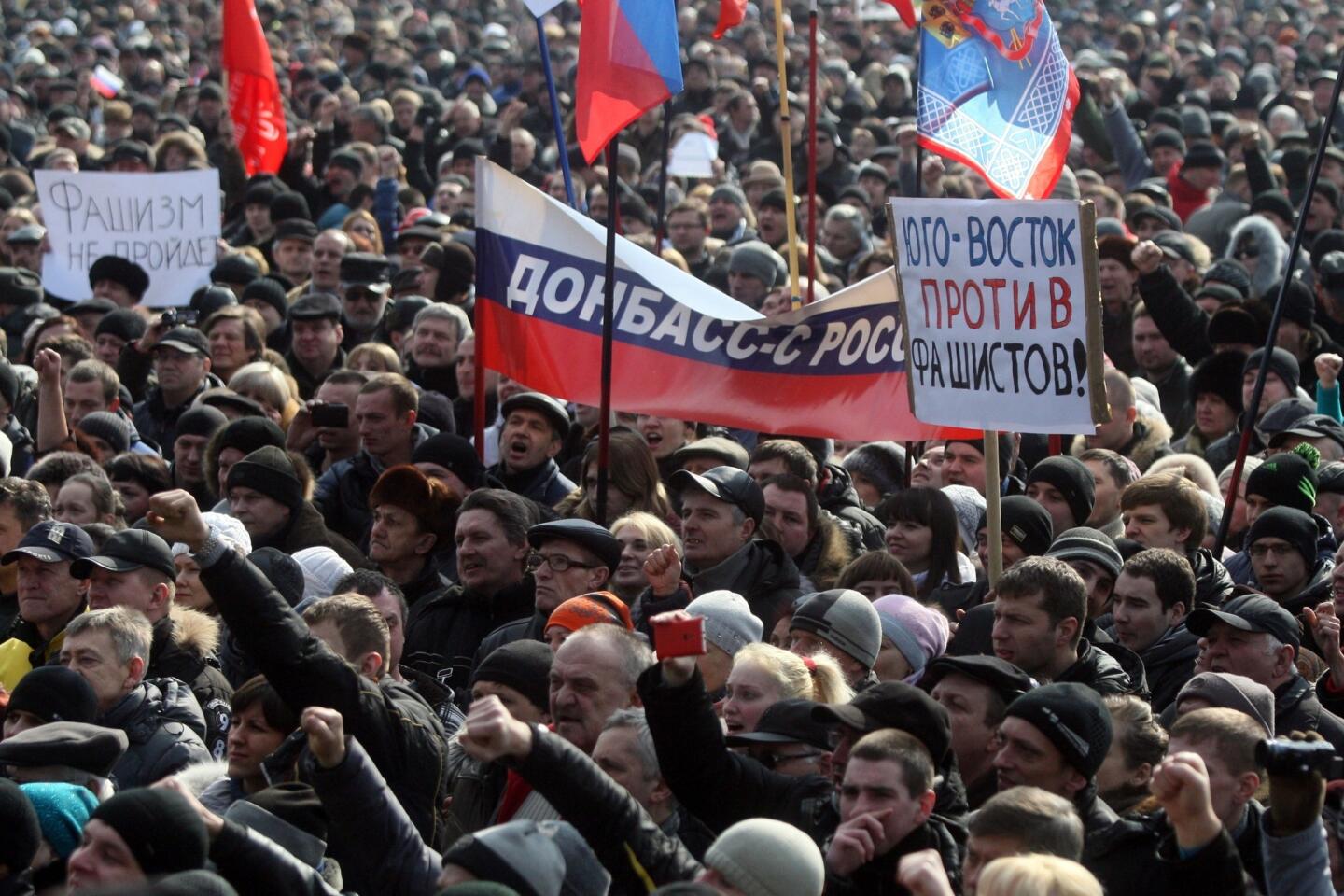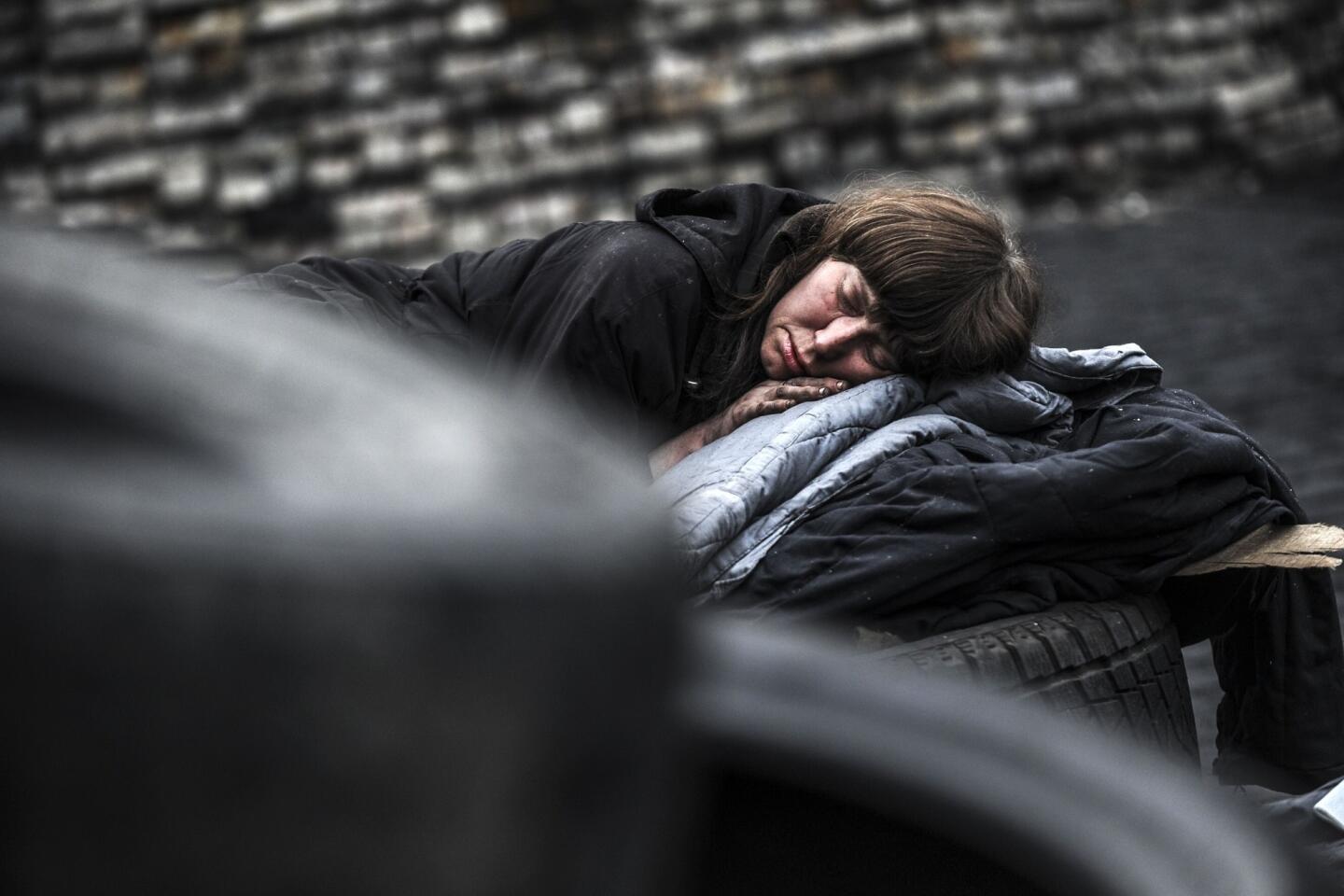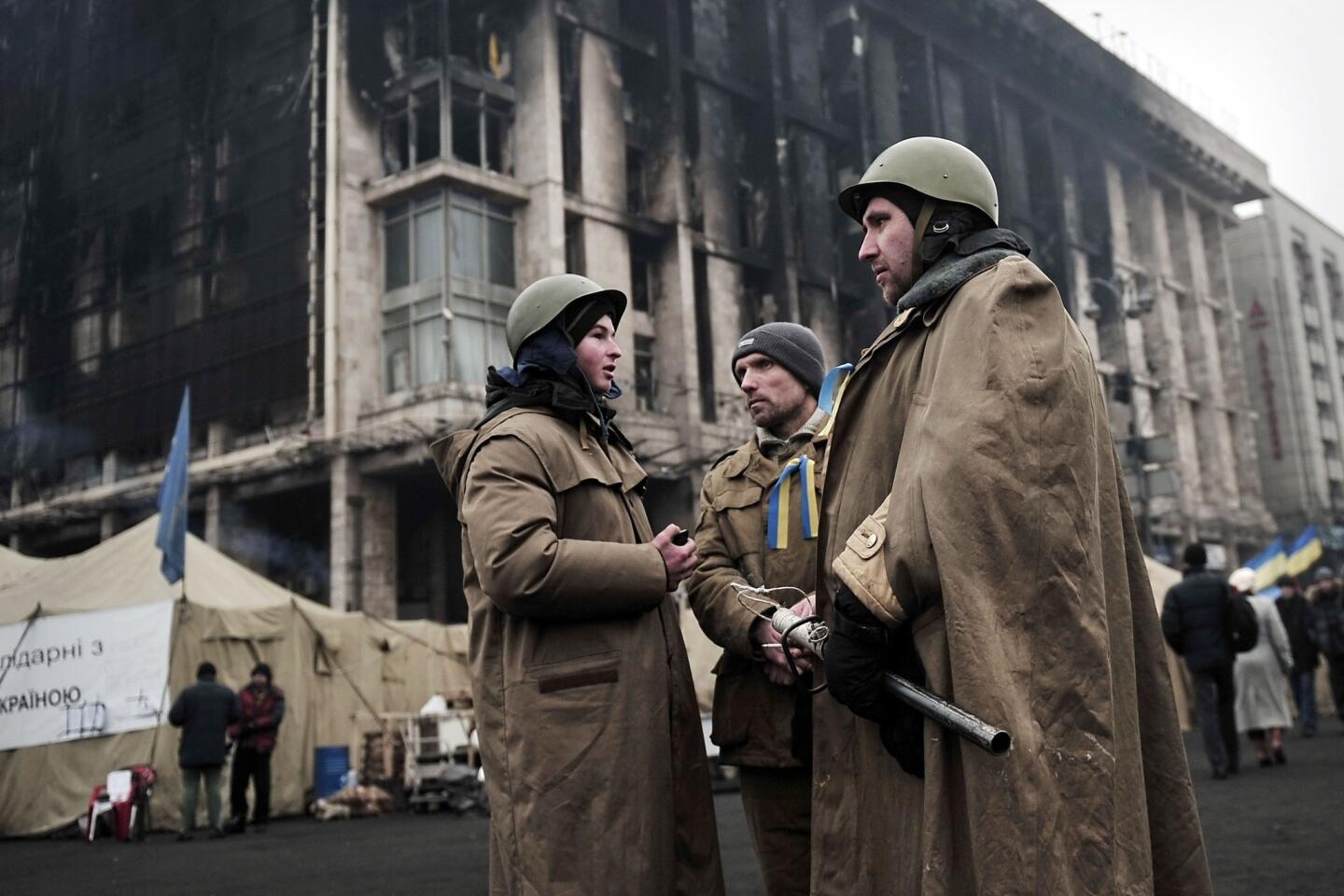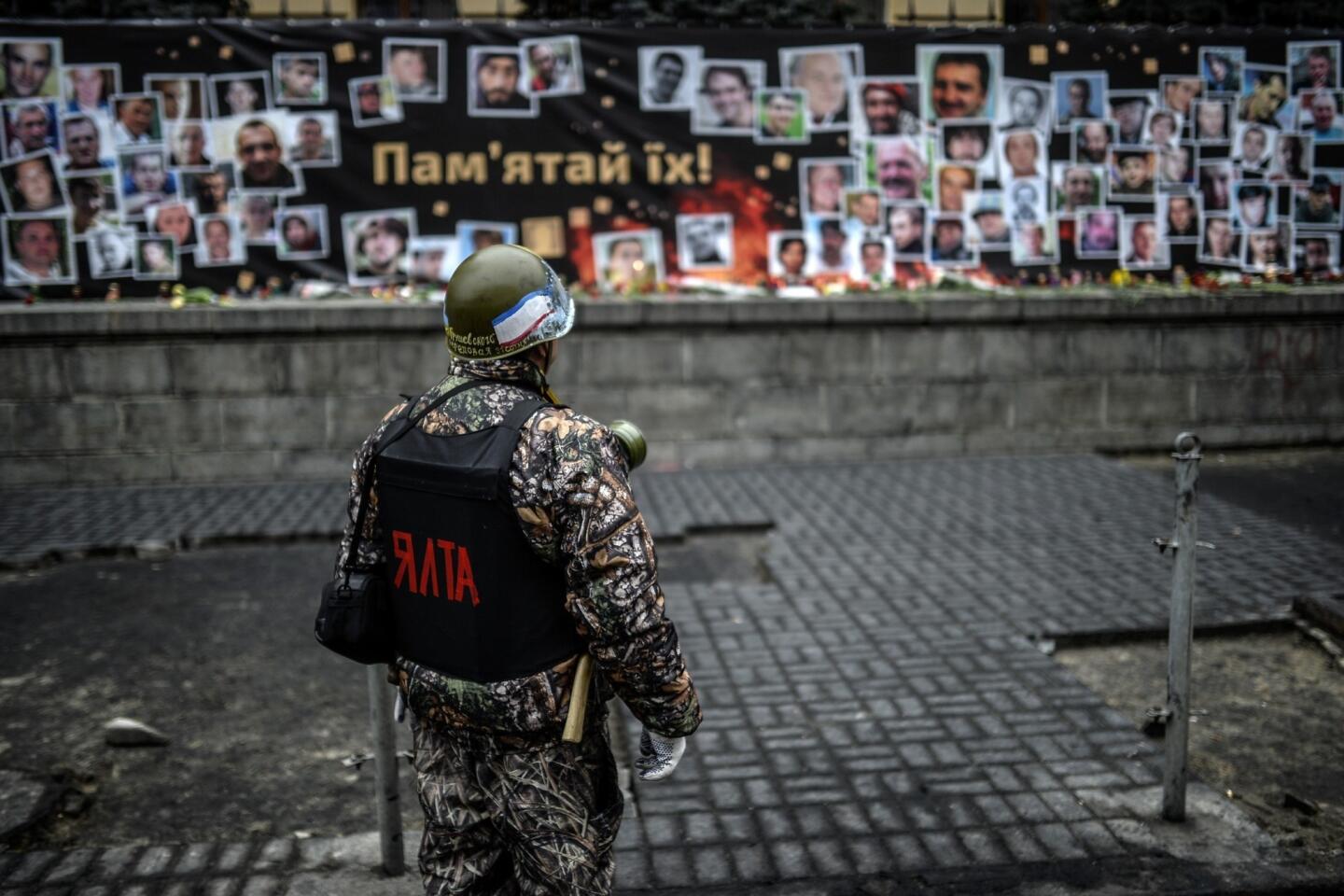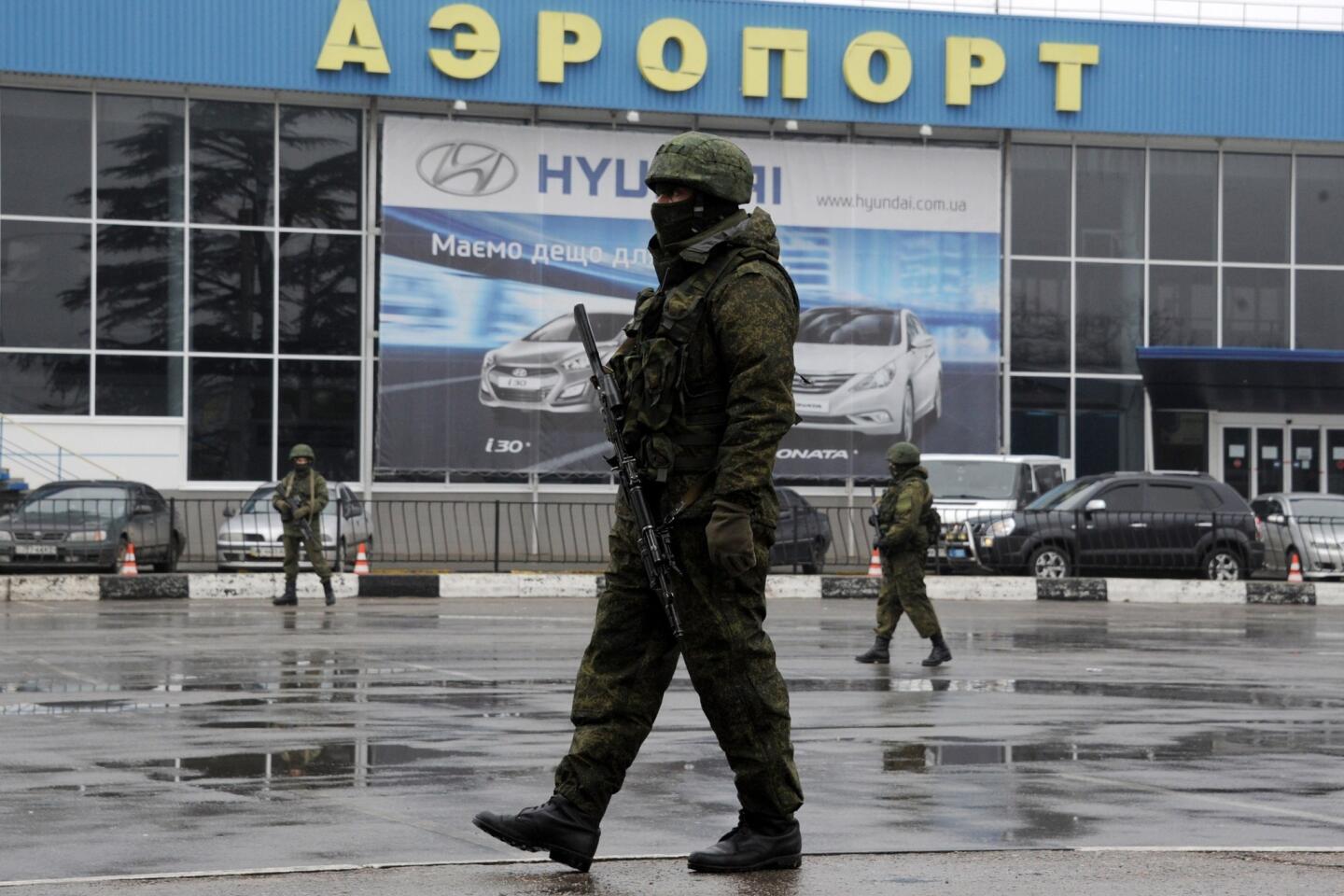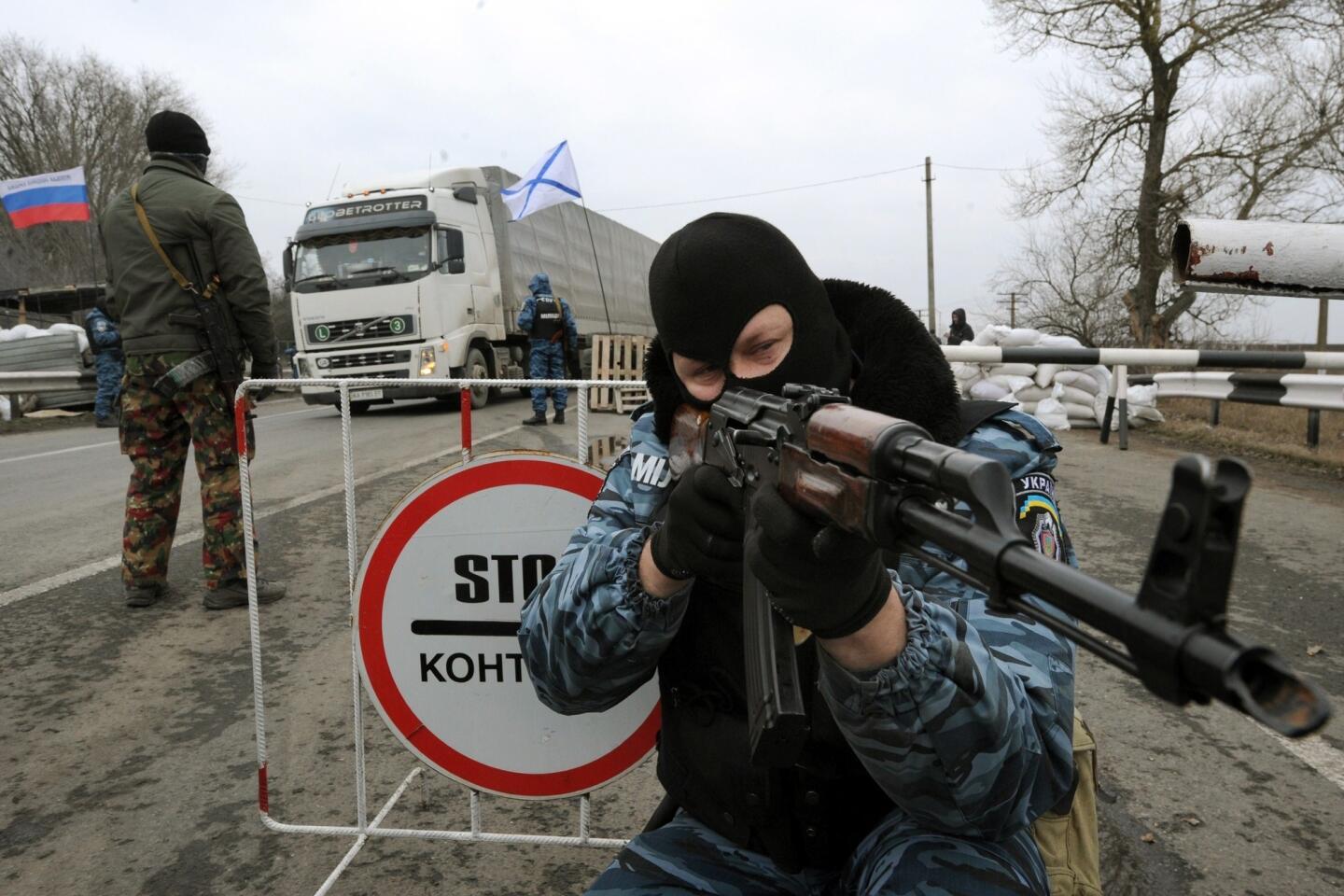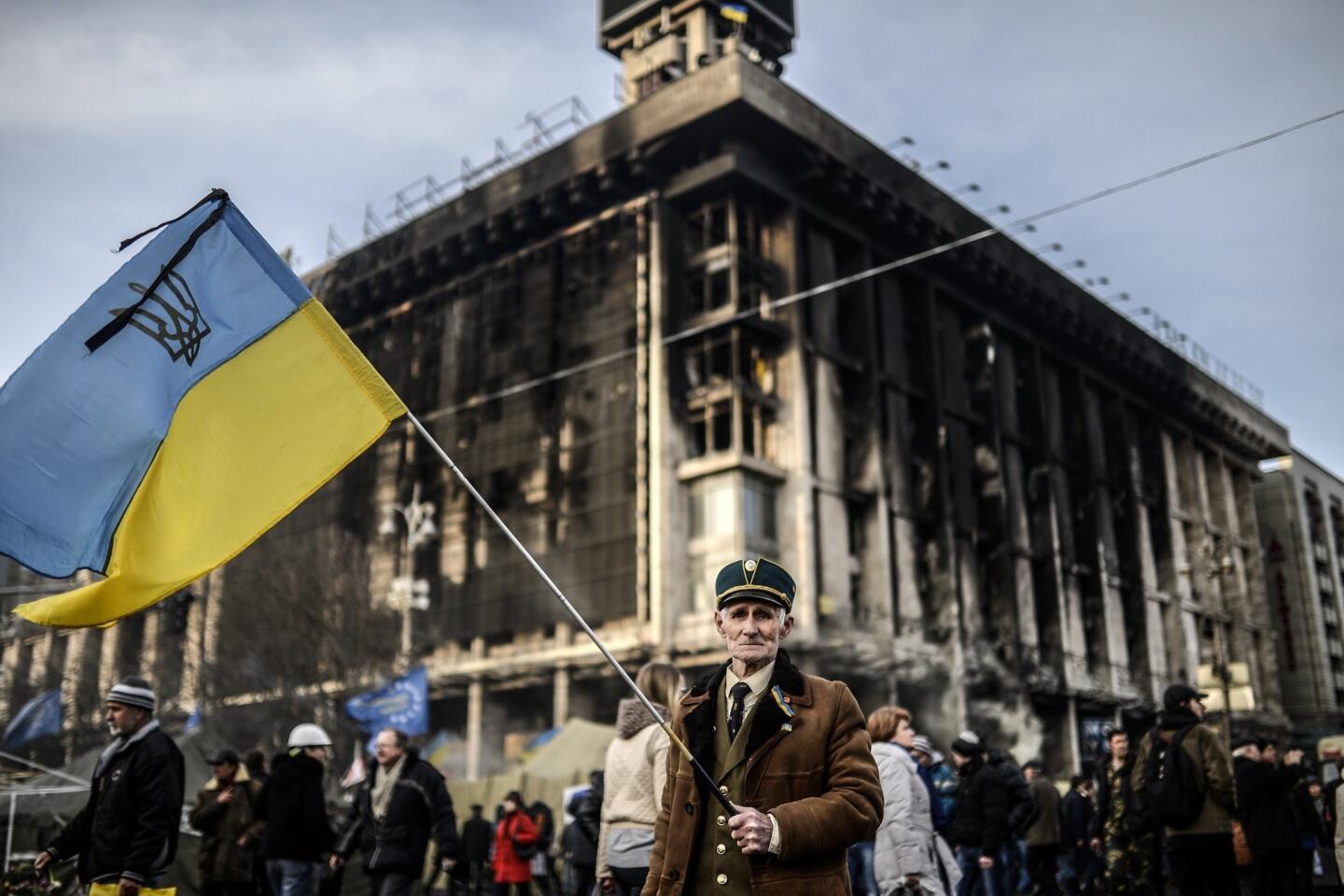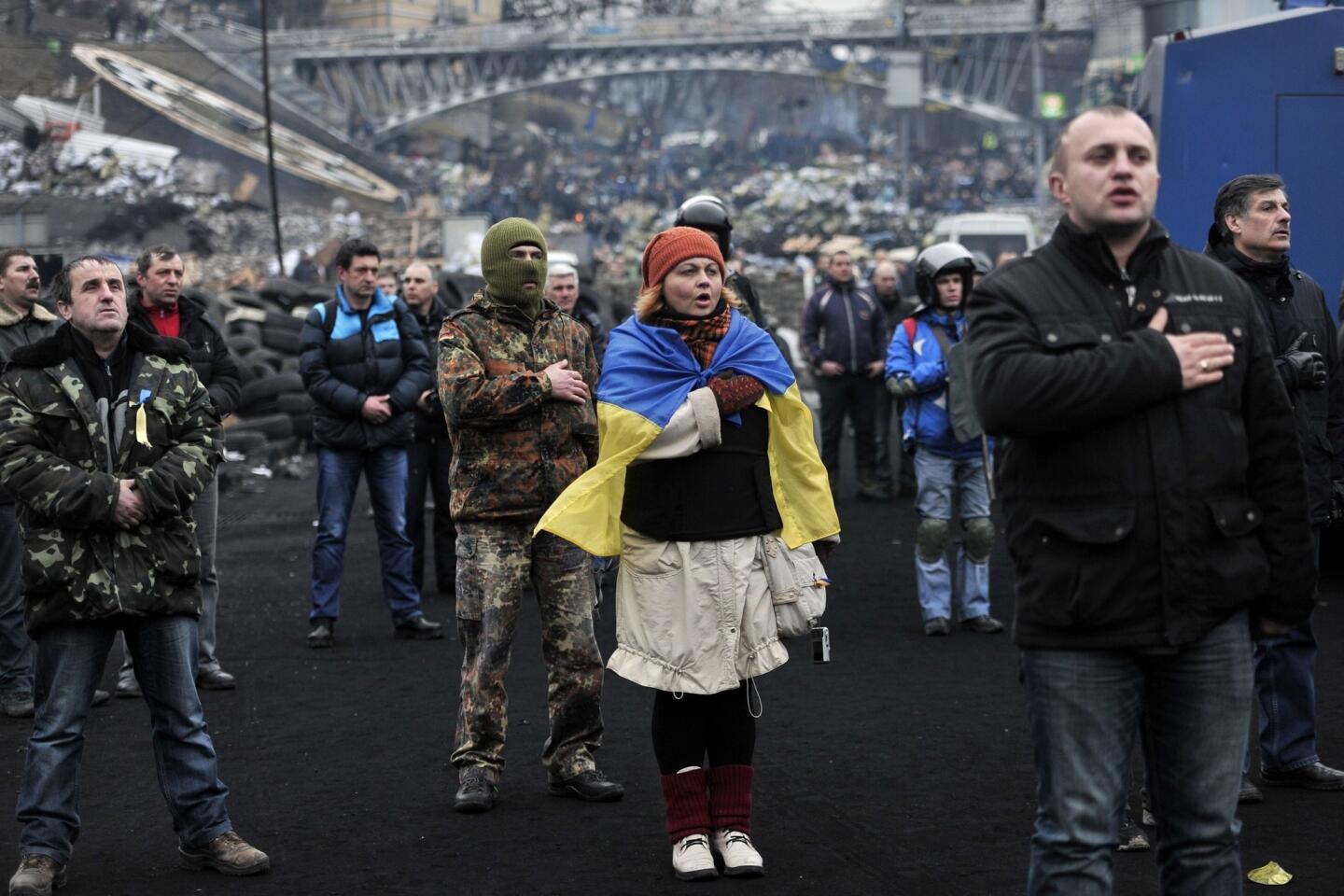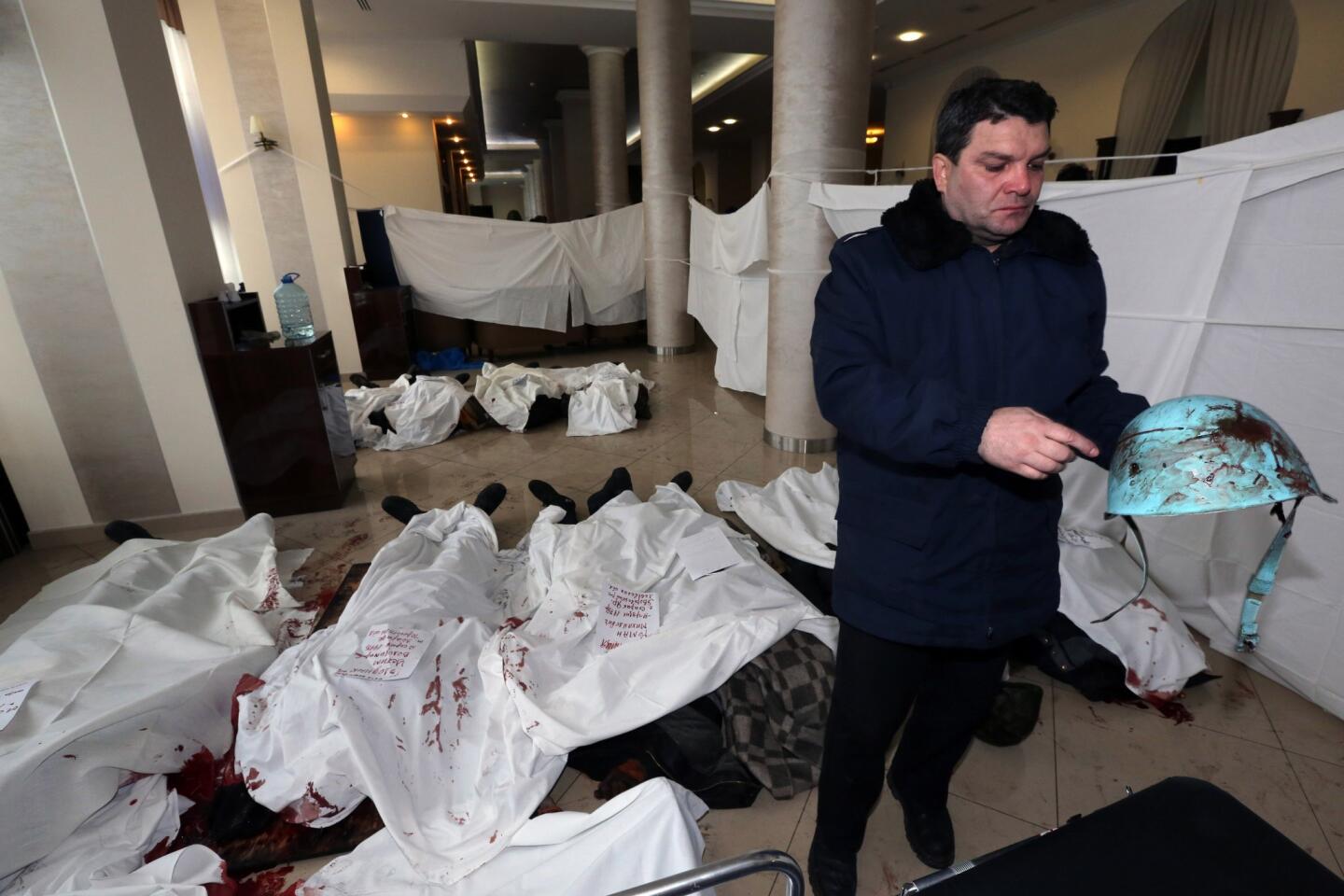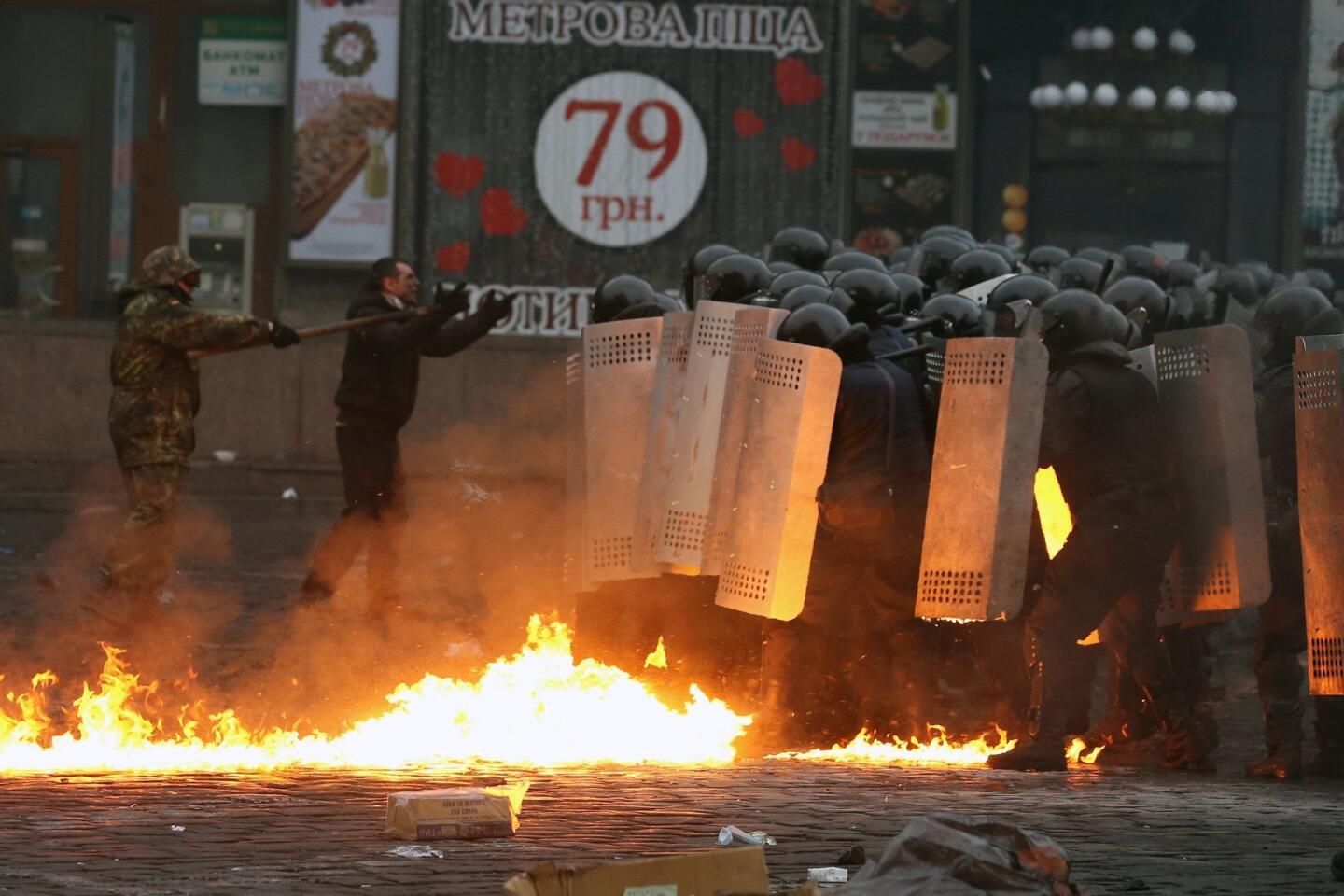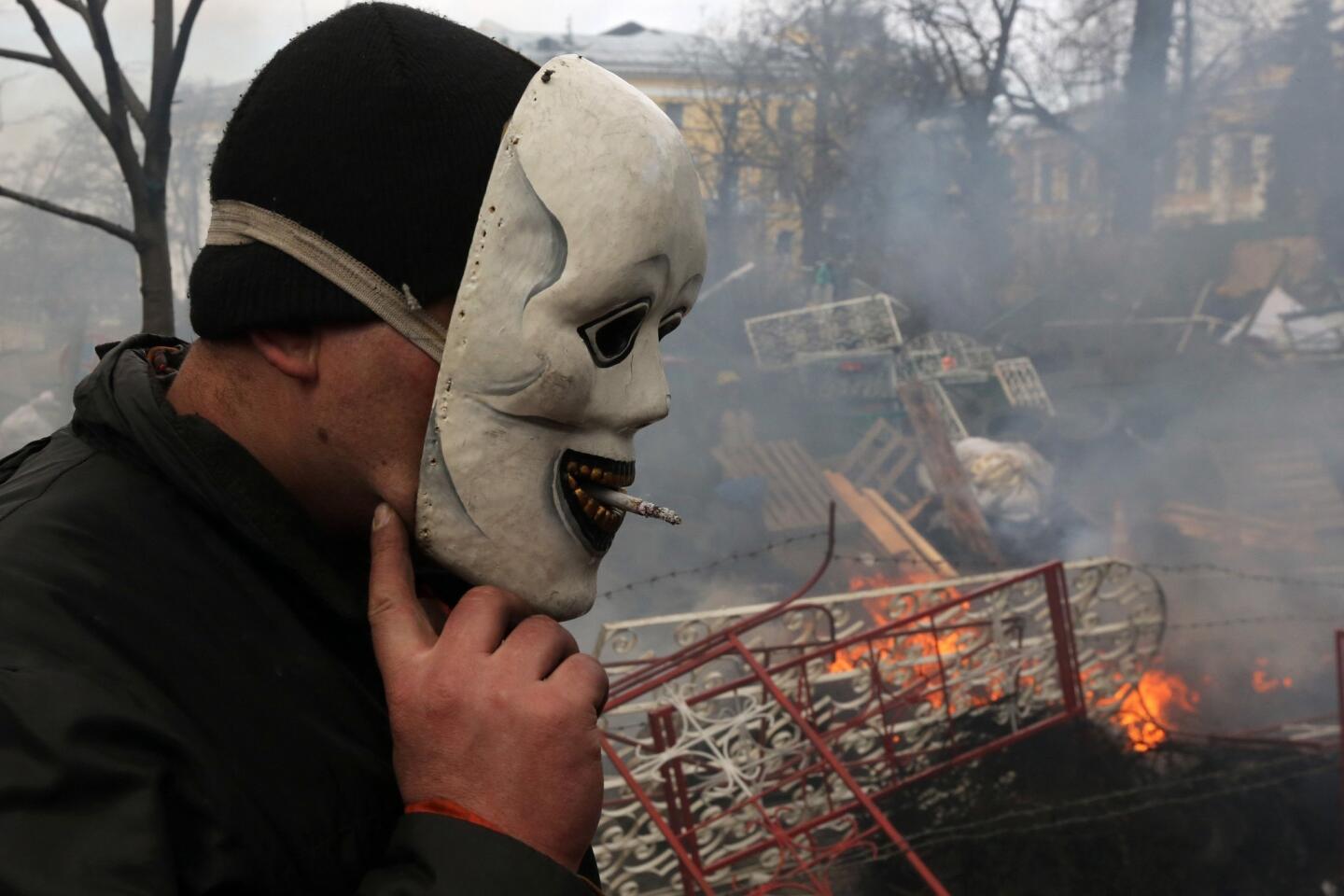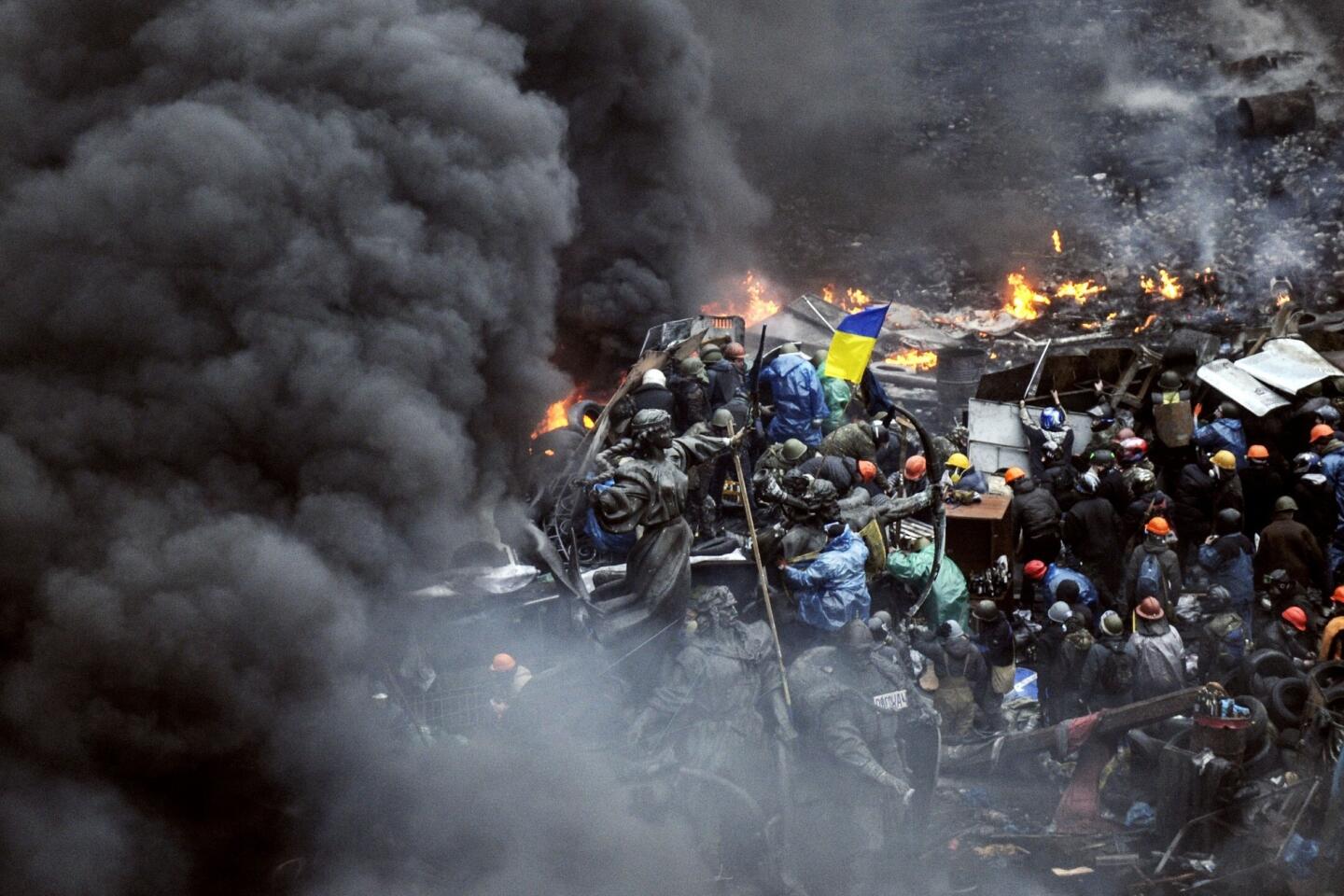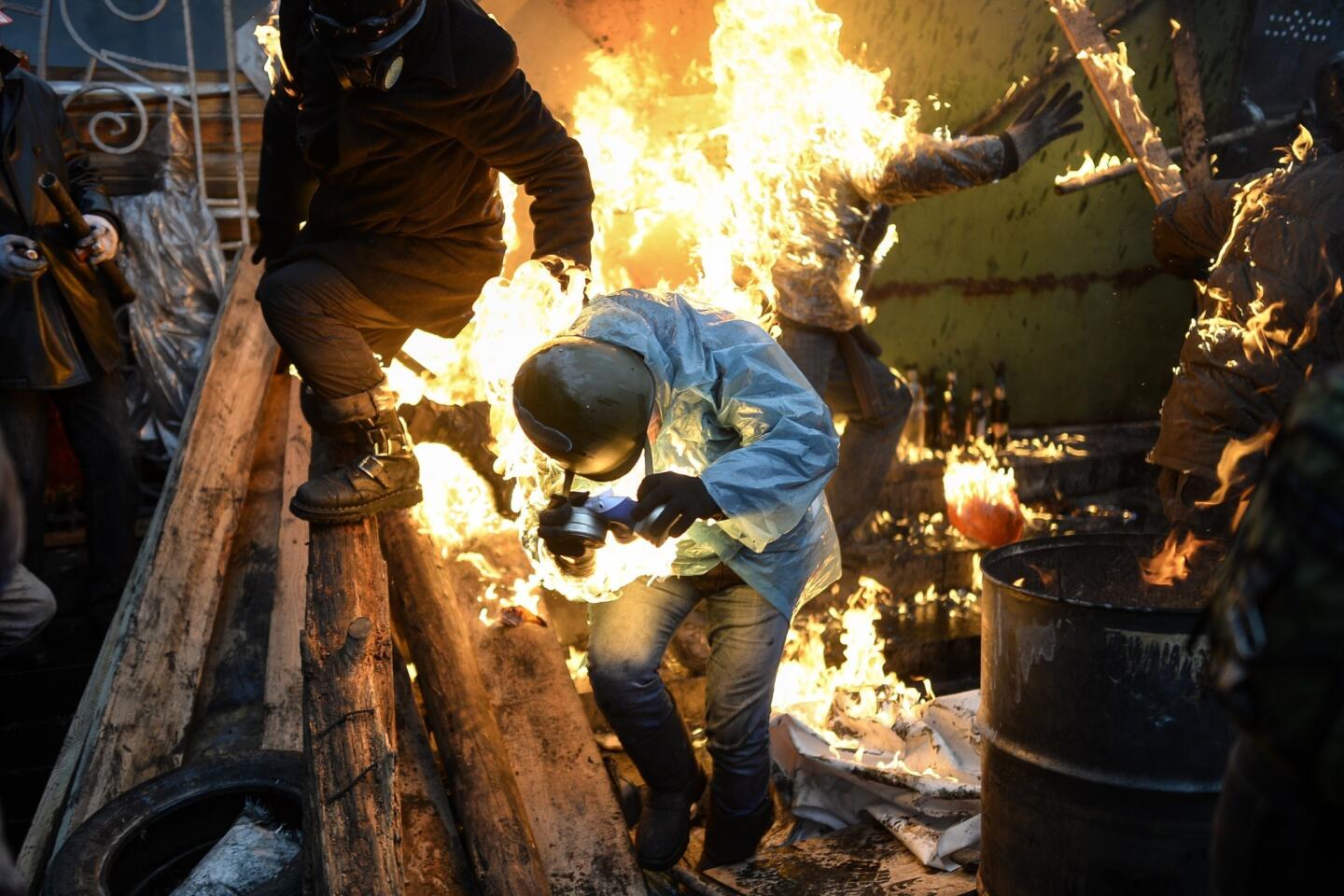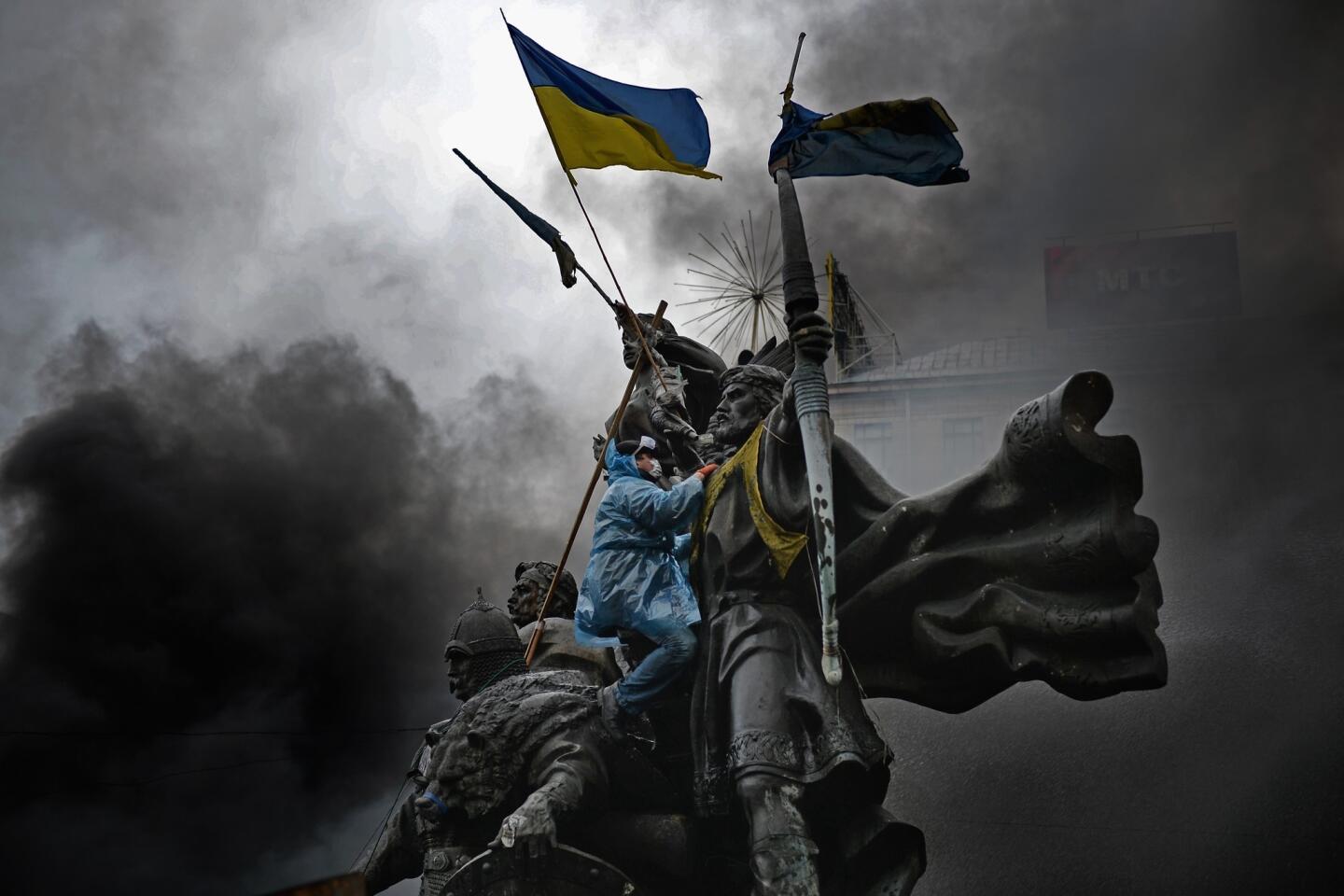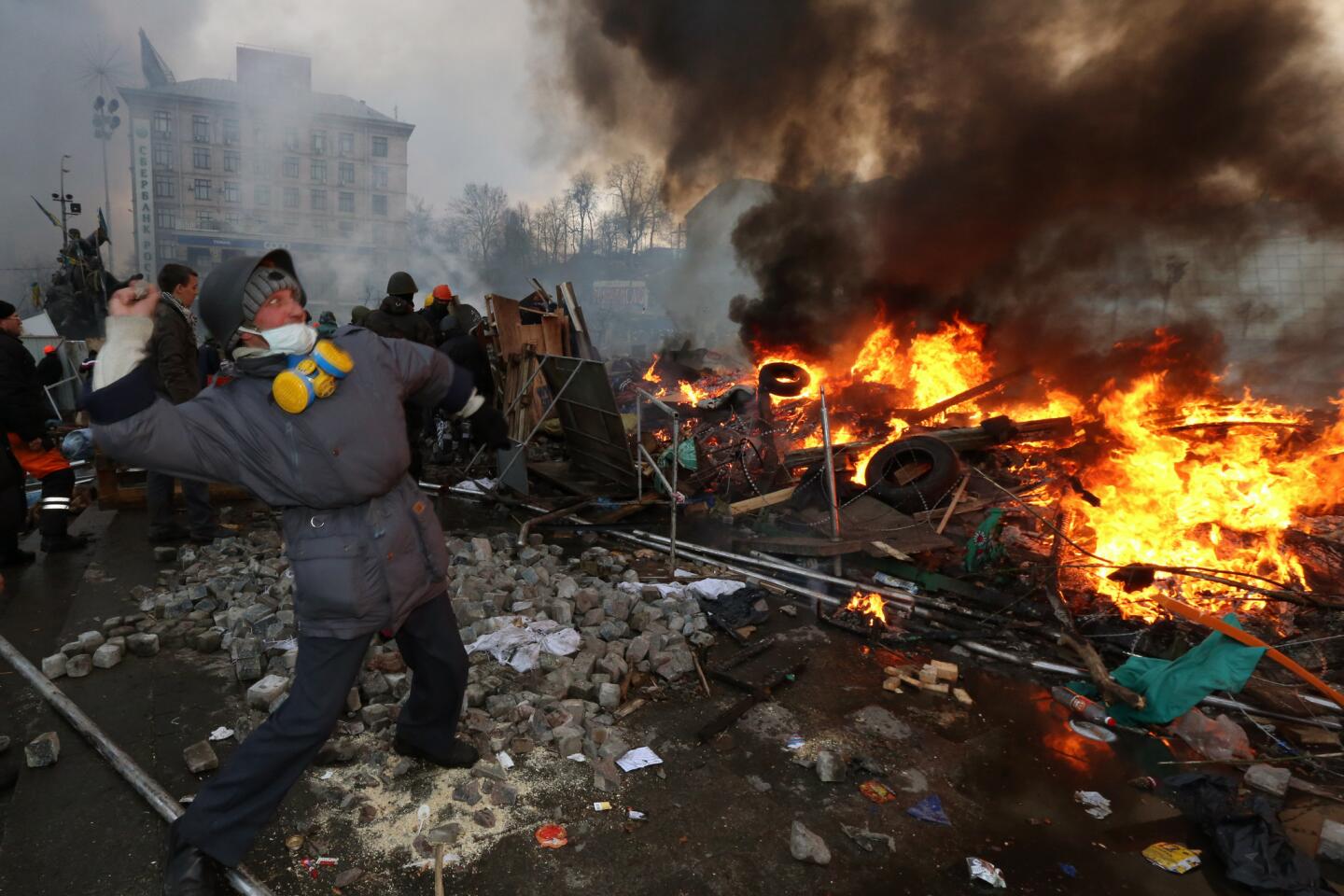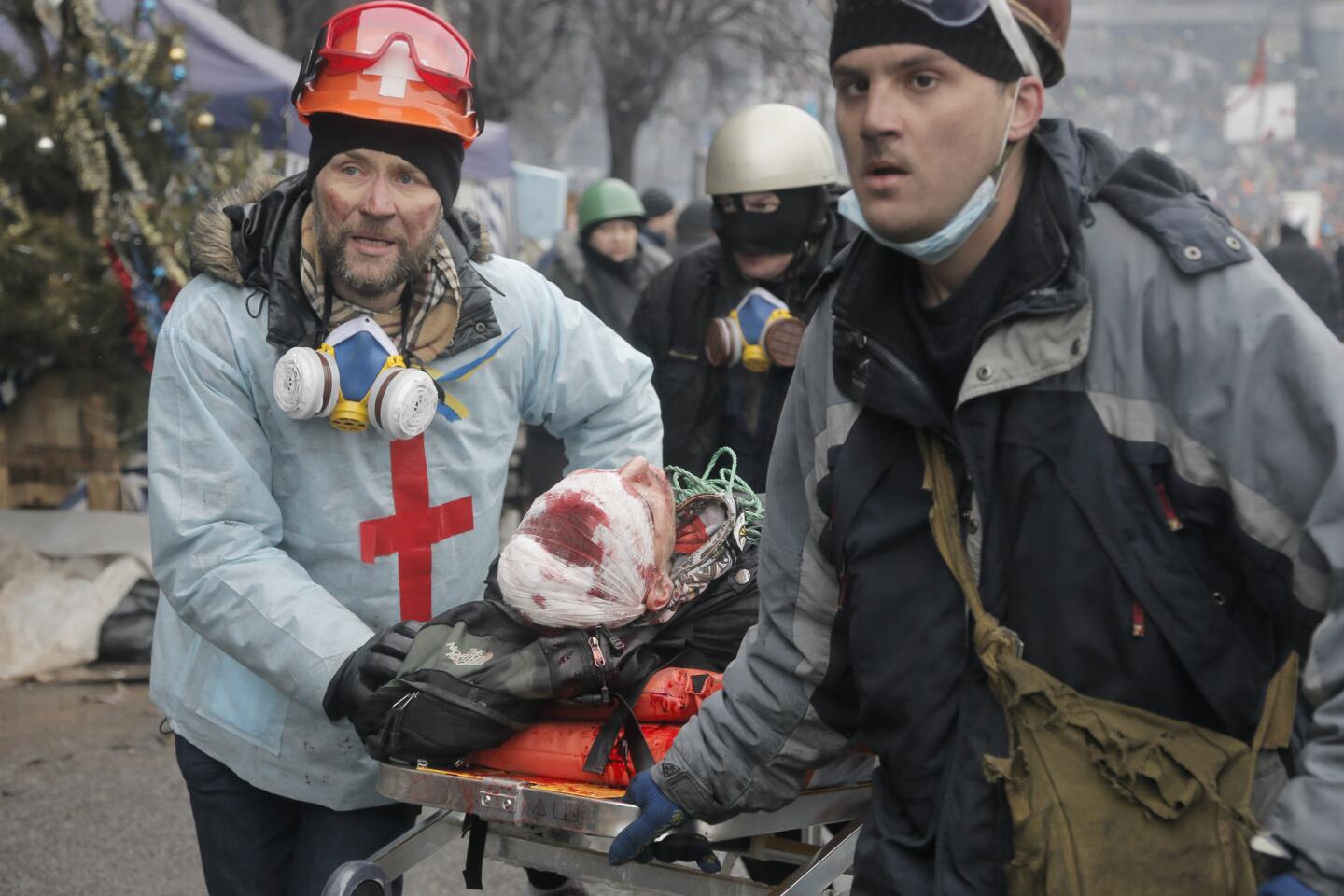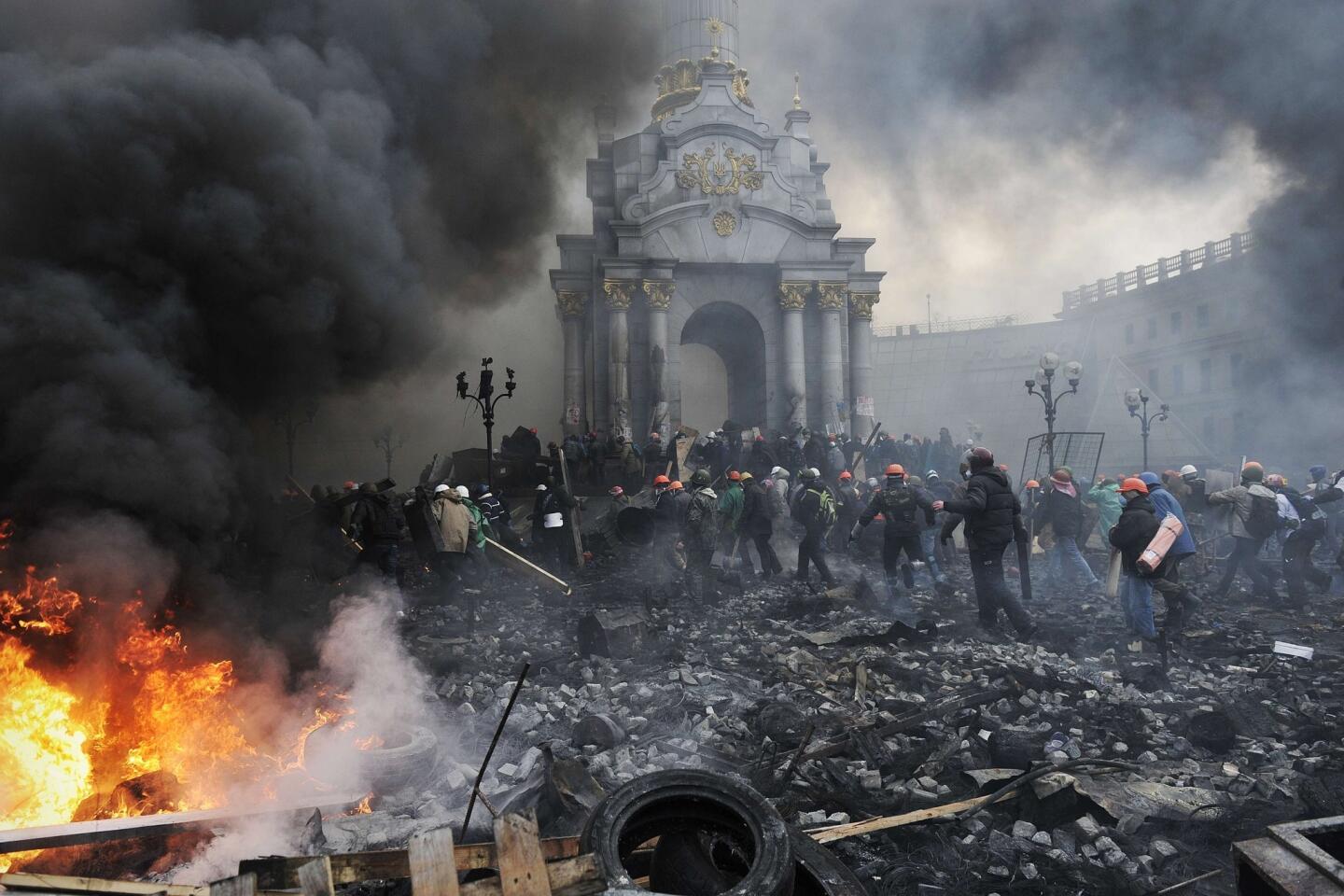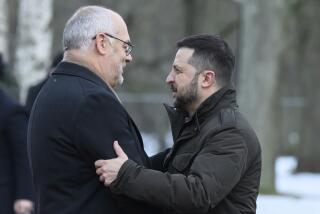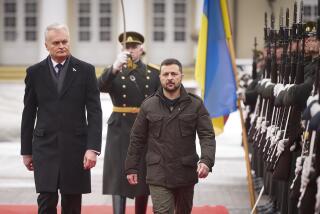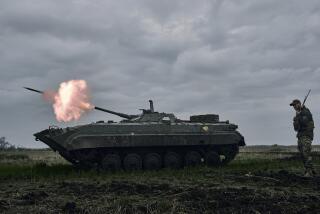Ukraine premier urges Russia, U.N. Security Council to prevent war
Ukraine’s acting prime minister appealed to the United Nations Security Council and Russia’s ambassador to the world body to end the “military aggression” against the Crimean peninsula that threatens to plunge the two former Soviet republics into war.
Arseny Yatsenyuk, who was named interim government leader last month after Ukraine’s elected president was driven into exile, described Russia’s military intervention into Crimea as having “no reasons and no grounds,” and he urged Moscow to return its troops to barracks and negotiate an end to the crisis.
“This is absolutely and entirely unacceptable in the 21st century to resolve any kind of conflict with tanks, artillery and boots on the ground,” Yatsenyuk told the Security Council, meeting for the sixth time this month to address the Crimea standoff.
Crimea’s recently installed pro-Russia regional leaders have scheduled a referendum Sunday on whether the strategic peninsula, home to Russia’s Black Sea fleet and some of Ukraine’s most lucrative seaside resorts, should declare independence and move toward annexation with Russia.
Yatsenyuk switched from English to Russian to appeal directly to Russian U.N. Ambassador Vitaly Churkin, asking him whether his nation really wanted war with Ukraine.
Churkin responded by reminding the council that Ukraine’s new interim leaders failed to fulfill the terms of a Feb. 21 agreement signed by former President Viktor Yanukovich, three leading opposition figures and the foreign ministers of three European Union countries. The agreement put an end to months of violence that took scores of lives in Kiev, the Ukrainian capital.
Yanukovich and many of his Party of Regions deputies fled after signing the accord, while others defected to the opposition bloc, giving it the majority needed to name a new government. They chose Yatsenyuk to run the country until a presidential election May 25. The Feb. 21 agreement called for a government of national unity and new elections by the end of this year.
Jeffrey Feltman, the U.N. undersecretary general for political affairs, briefed the council on the situation in Crimea, where thousands of Russian troops have infiltrated Ukrainian government and military sites and taken control of entry checkpoints at ferry terminals, airports and the main road from the Ukrainian mainland.
“The scheduled referendum has further complicated an already difficult and volatile situation,” Feltman said.
The U.N. envoy sent to observe the vote, Assistant Secretary-General Ivan Simonovic, has been barred from entering Crimea, a rebuff that spotlighted the world body’s impotence in the standoff with Russia, which has veto power as a permanent member of the Security Council.
The U.S. delegation circulated a draft resolution at the council calling on the membership to reaffirm U.N. commitment “to the sovereignty, independence, unity and territorial integrity of Ukraine within its internationally recognized borders,” the Associated Press reported from U.N. headquarters in New York.
But with Russia able to veto any action or statement, the best the Western supporters of the proposal could hope for was a symbolic abstention by China, which often votes with Russia against actions proposed by the other three permanent members, the United States, Britain and France.
With Russia in full control of Crimea and the Sunday vote likely to favor secession from Ukraine, the Security Council remains powerless to force the Kremlin to roll back its de facto occupation.
Samantha Power, the U.S. ambassador to the United Nations, told the council that 20,000 Russian troops were in Crimea. She called for the referendum to be canceled, arguing that it “cannot be regarded as legitimate, especially against the background of foreign military intervention.”
Twitter: @cjwilliamslat
More to Read
Start your day right
Sign up for Essential California for news, features and recommendations from the L.A. Times and beyond in your inbox six days a week.
You may occasionally receive promotional content from the Los Angeles Times.
